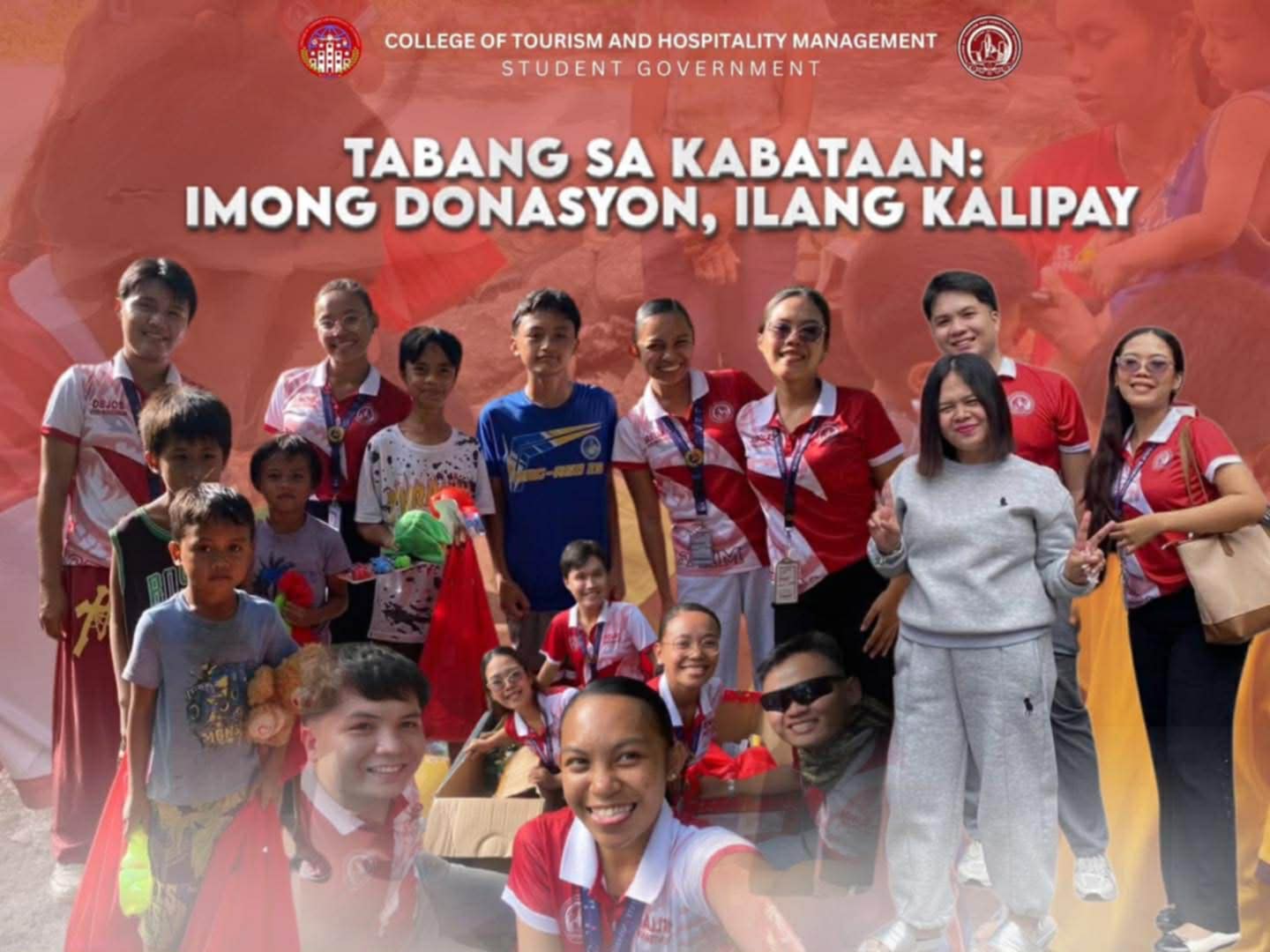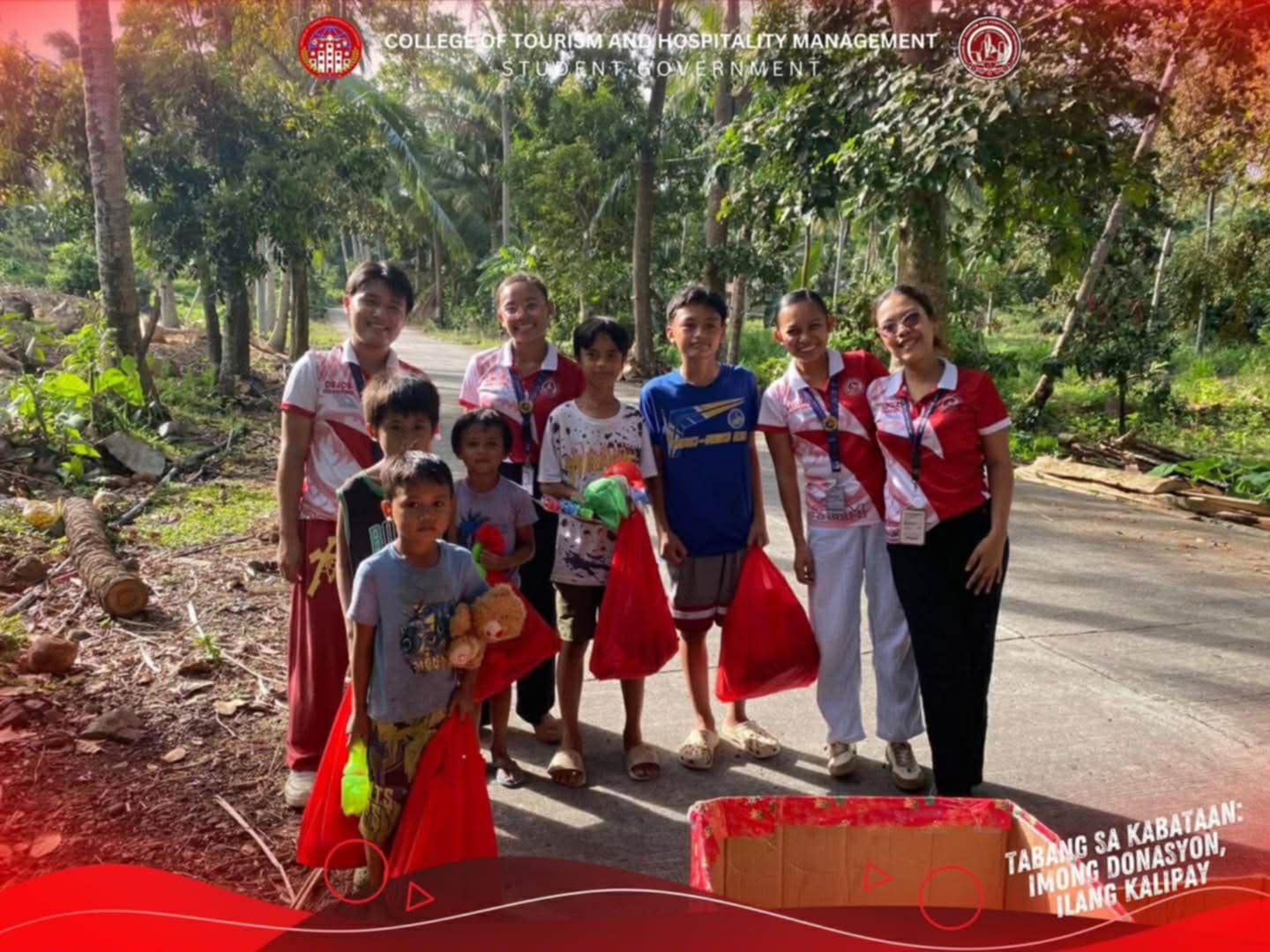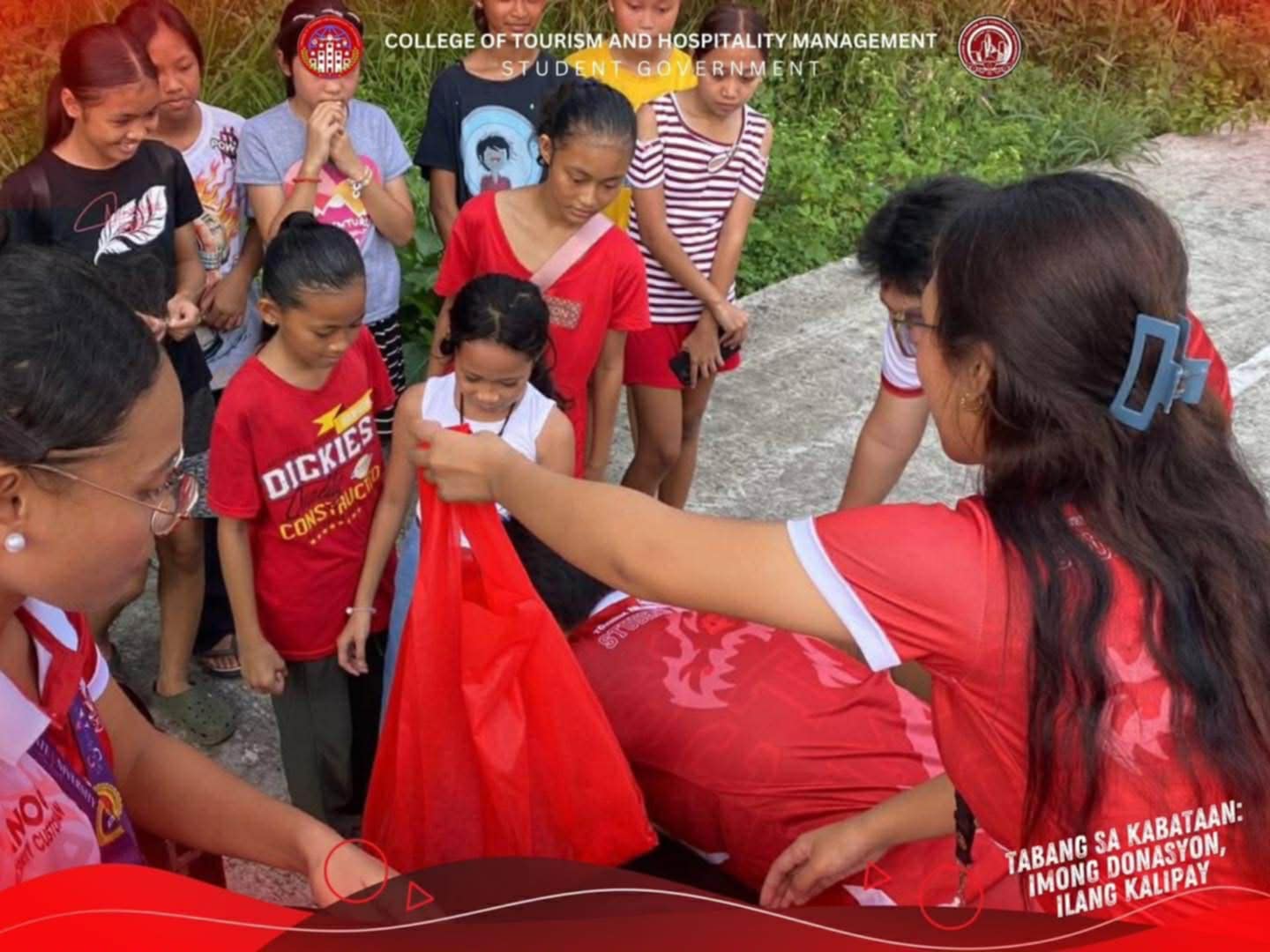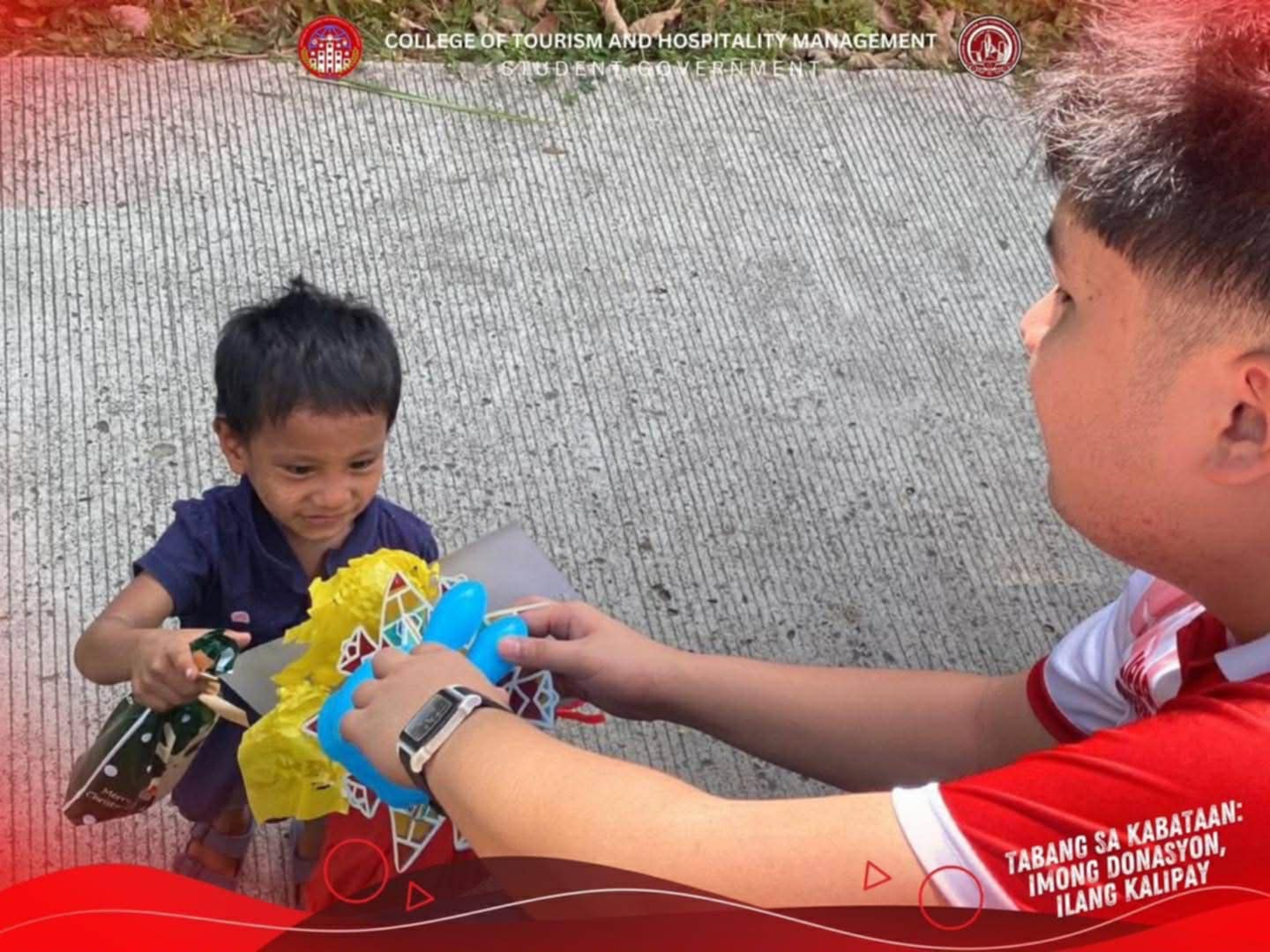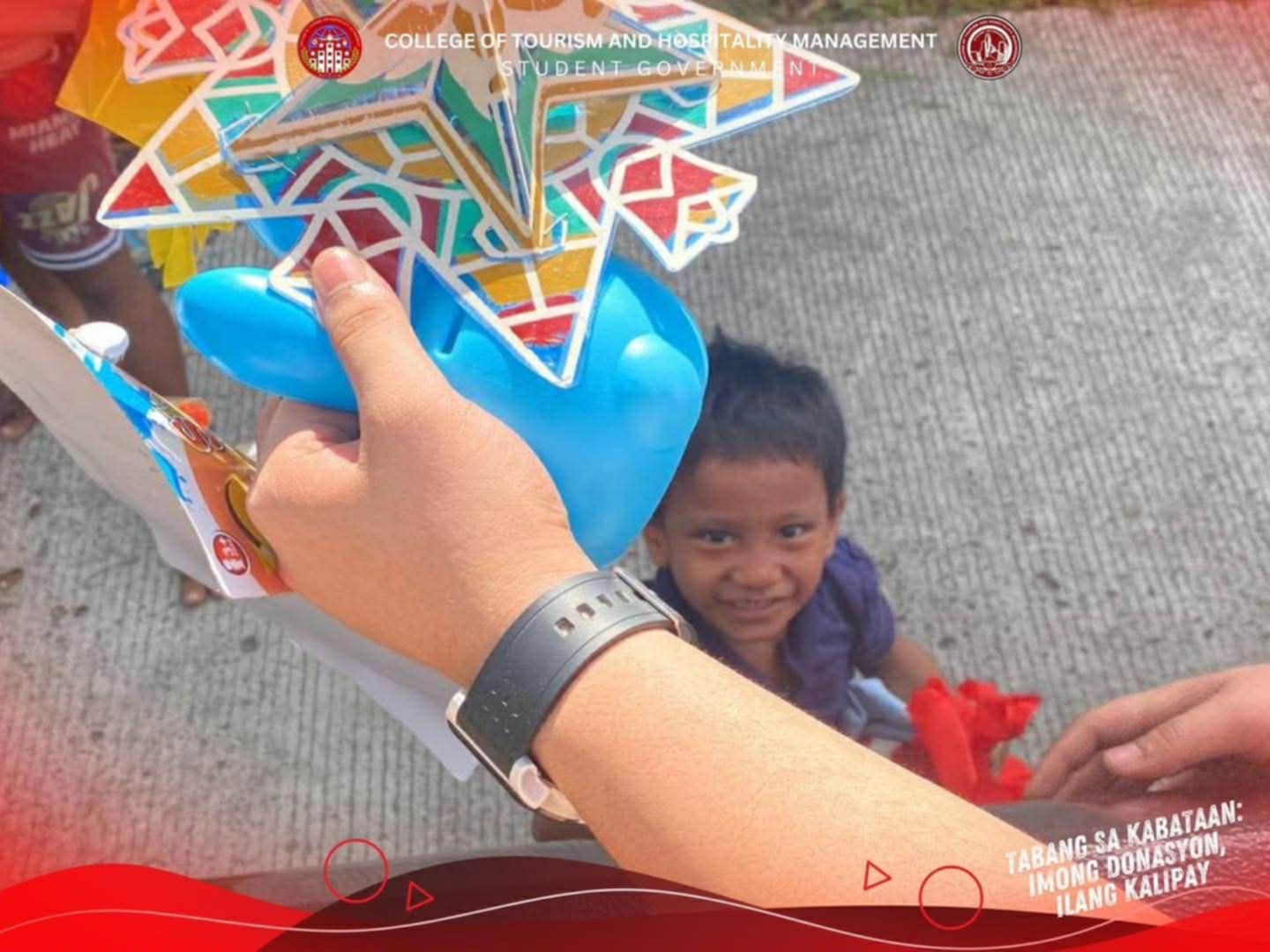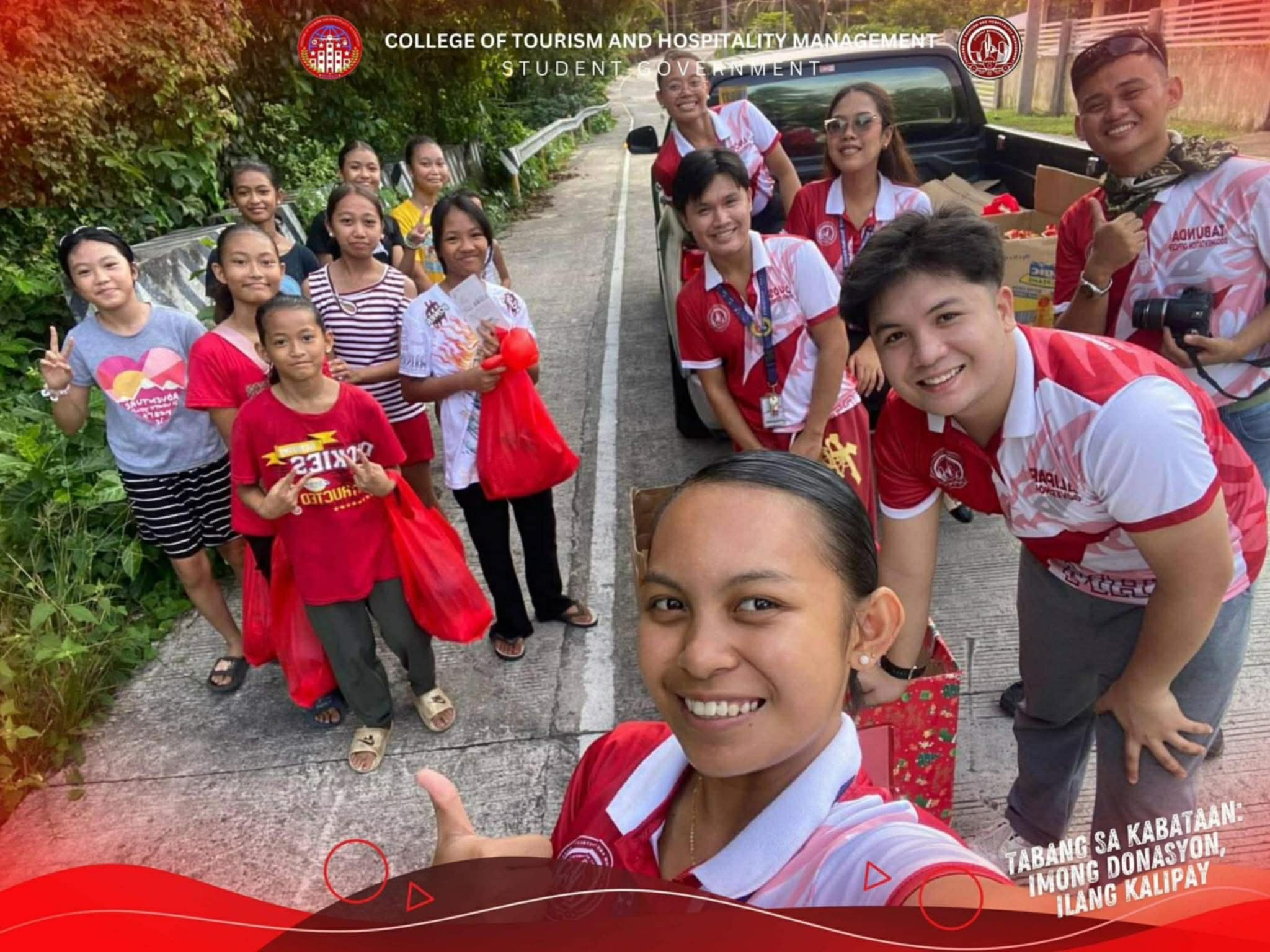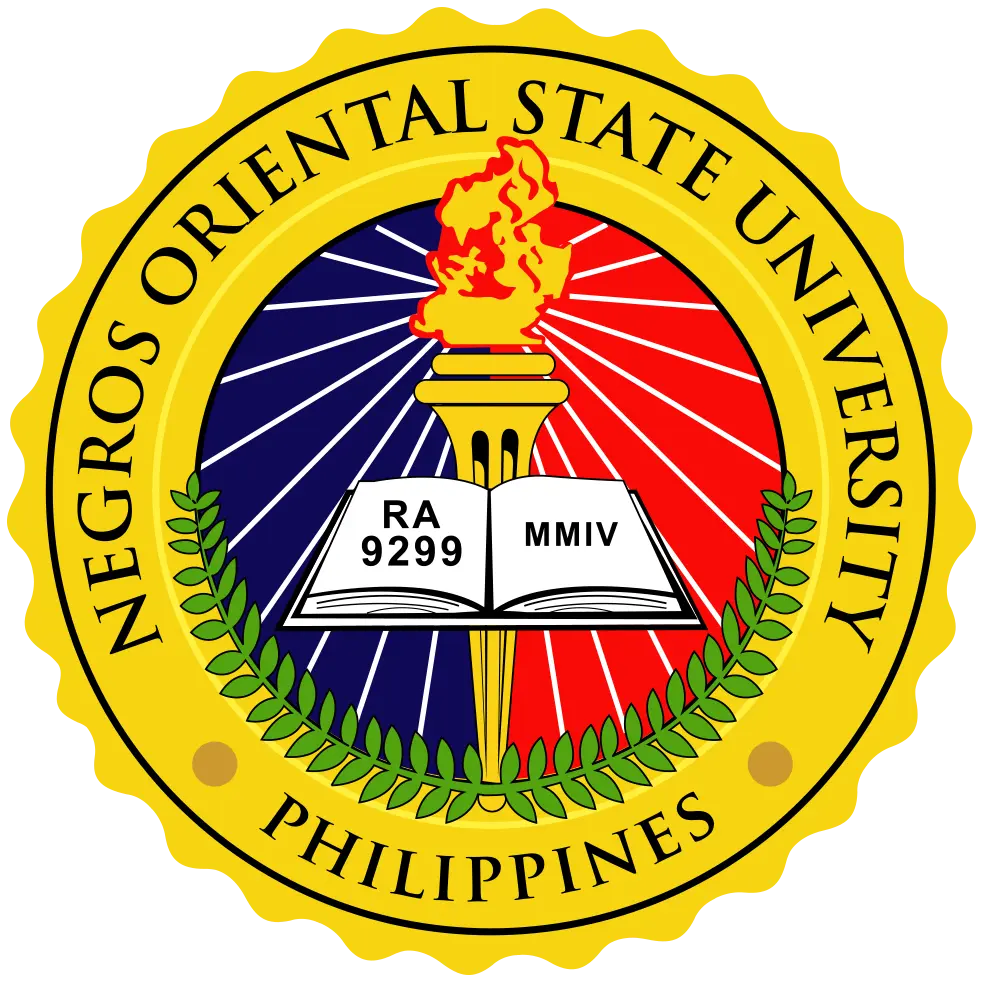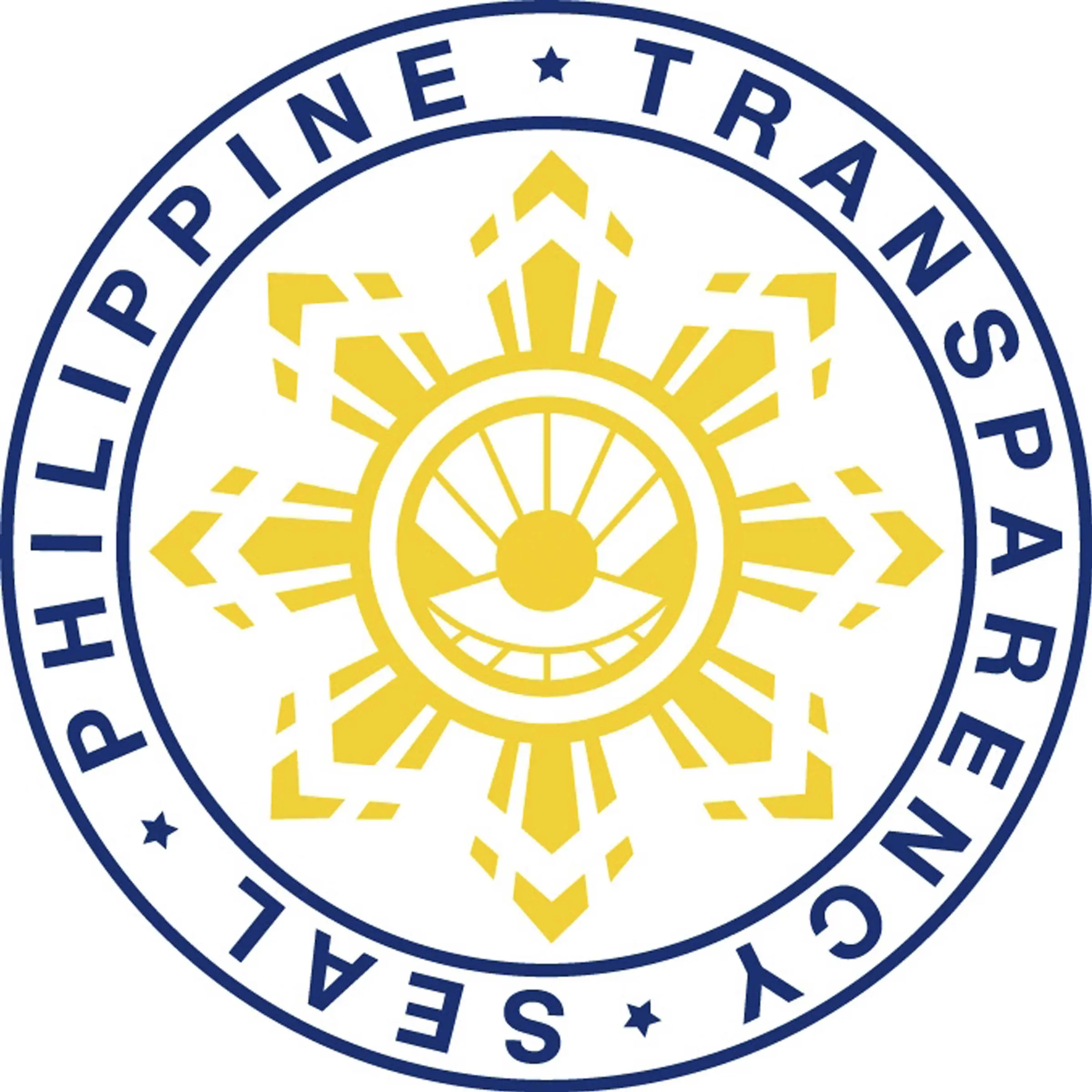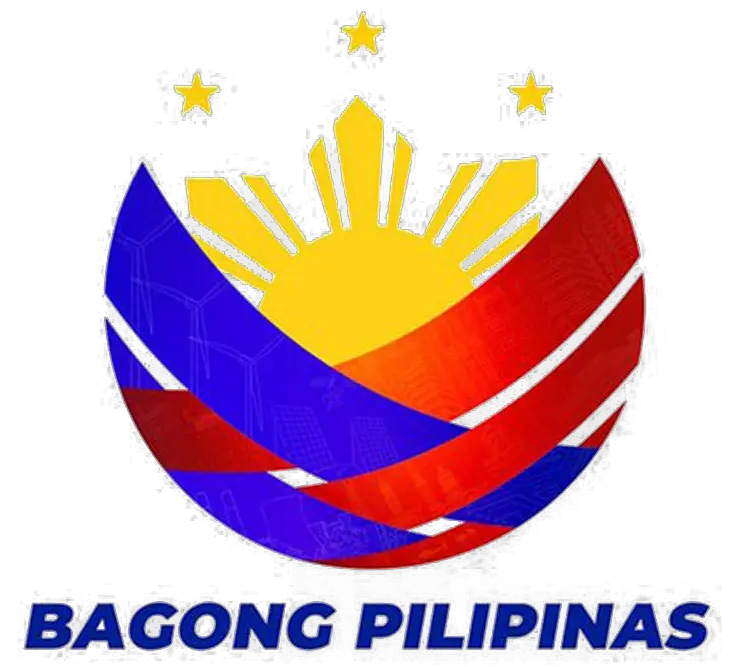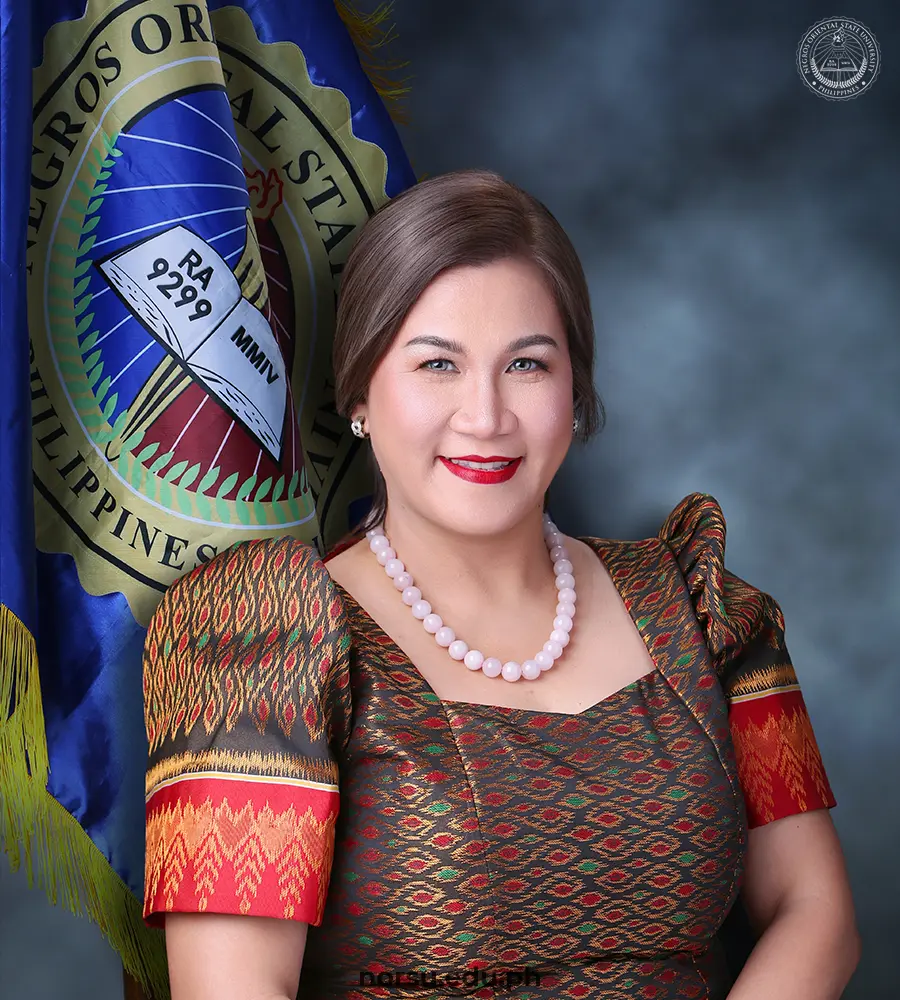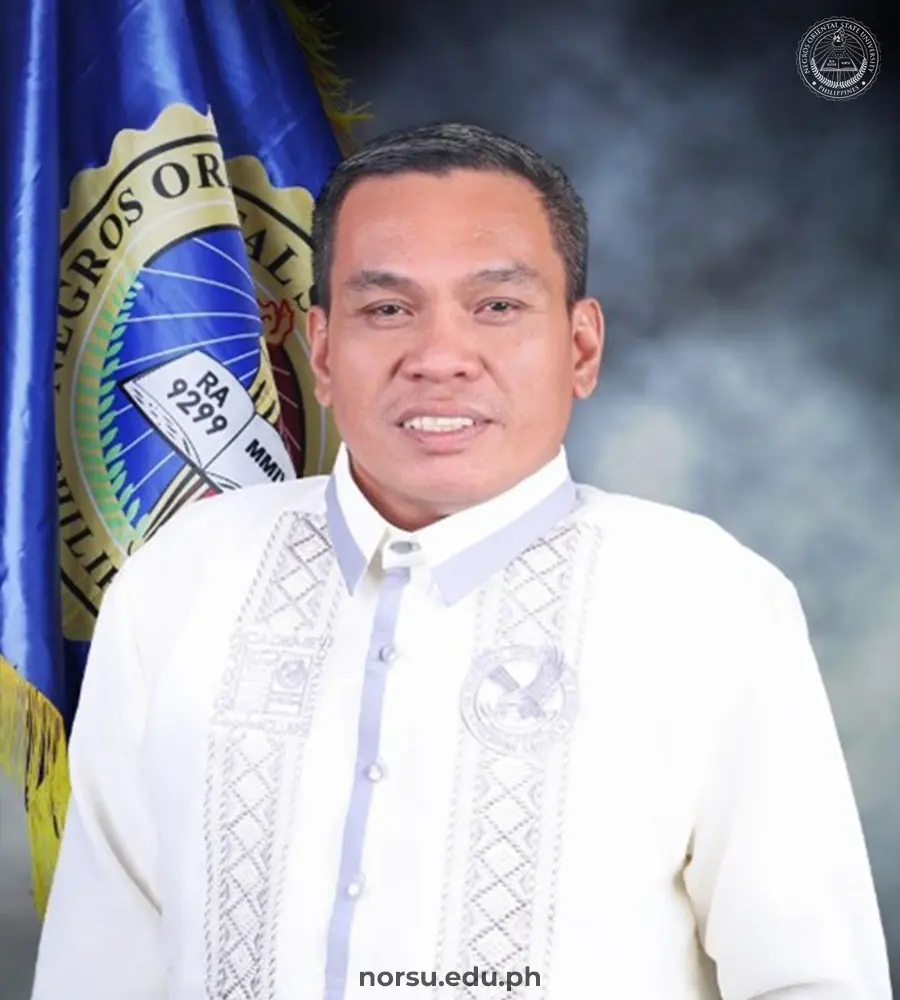
The roots of what is now the College of Tourism and Hospitality Management (CTHM) at Negros Oriental State University (NORSU) can be traced back to 1983 with the opening of a special program that led to a Diploma in Industrial Technology (DIT). This was a two-year program under the MECS Technical Vocational Education Project (TVEP). By 1984–1985, the program evolved into a three-year Diploma of Technology (DT), which offered major specializations in automotive, mechanical, electronics, and electrical technology, and included summers devoted to on-the-job training.
In line with government thrusts to strengthen technical education, the Central Visayas Polytechnic College (CVPC), the forerunner of NORSU, expanded its offerings. During the administration of President Henry A. Sojor, the Technician Education Institute (TEI) was established, introducing new programs such as Agriculture Technology, Hotel and Restaurant Management, Secretarial Science, Medical Dental Nursing Aide, and later Midwifery. TEI would eventually merge with engineering programs and later stand independently when engineering became a separate college in 1994.
In 1997, TEI was converted into the College of Technician Education (CTE), offering the four-year Bachelor of Technician Education (BTE). By 1999–2000, the Bachelor of Hotel and Restaurant Management (BSHRM) program was transferred to CTE, further expanding its academic scope. The early 2000s saw continuous program development, including the offering of majors in Automotive, Computer, Electrical, Mechanical, and Aviation Technologies, among others.
Significant institutional changes followed in 2004, when Republic Act No. 9299 converted CVPC into Negros Oriental State University (NORSU). With this, several programs were reorganized: Midwifery and Medical Dental Nursing Aide were moved to the College of Nursing and Allied Health Sciences (CNAHS). At the same time, Secretarial Science was transferred to the College of Business and Accountancy (CBA). The BSHRM program was renamed Bachelor of Science in Hospitality Management (BSHM). Consequently, the College was renamed the College of Technology Education (CTE).
In the first semester of academic year 2010–2011, a significant milestone was reached when the Hospitality Management Department, along with the newly transferred Tourism Department from the College of Arts and Sciences, was consolidated under CTE. This change gave birth to the College of Tourism and Hospitality Management (CTHM), formally approved by the NORSU Board of Regents (BOR) under Resolution No. 16, series of 2010. However, in 2013, due to faculty qualification issues, CTHM was merged with the CBA by BOR Resolution No. 31, series of 2013.
After a decade, the vigorous advocacy to re-establish CTHM as an independent academic unit was spearheaded by Dr. Tulip Lopez, who served as the principal proponent of this endeavor. Through her leadership and persistence, the proposal gained the support of the University administration and the Board of Regents. On August 19, 2024, the BOR approved Resolution No. 98, series of 2024, authorizing the re-establishment of CTHM in compliance with CHED Memorandum Order (CMO) No. 62, series of 2017. This milestone was formally enacted through Executive Order No. 90, series of 2024, issued by University President Dr. Noel Marjon E. Yasi, directing its full implementation.
At present, the Bachelor of Science in Hospitality Management (BSHM) and the Bachelor of Science in Tourism Management (BSTM) are both Level III Re-Accredited Programs under the Accrediting Agency of Chartered Colleges and Universities in the Philippines (AACCUP). This recognition affirms the College's commitment to academic quality and continuous improvement in instruction, research, extension, and student services.
The College, revitalized through its vision and dedication, remains steadfast in its mission to provide quality tourism and hospitality education, producing competent graduates equipped with professional knowledge, practical skills, and values aligned with industry standards and global demands.
© 2025 Tulip Flores Lopez. All rights reserved.
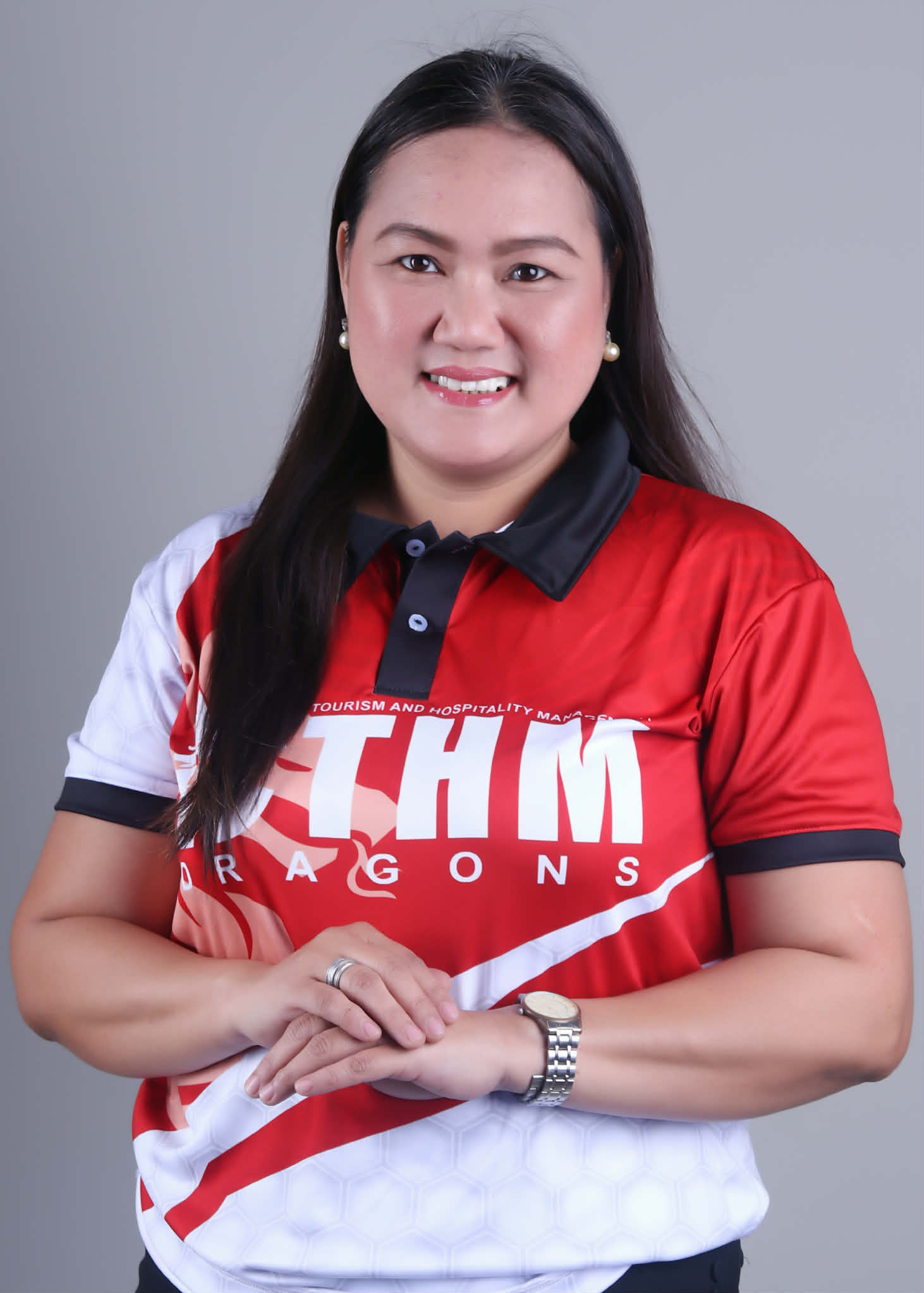
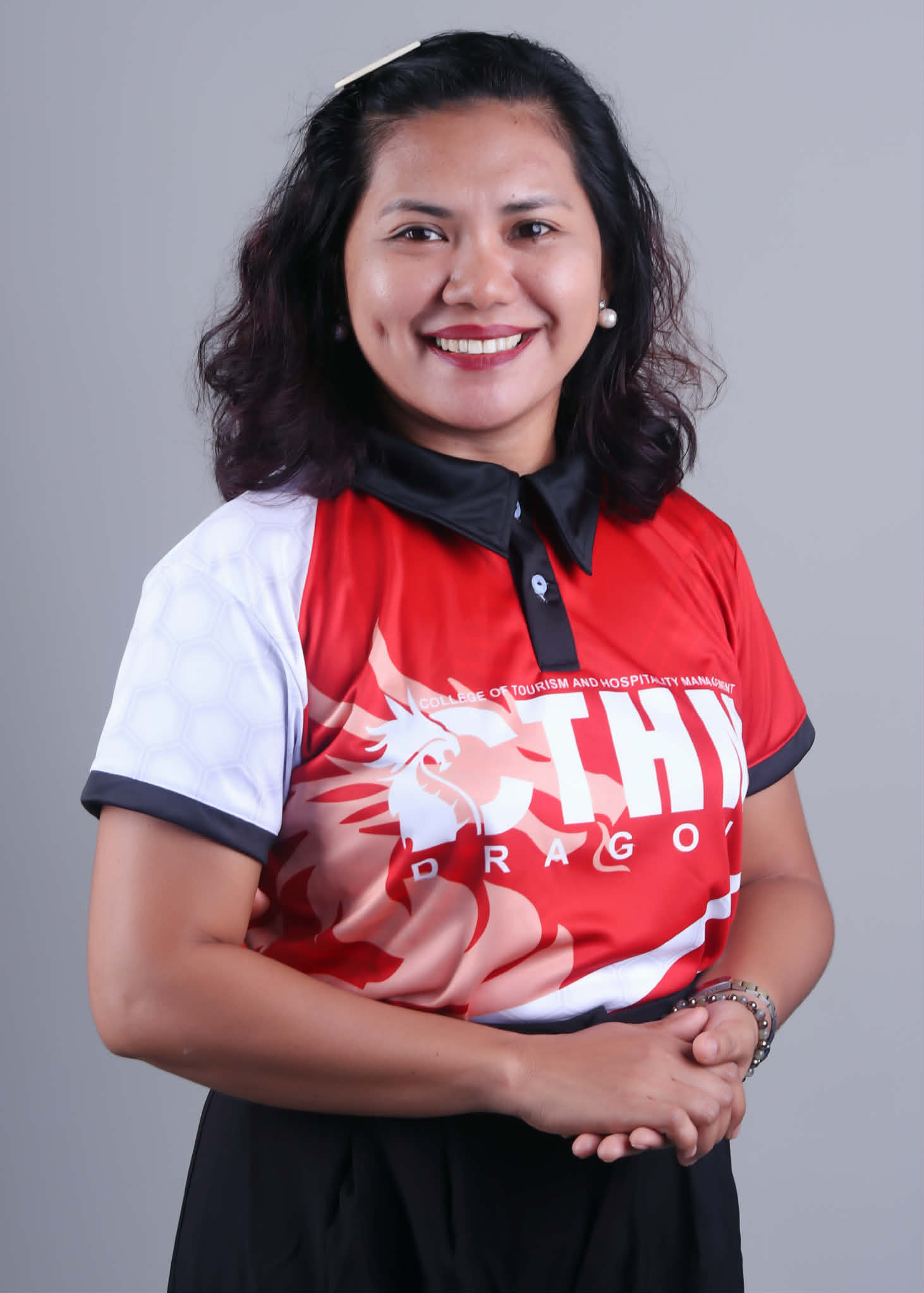
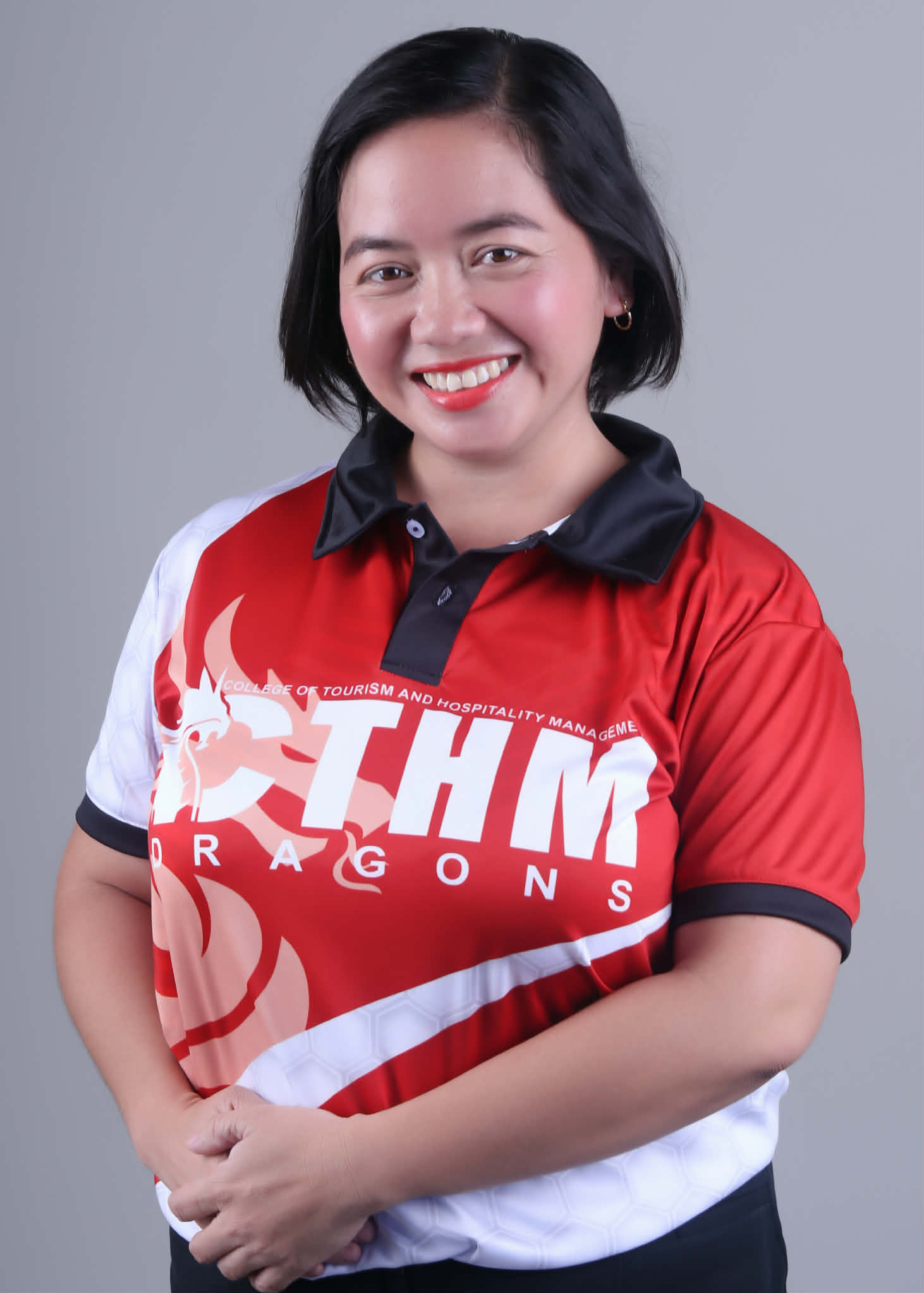
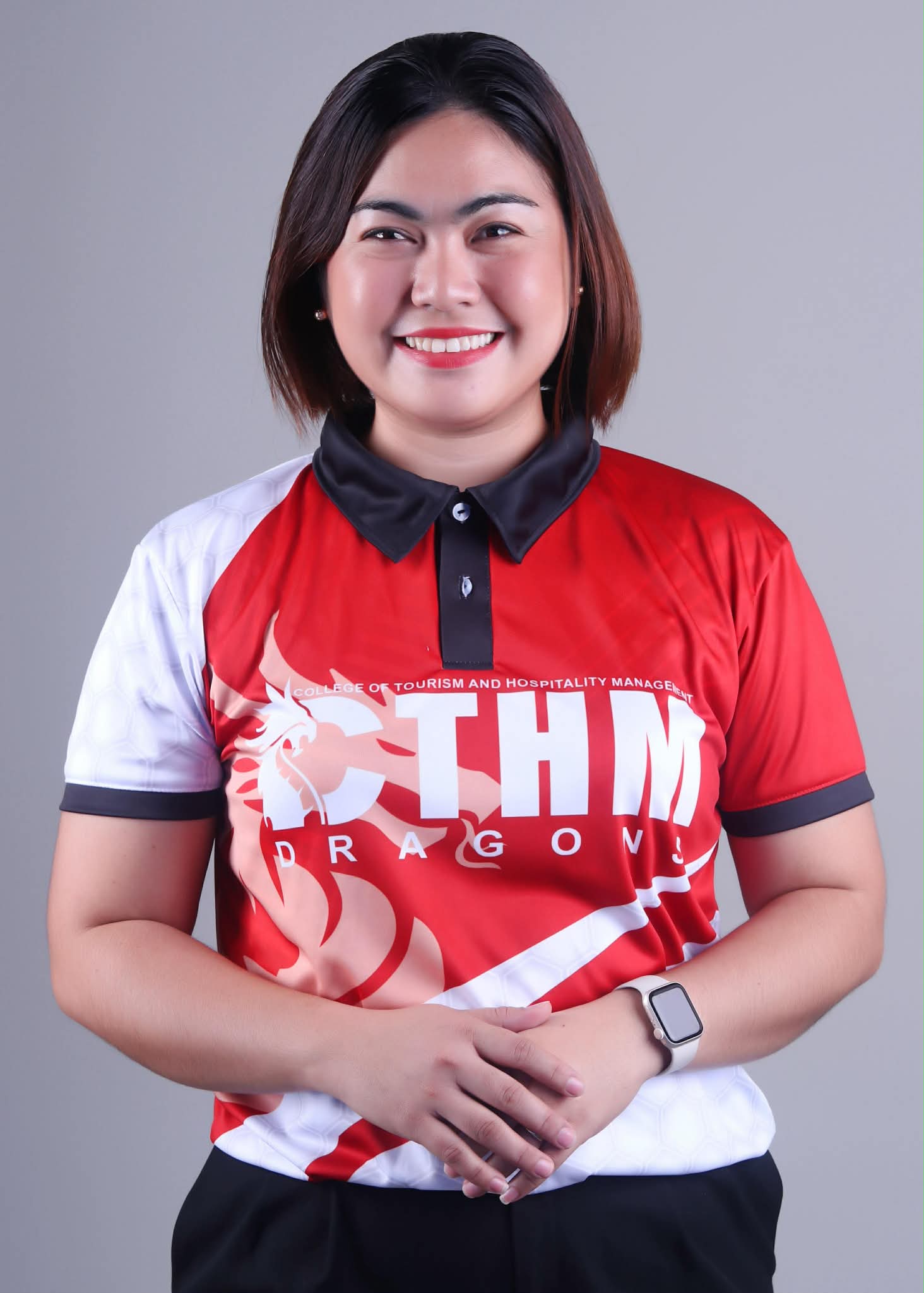
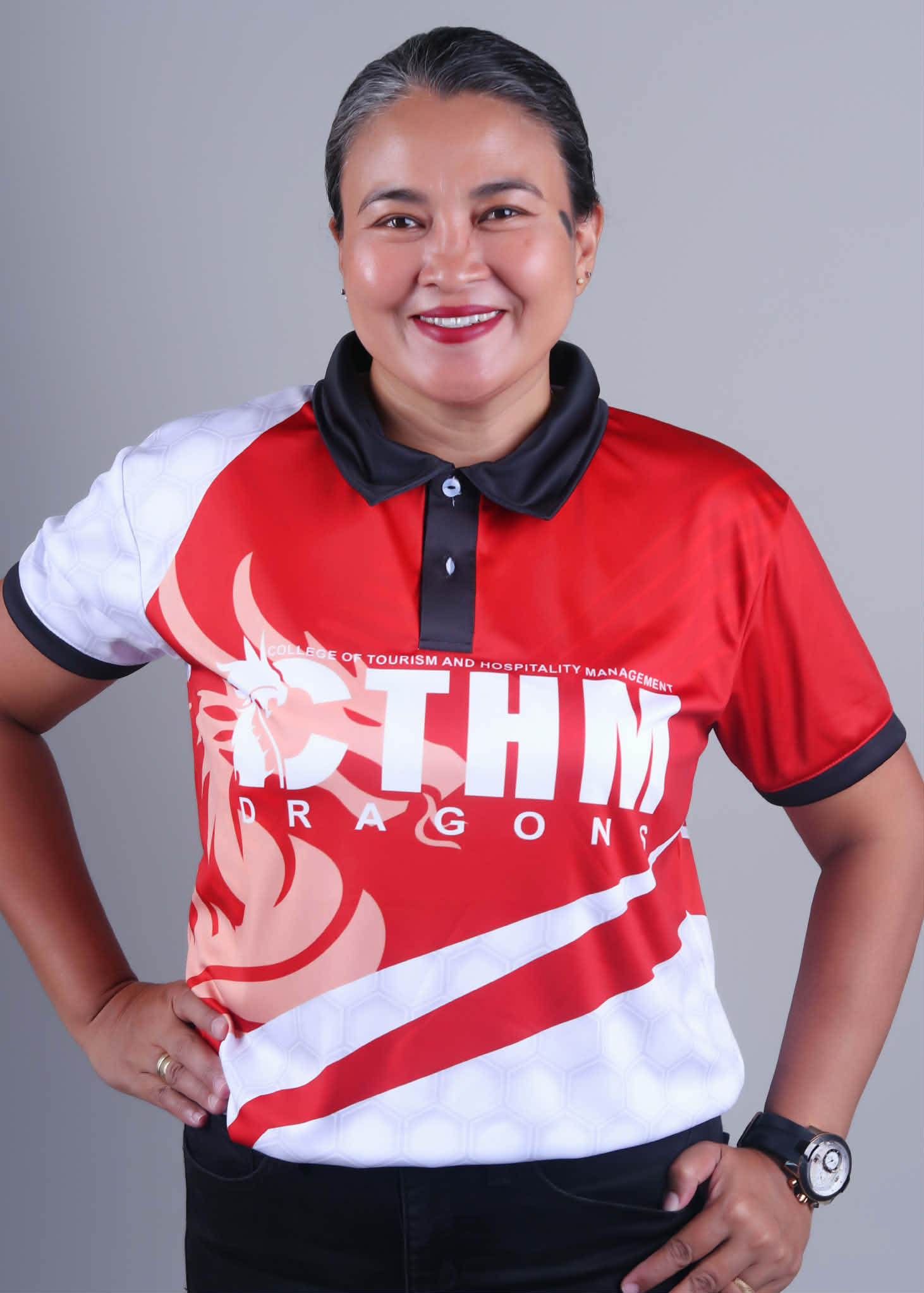
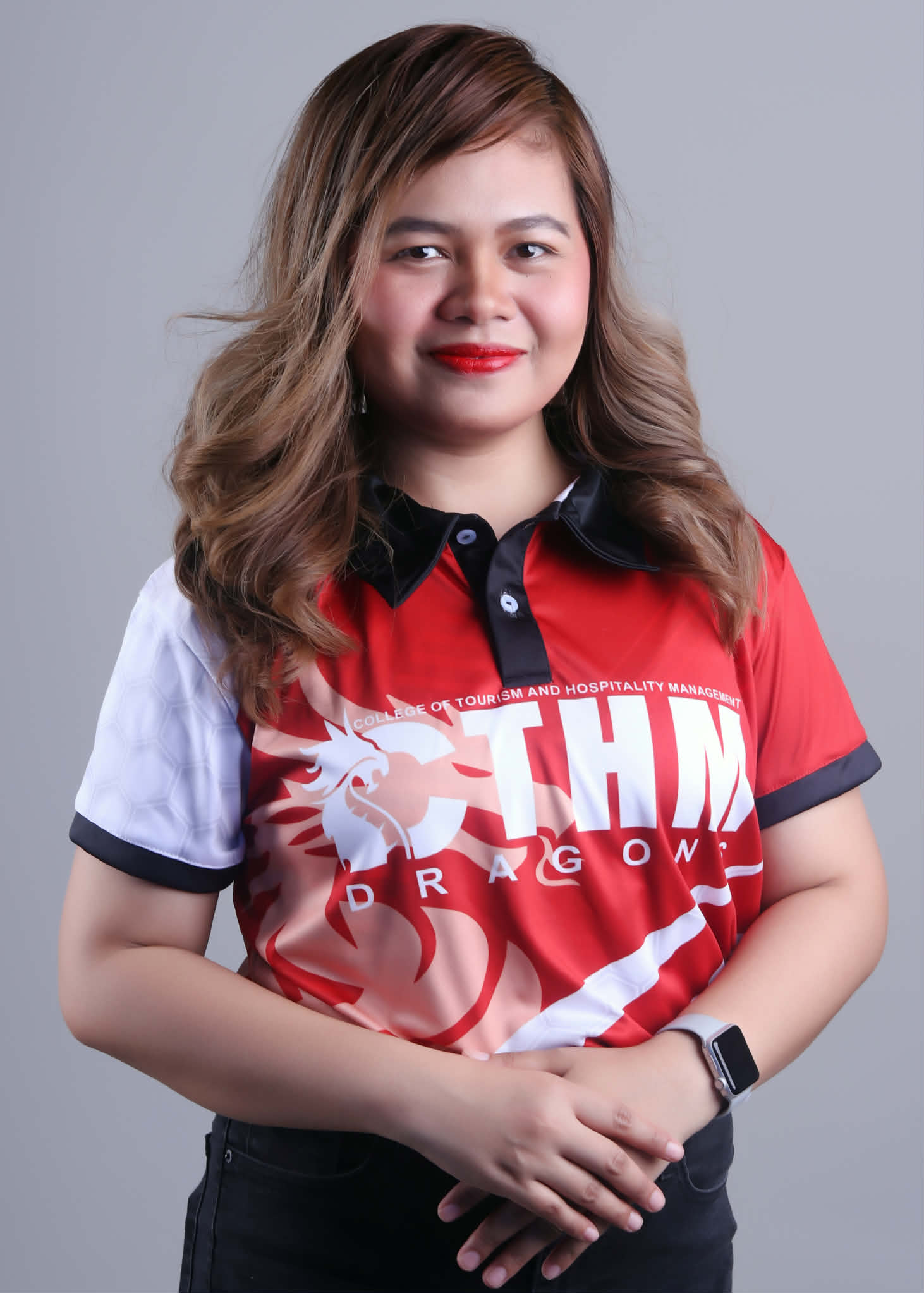
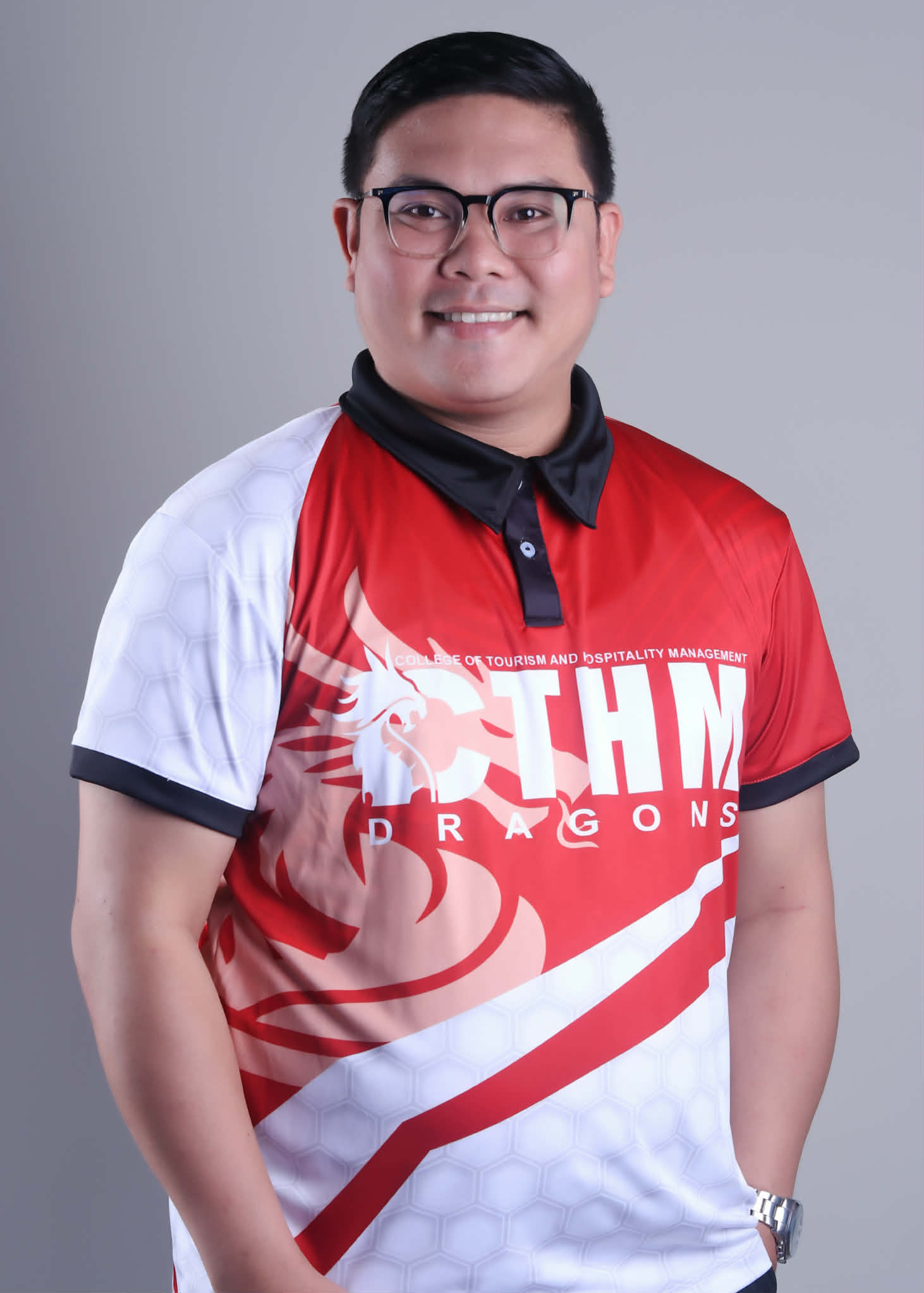
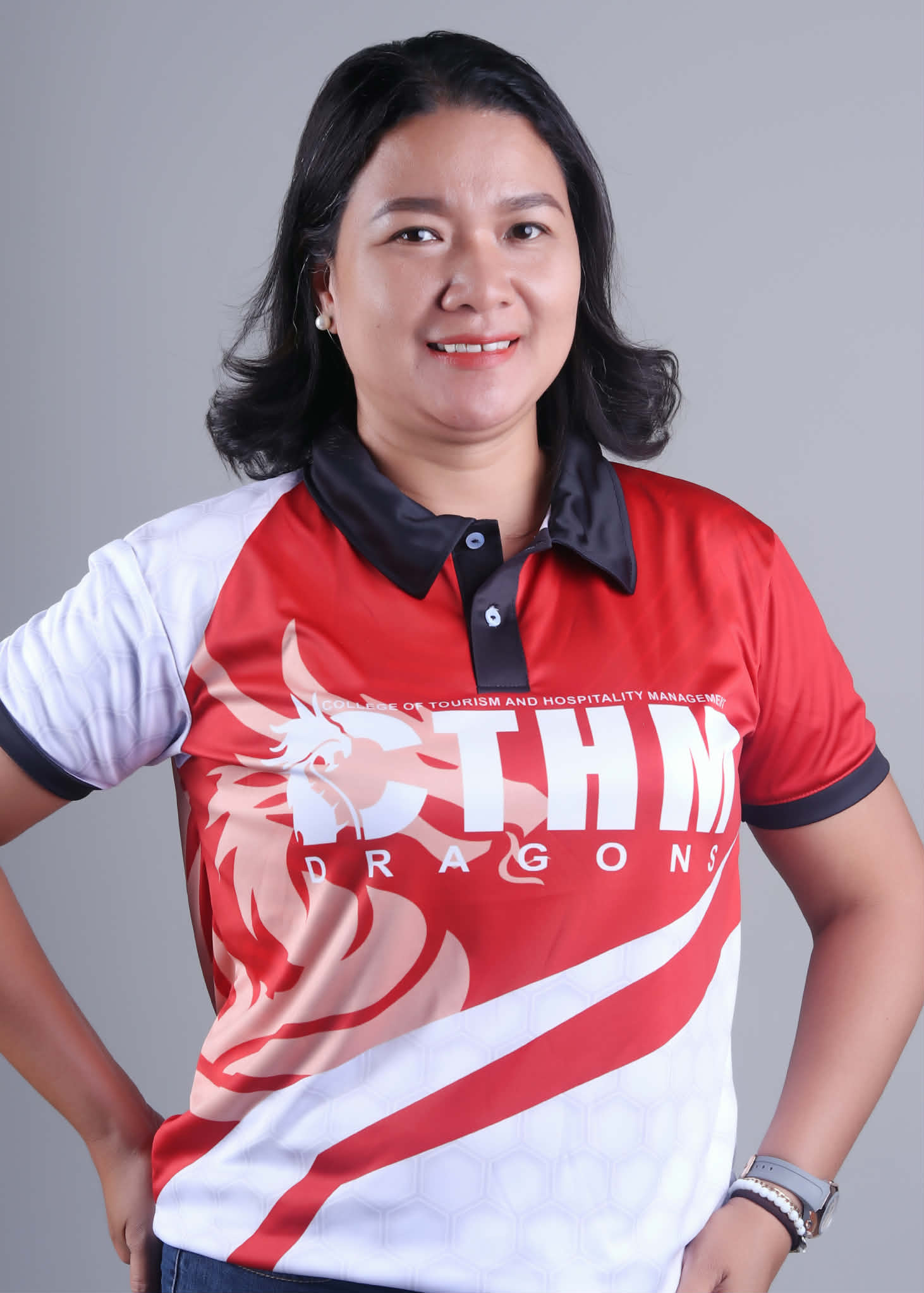
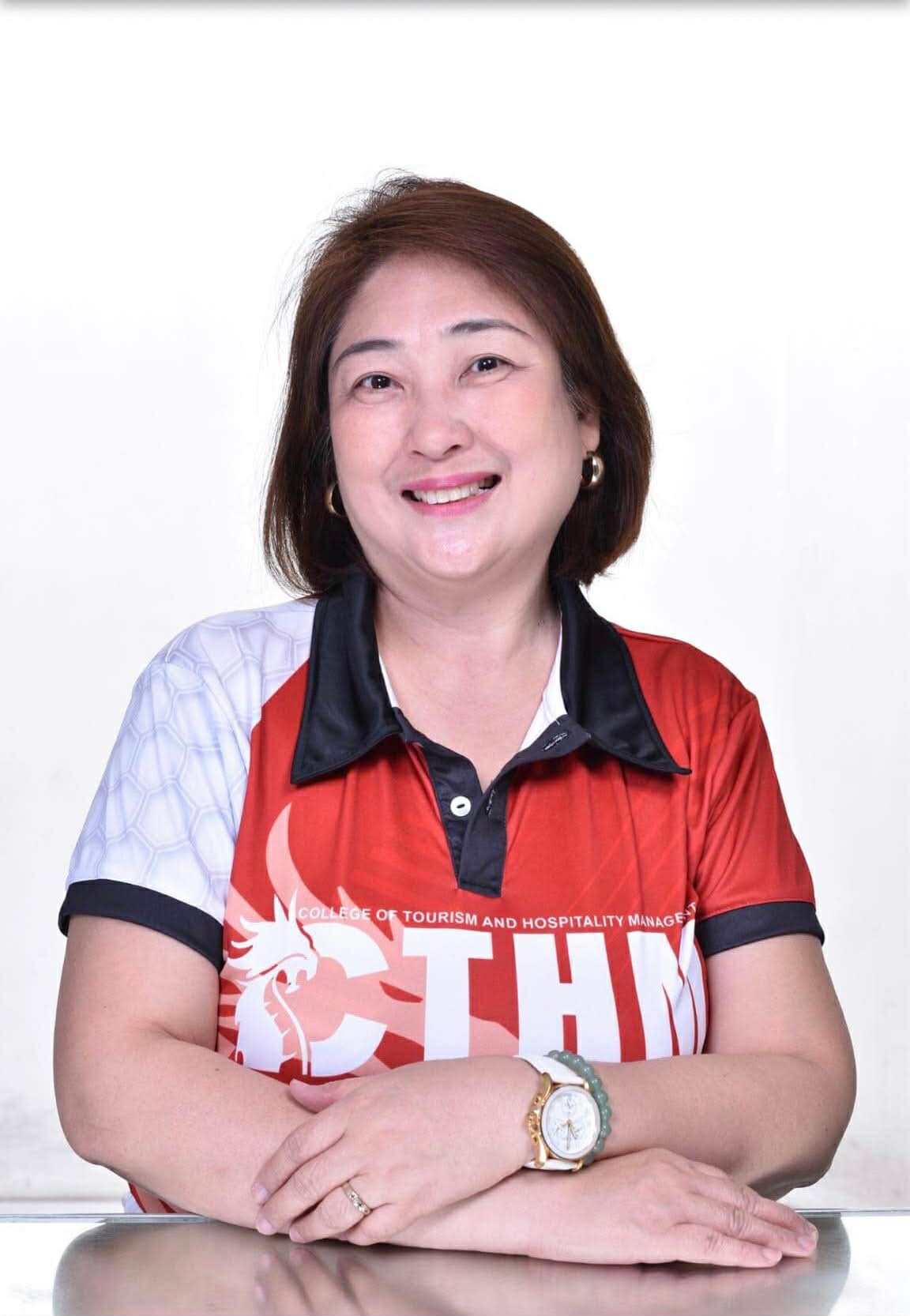
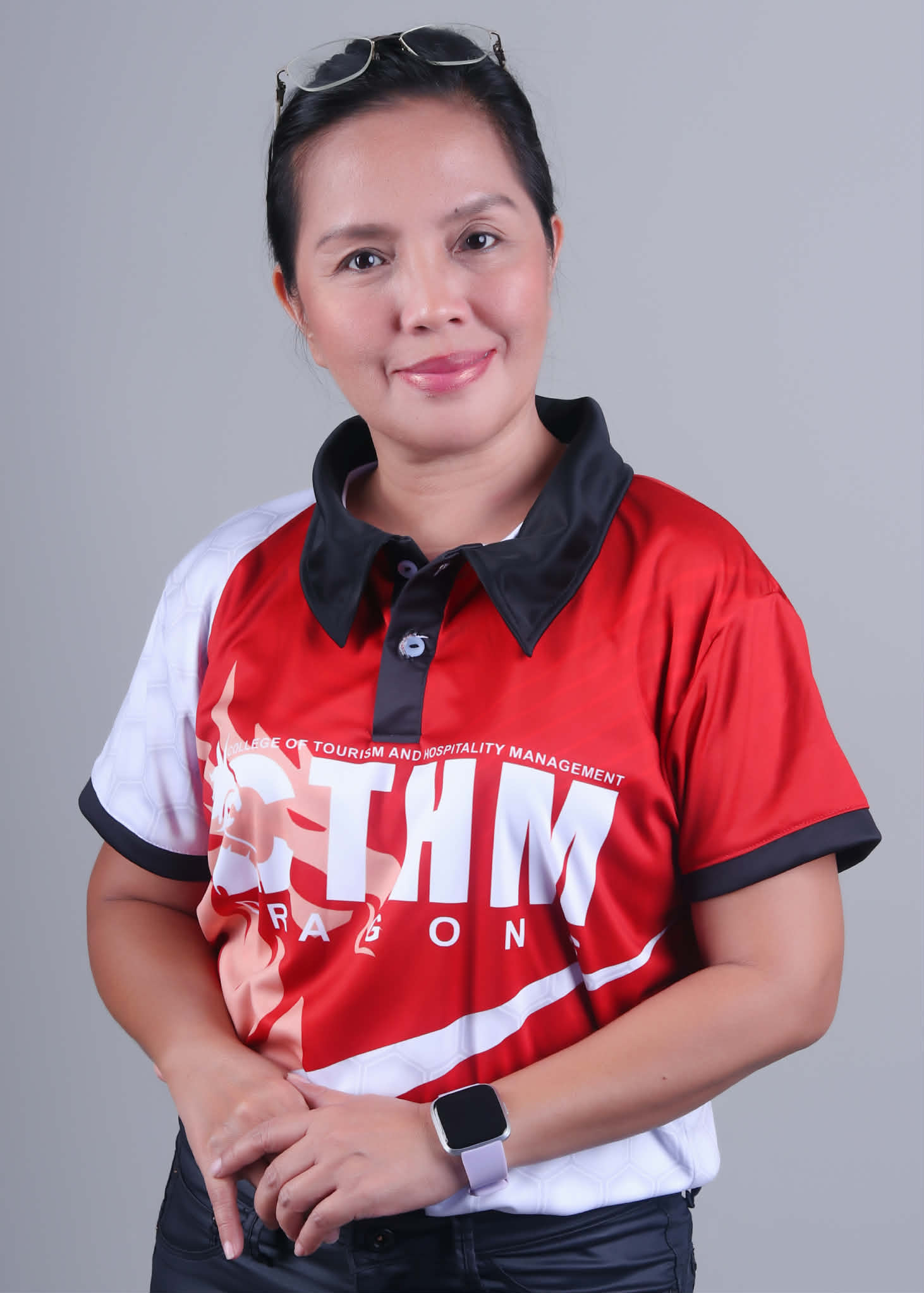
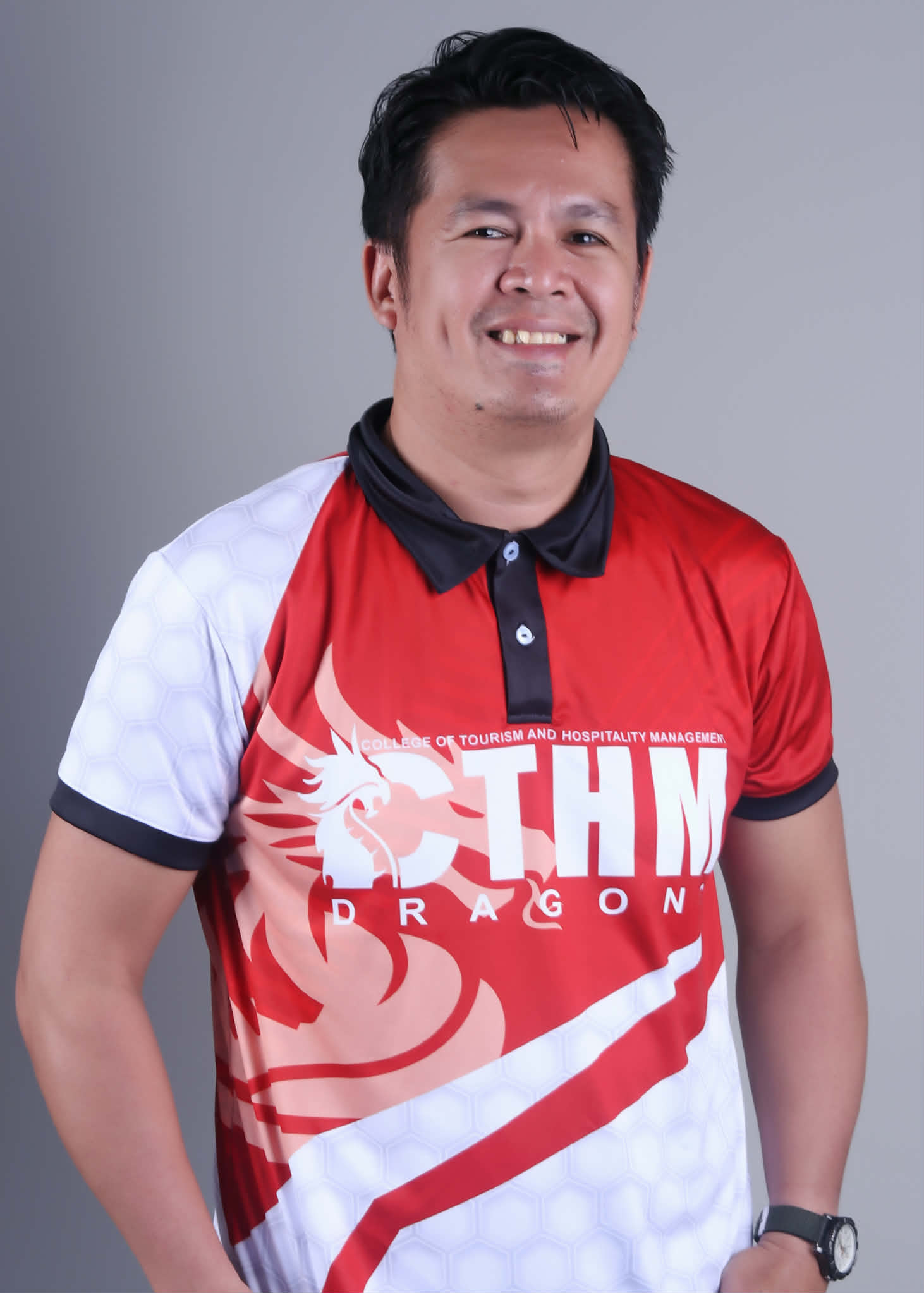

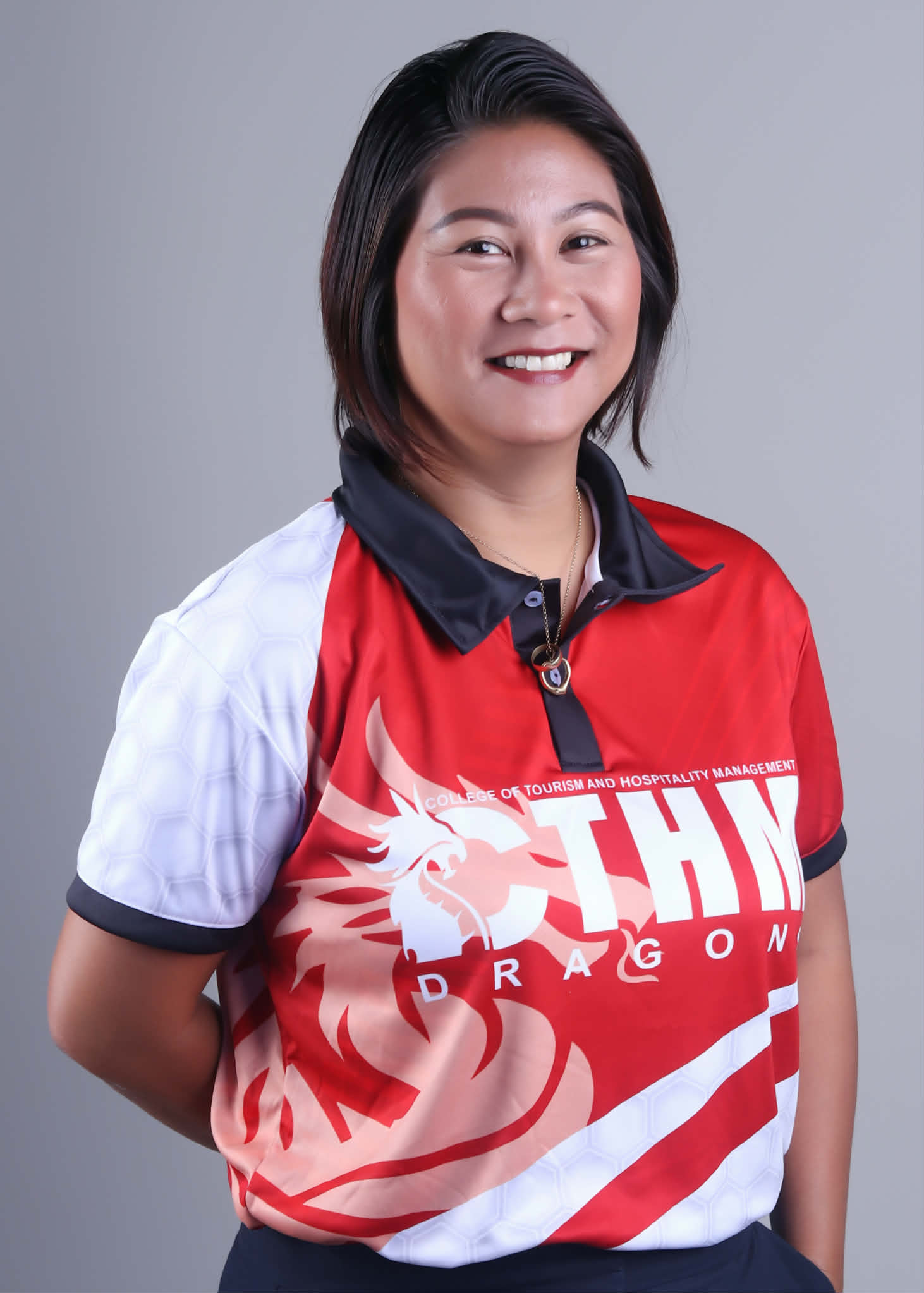
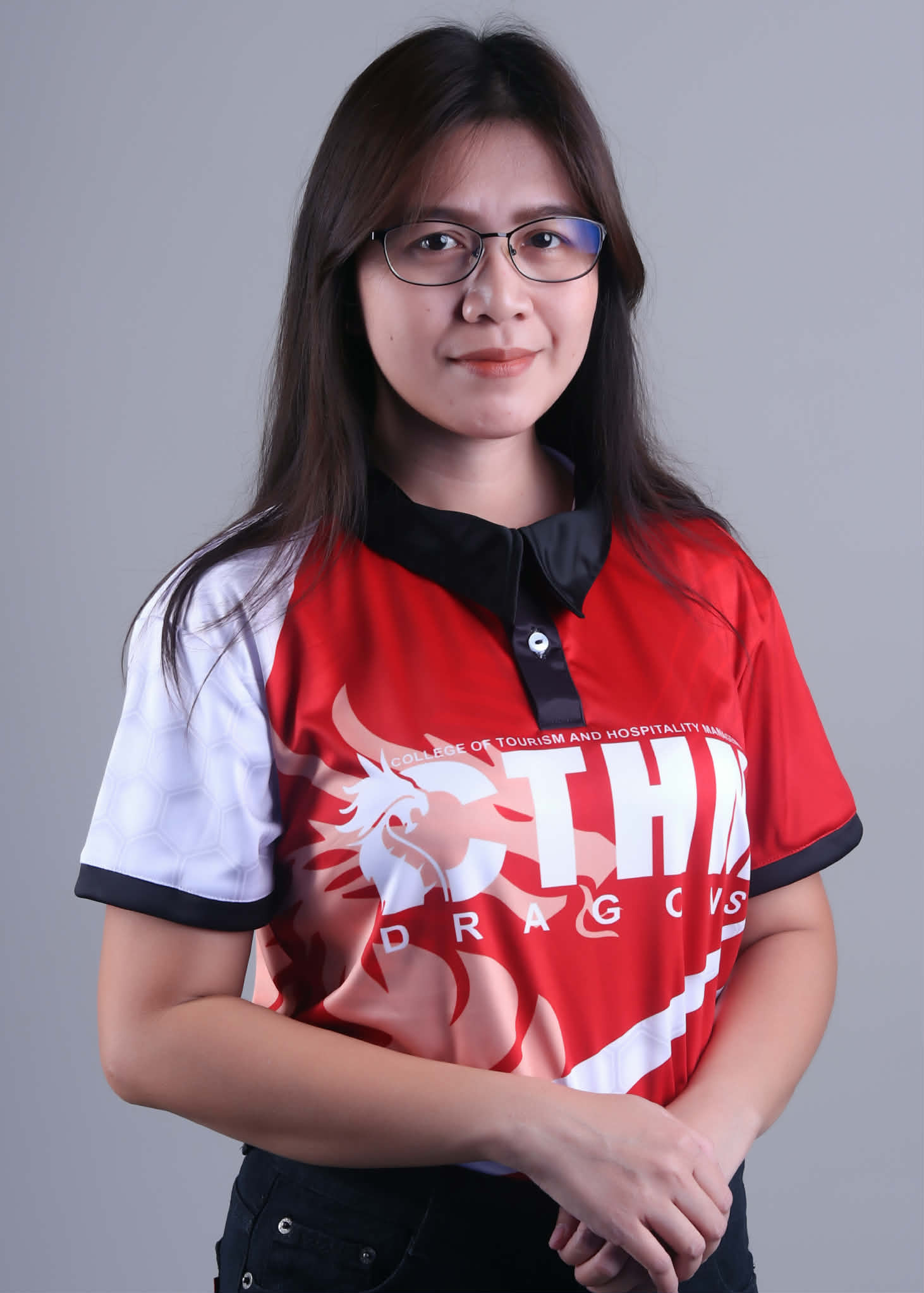

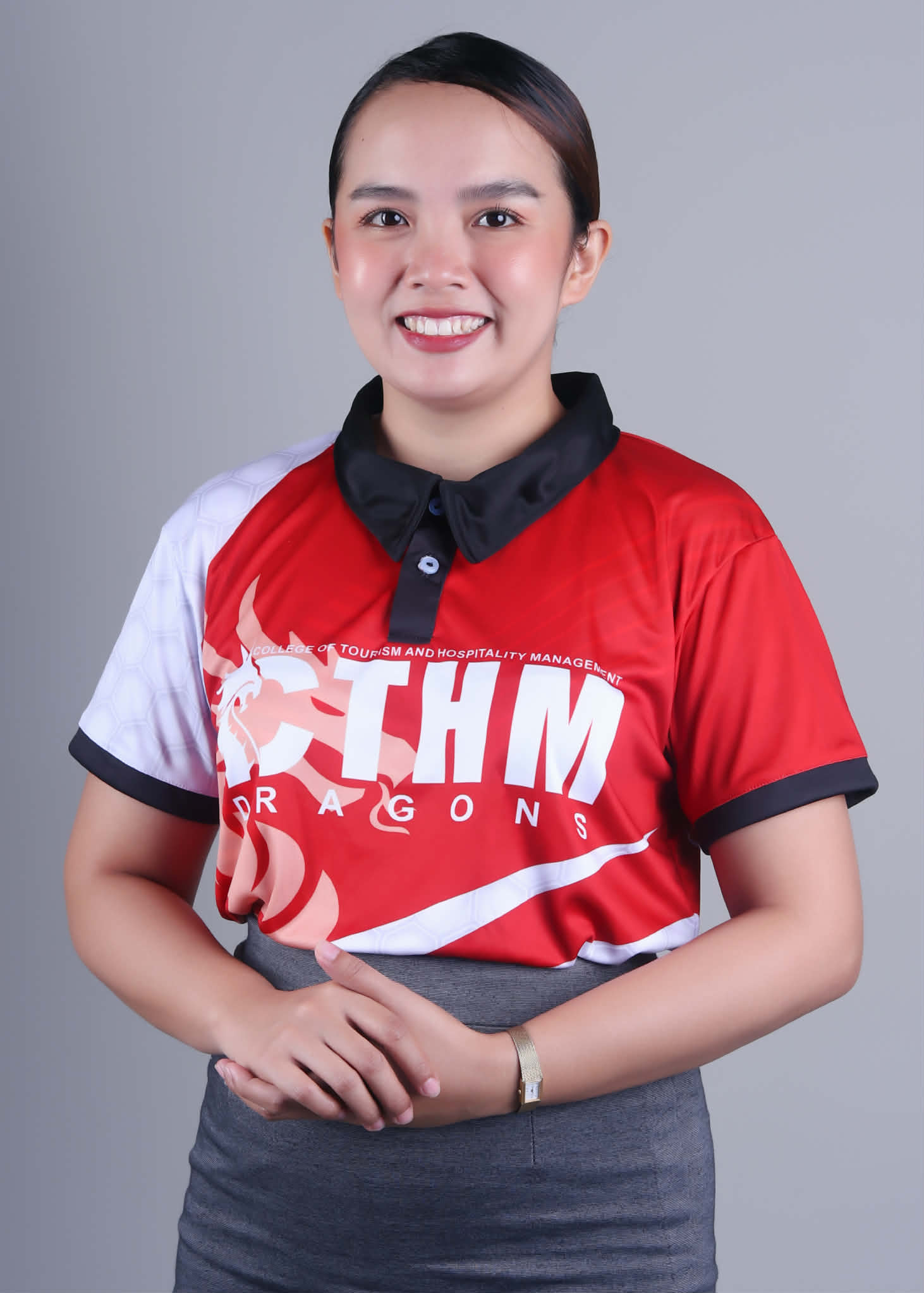
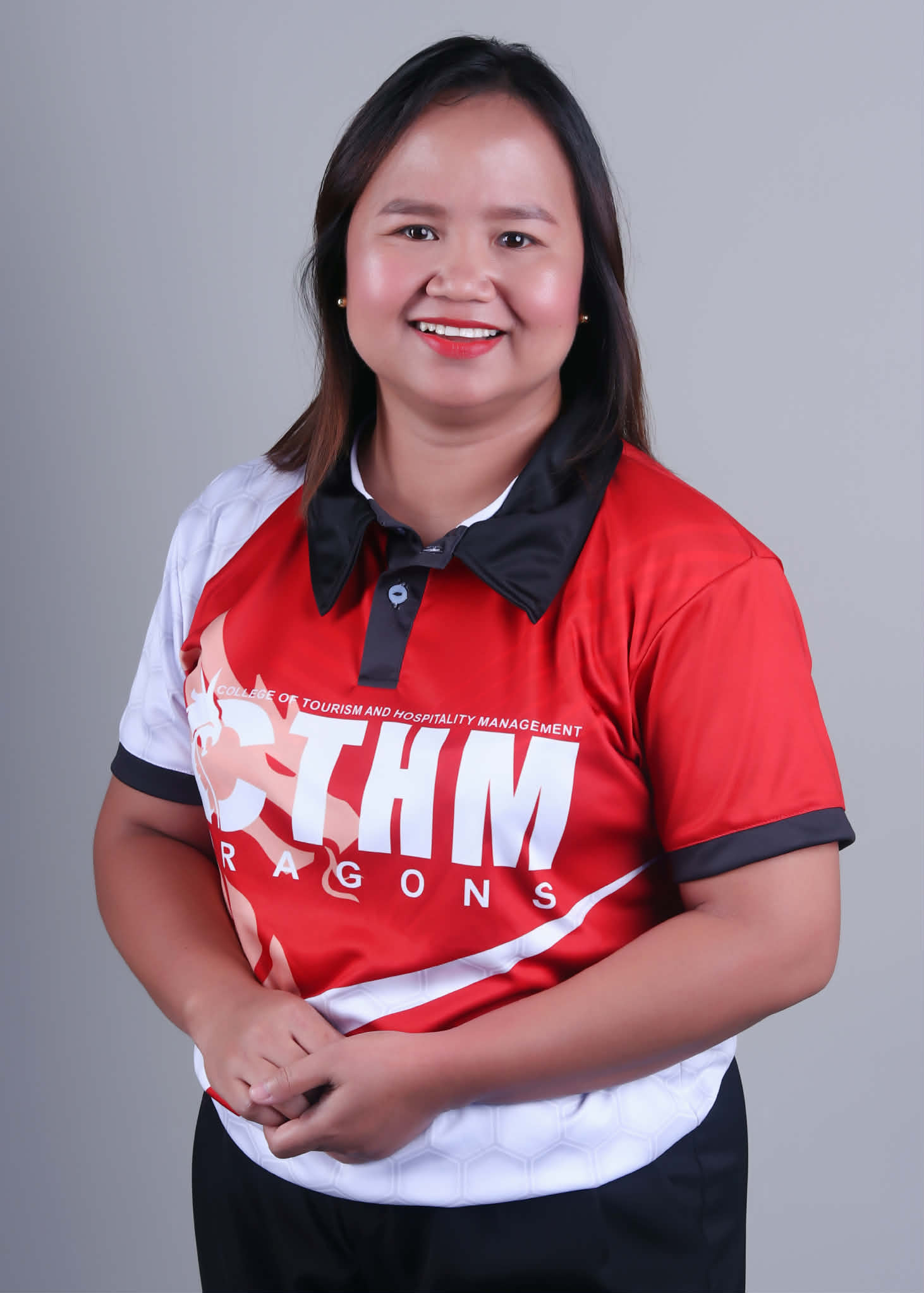

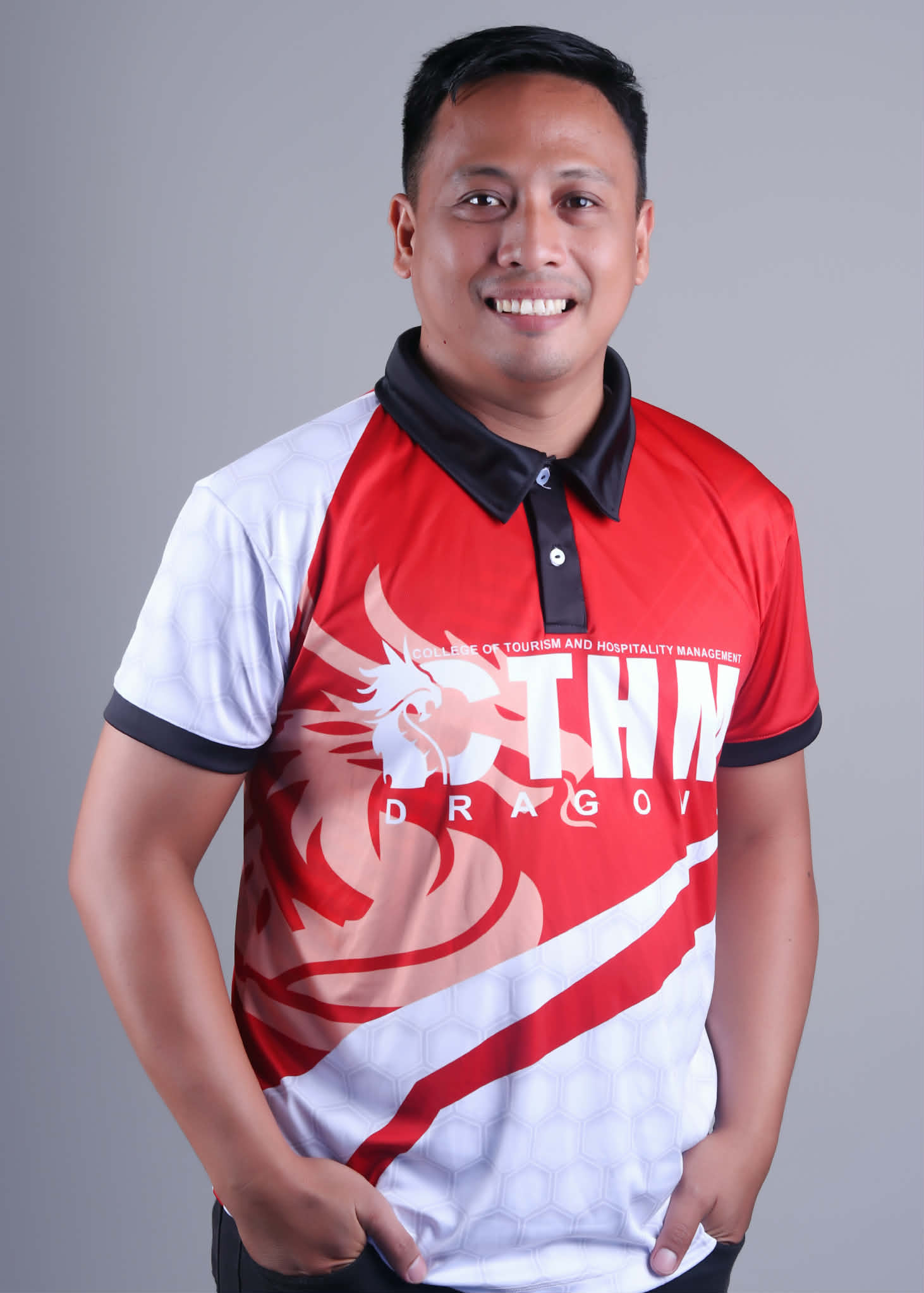

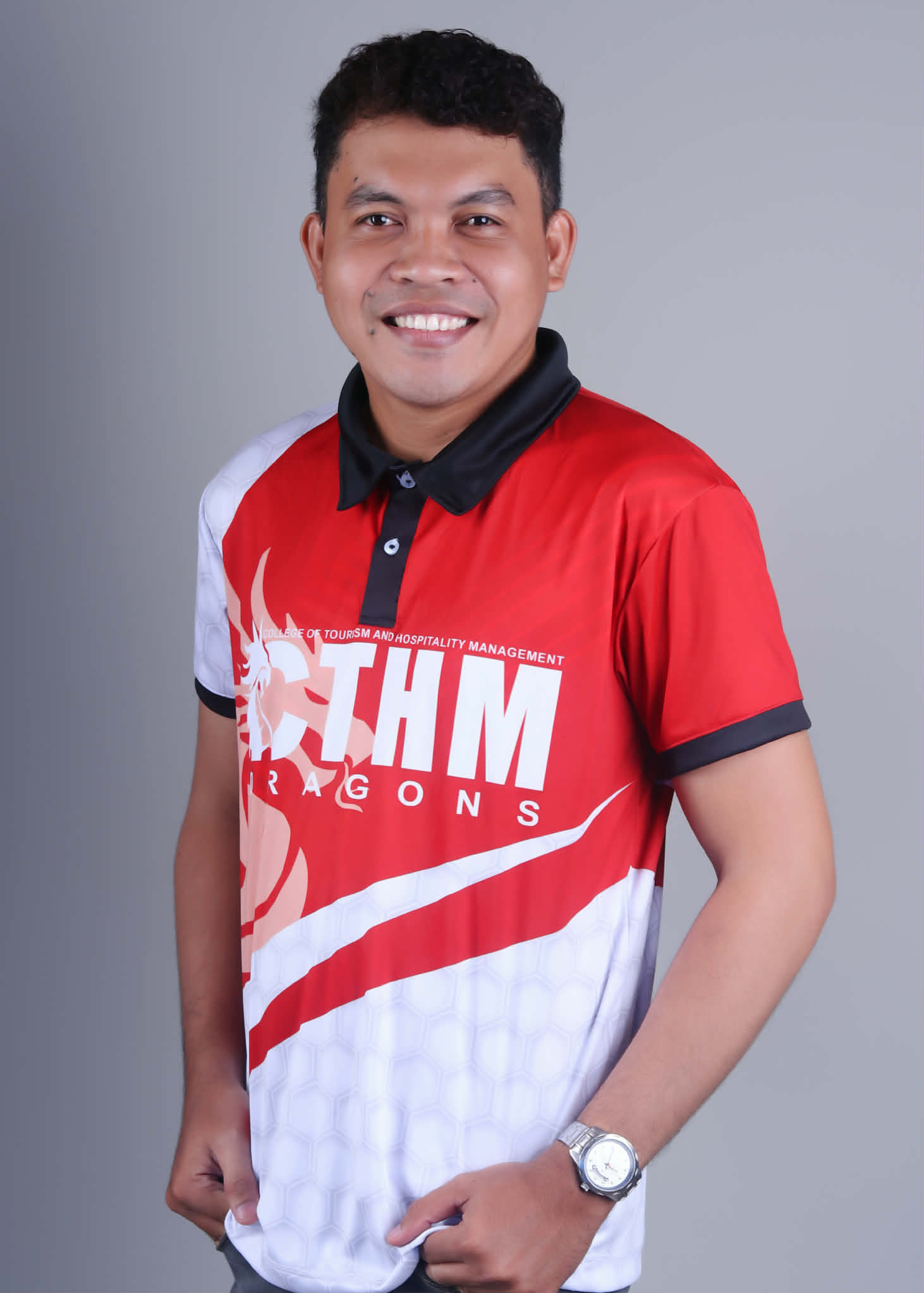

Third Year Tourism and Hospitality Management students stepped into a real-world hiring setting during an industry-guided Mock Interview conducted under THM 6 – Personality Development and Applied Ethics. The activity was enriched by the presence of HR practitioners and industry partners Valerie Pantalita, Krissia Angelic Katada, Ivy Leah Santillan, Raymund Pagaygay, Kirk Henry Demaclid, Kerwin Quisel, Ciara Cultura, Joseph Emmanuel Ambo, Beverly Marcela Pastor, and Herlyn Jane Elep, who shared valuable insights on professional conduct, effective communication, and ethical decision-making equipping students with the confidence and competence needed for their future careers in tourism and hospitality.
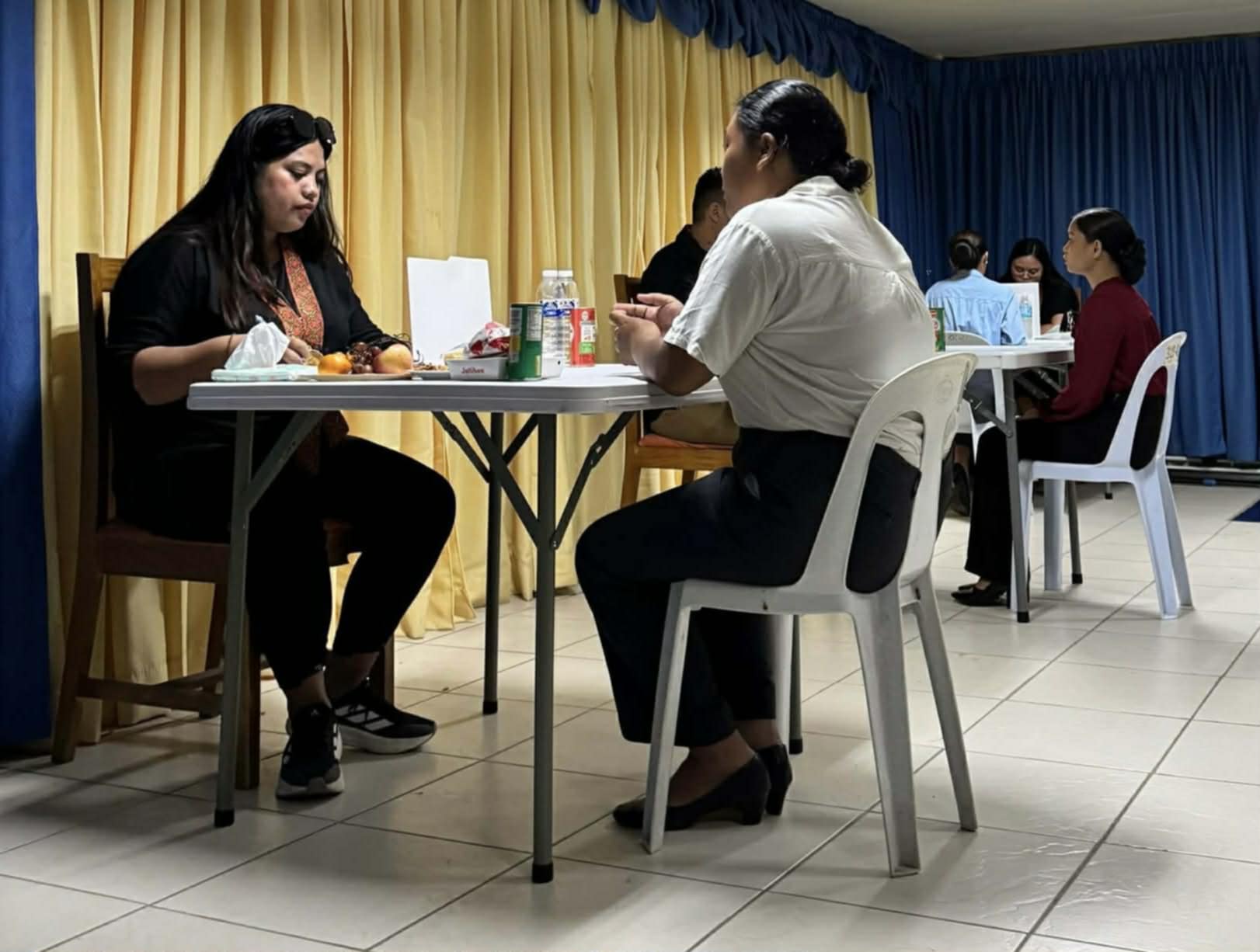
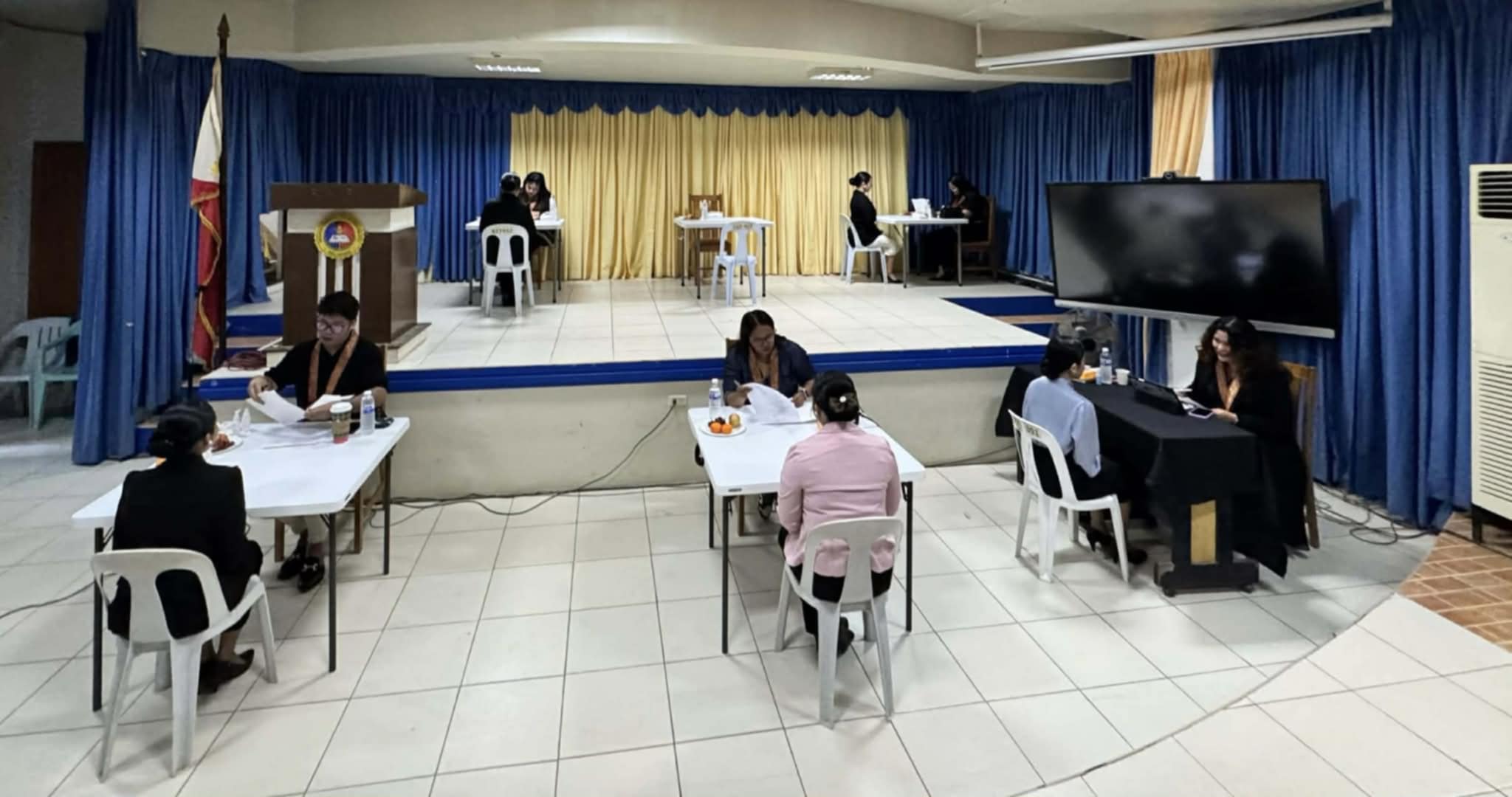
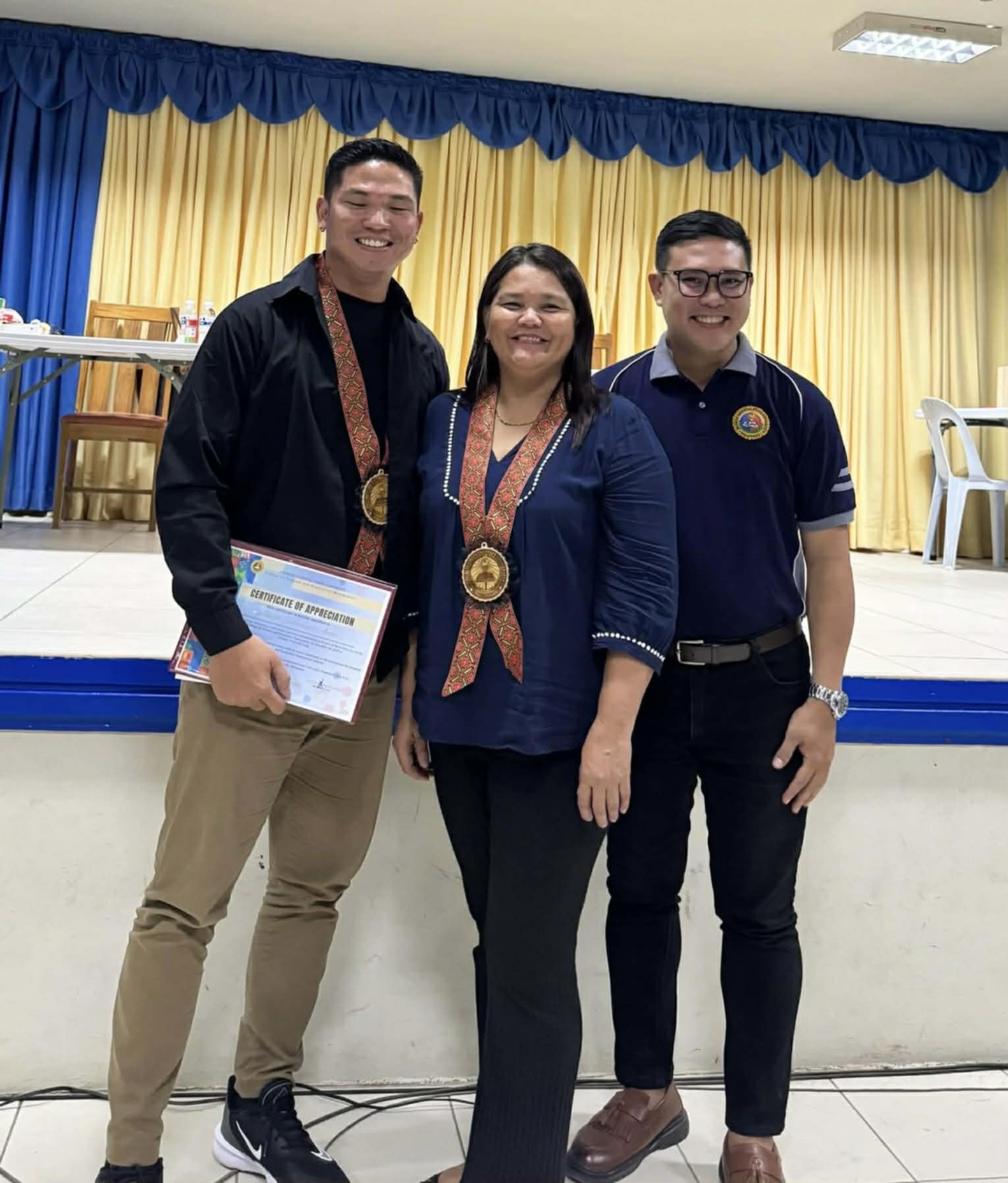
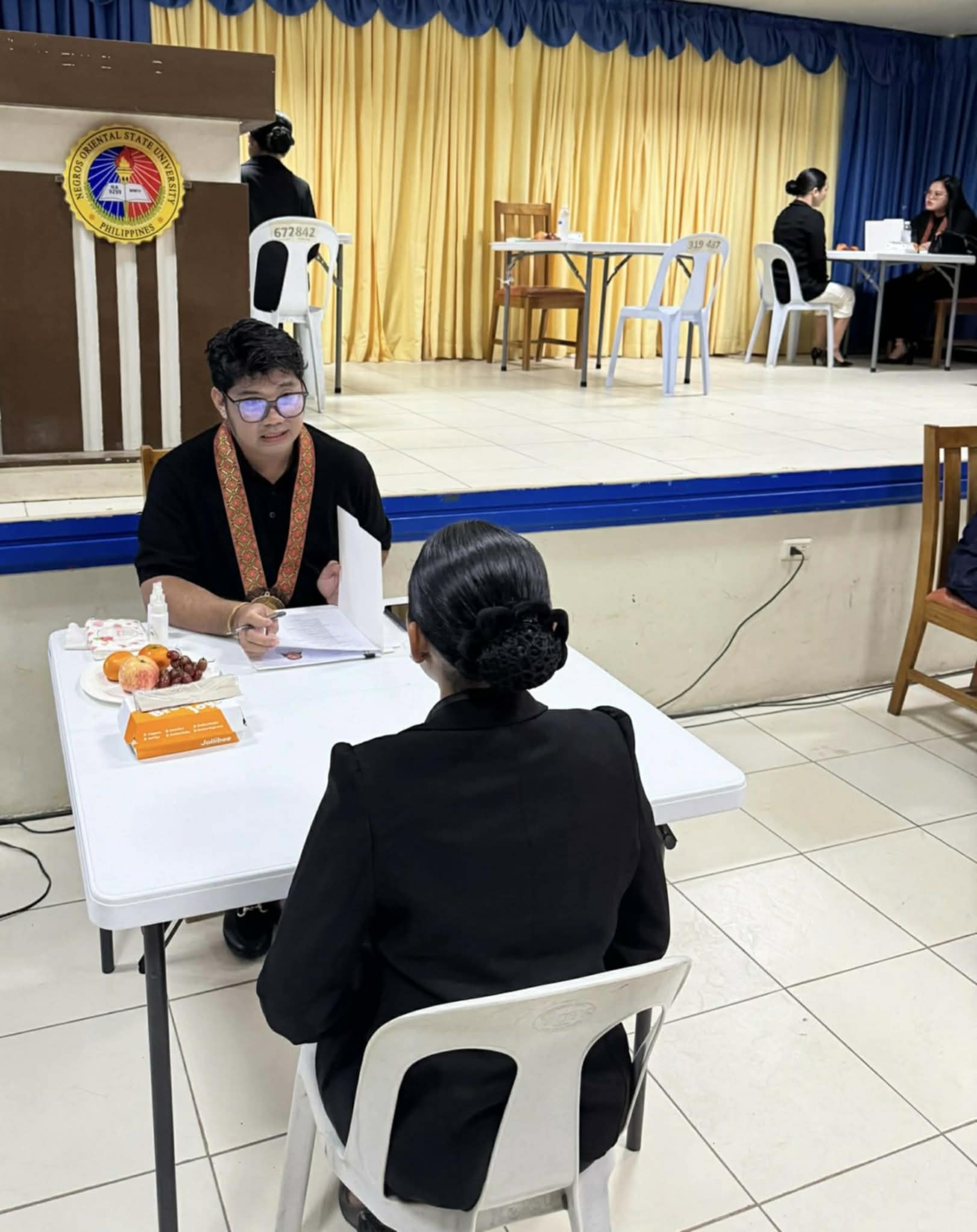
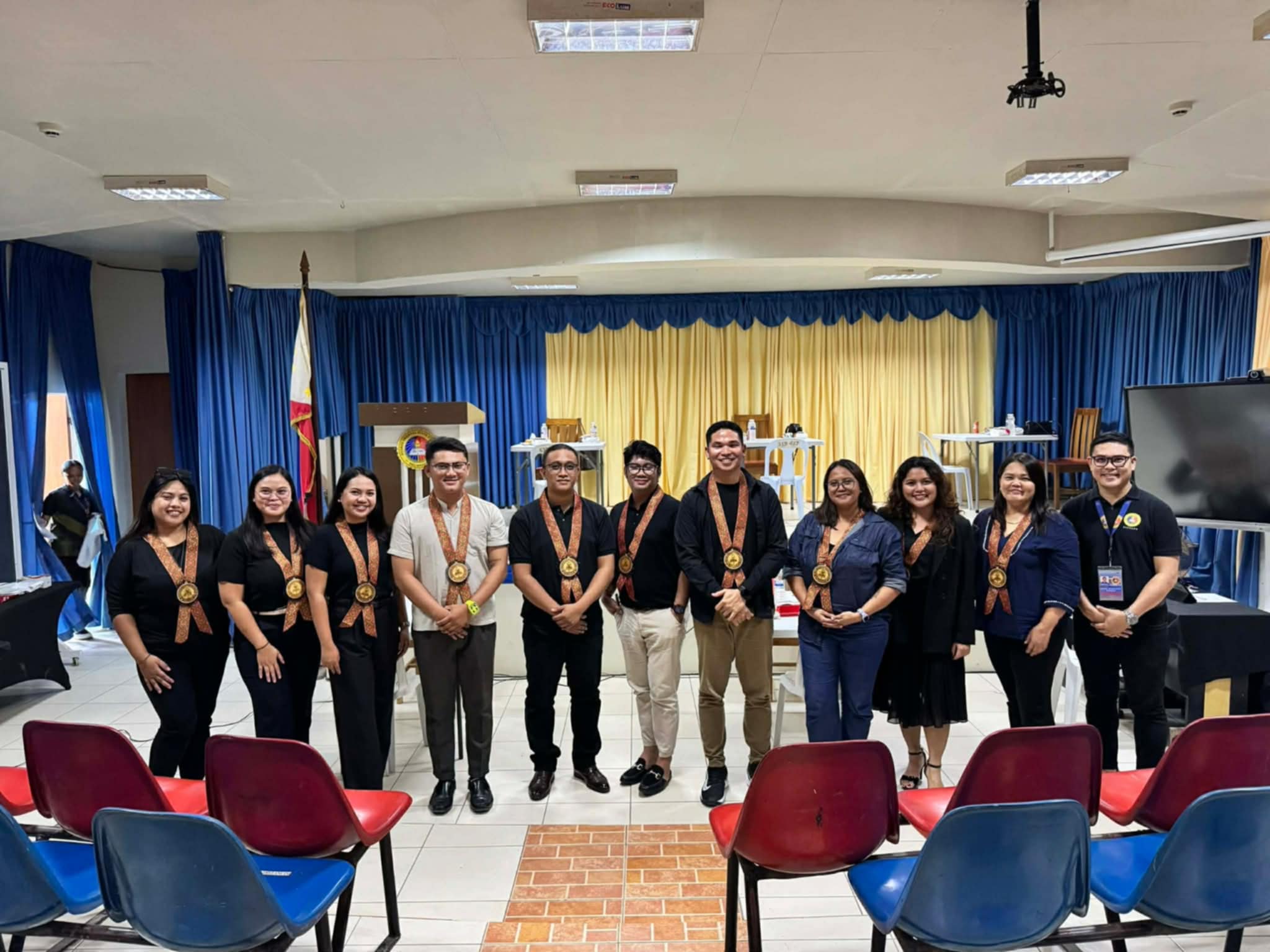
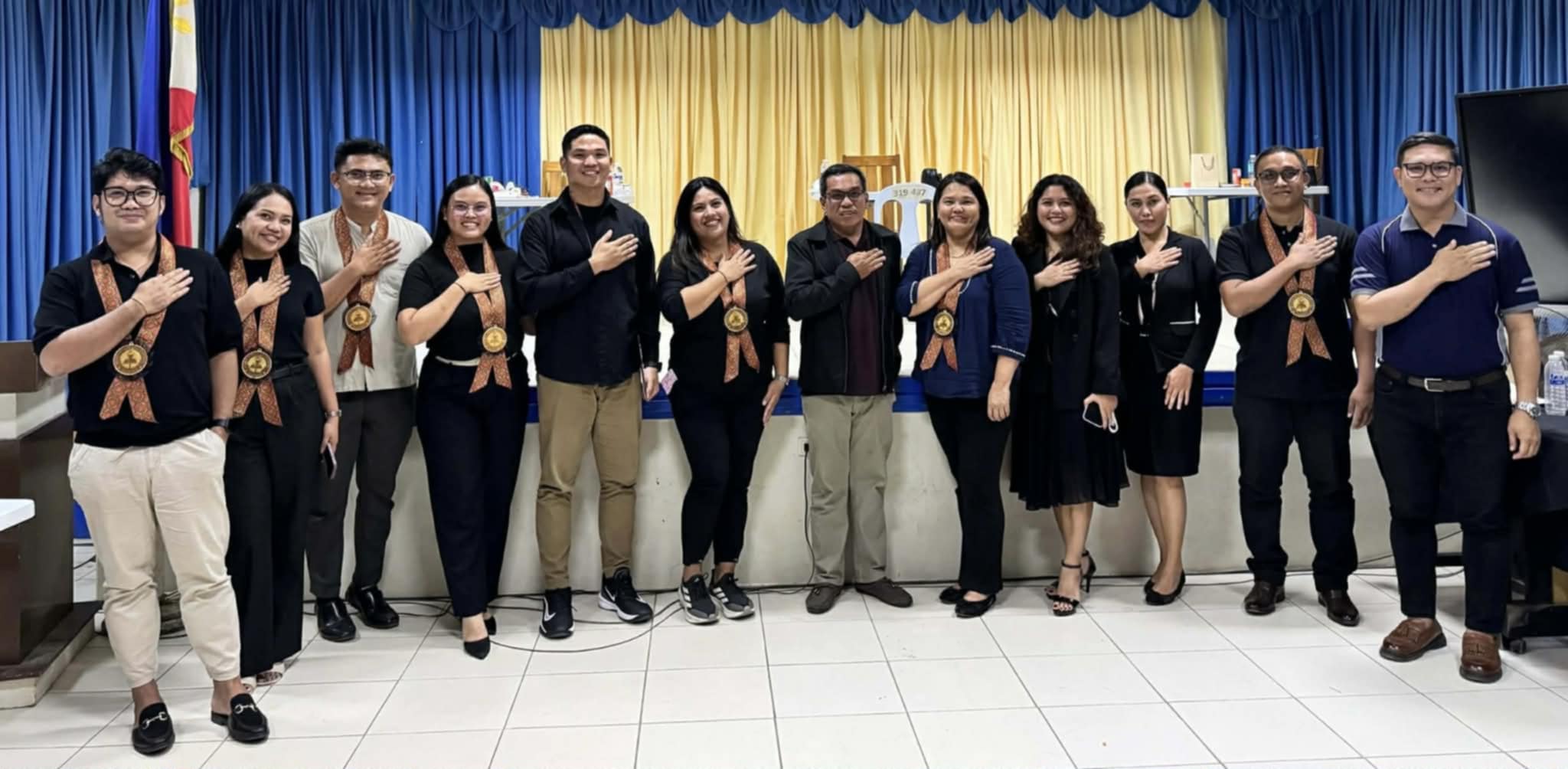
Hospitality Management and Tourism students formally underwent their research oral defense from December 15- January 10, 2025, a critical academic requirement under HM 401 (Research in Hospitality) and TOUR 401 (Research in Tourism) marking a defining milestone in their research journey.
Guiding and evaluating the defenses were the content analysts and panel members: Prof. Lyra Espinosa, Prof. Millard Vaughn Tubog, Prof. Angeline Torres, Prof. Jane Leyva, Dr. Ryan Tayco, and Dr. Tulip Lopez.
Special recognition is also given to the students’ statisticians: Dr. Junklein Teves, Dr. Regidor Carafe, and Dr. Marra Gaer whose expertise strengthened the rigor and credibility of the studies.
More than a requirement, the oral defense stood as a testament to critical thinking, scholarly discipline, and the readiness of future hospitality and tourism professionals to contribute meaningful research to the industry.
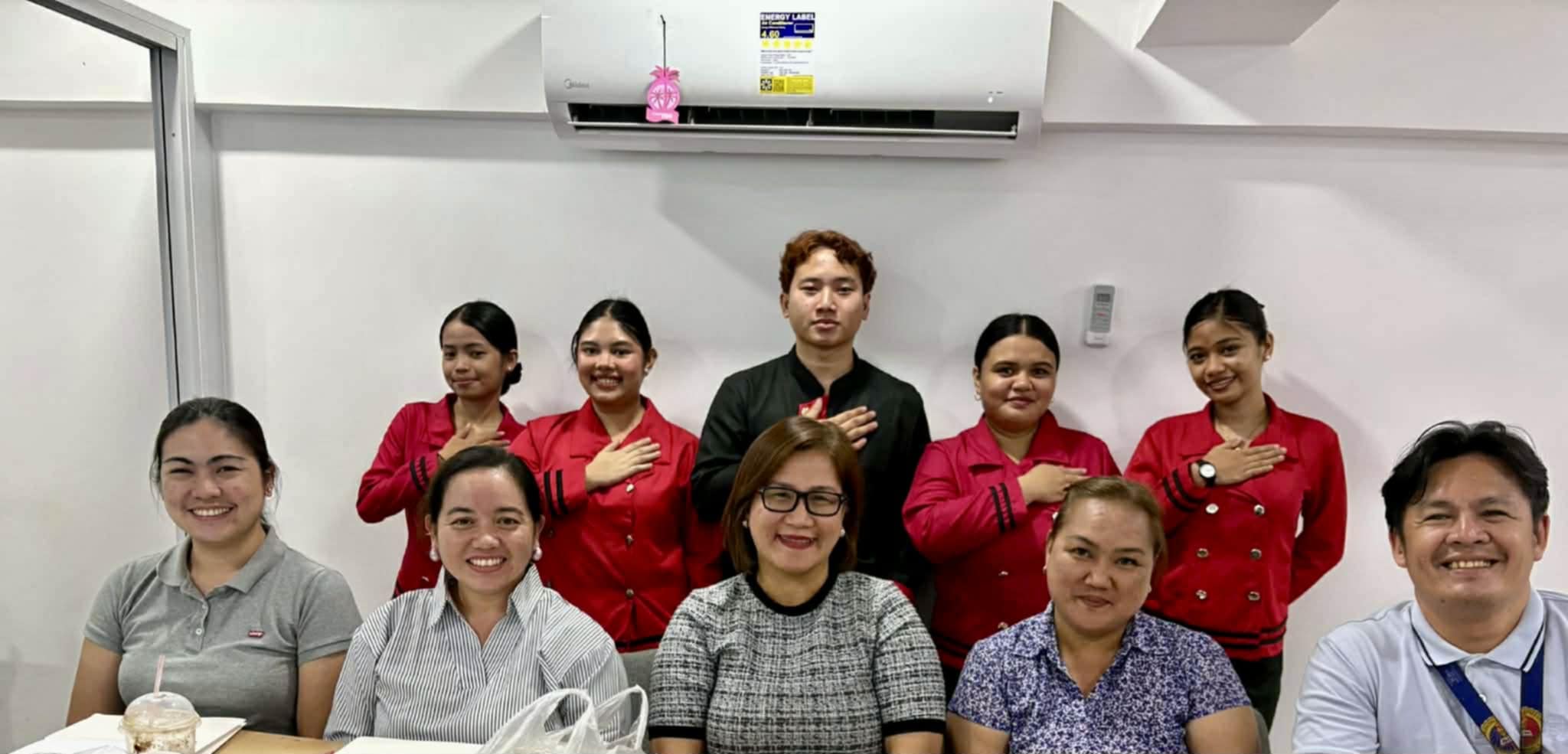
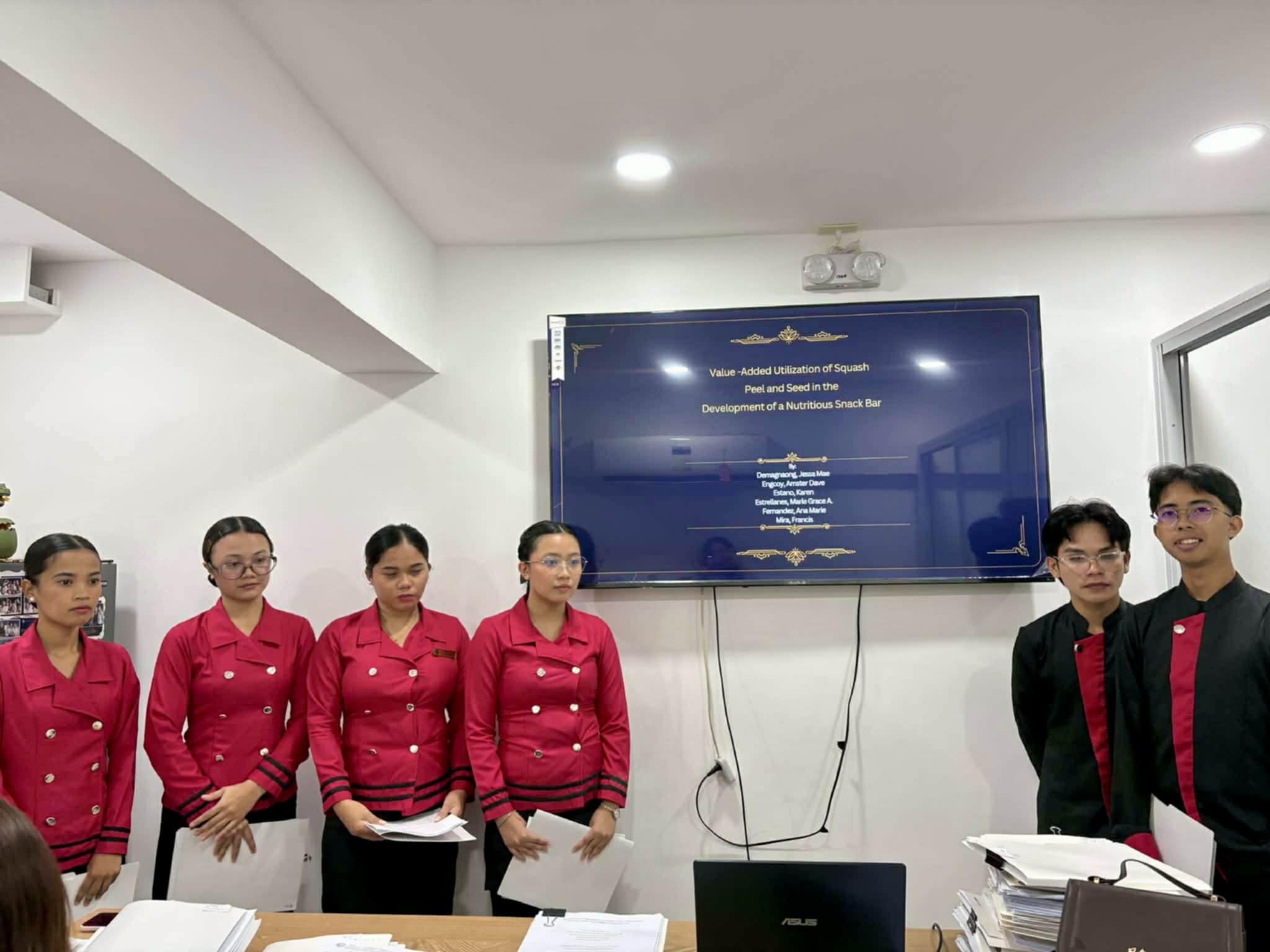
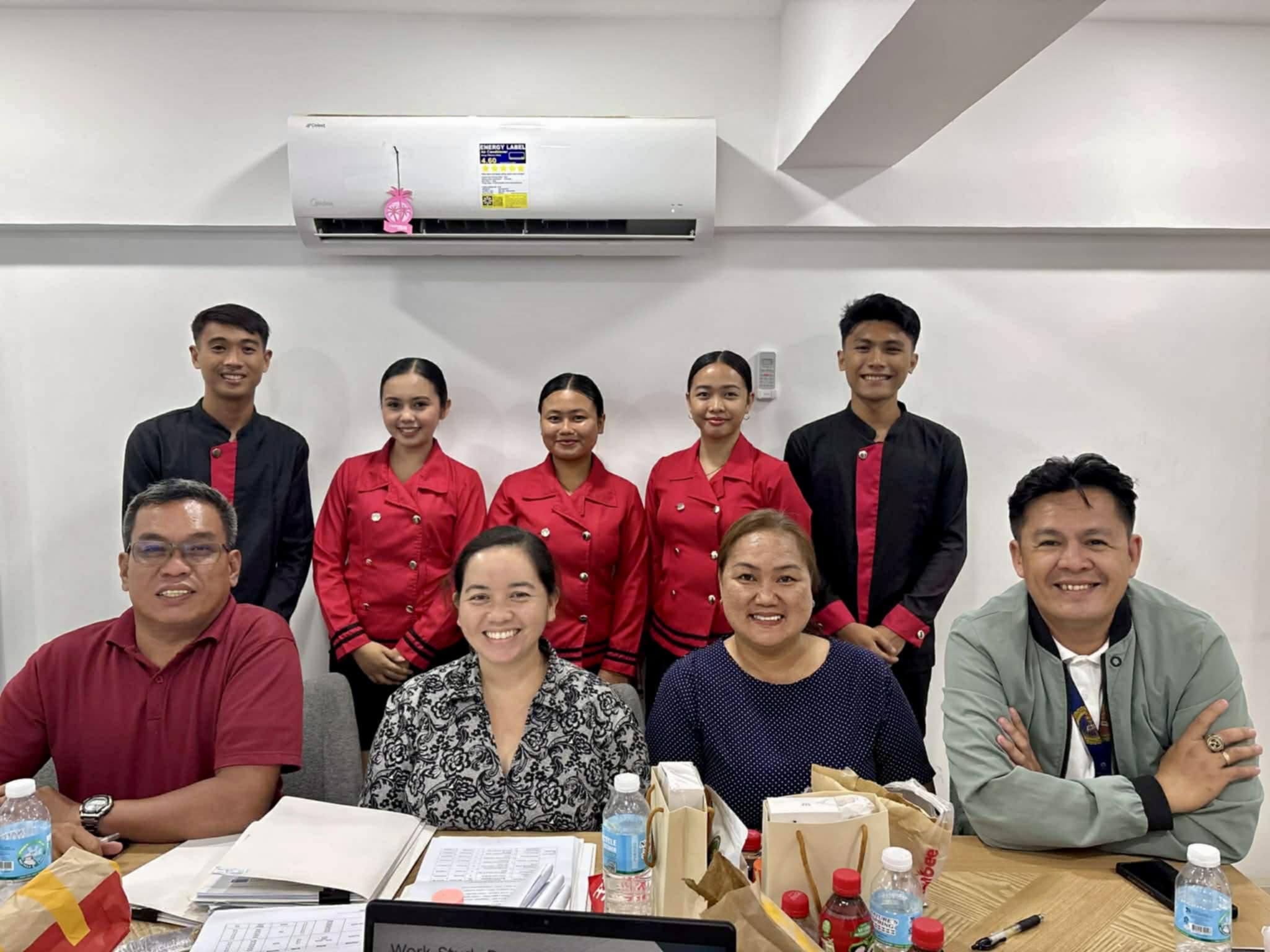
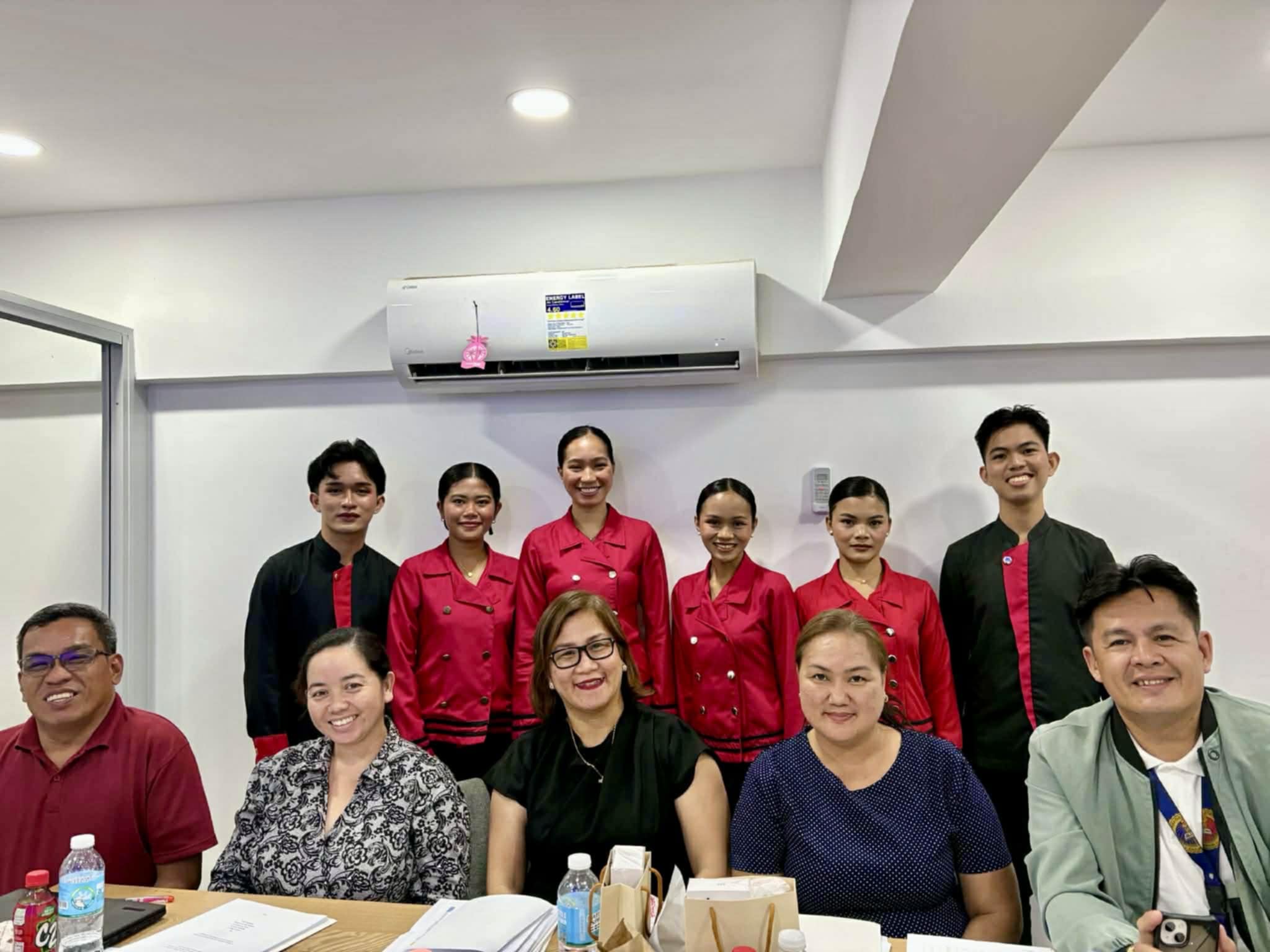
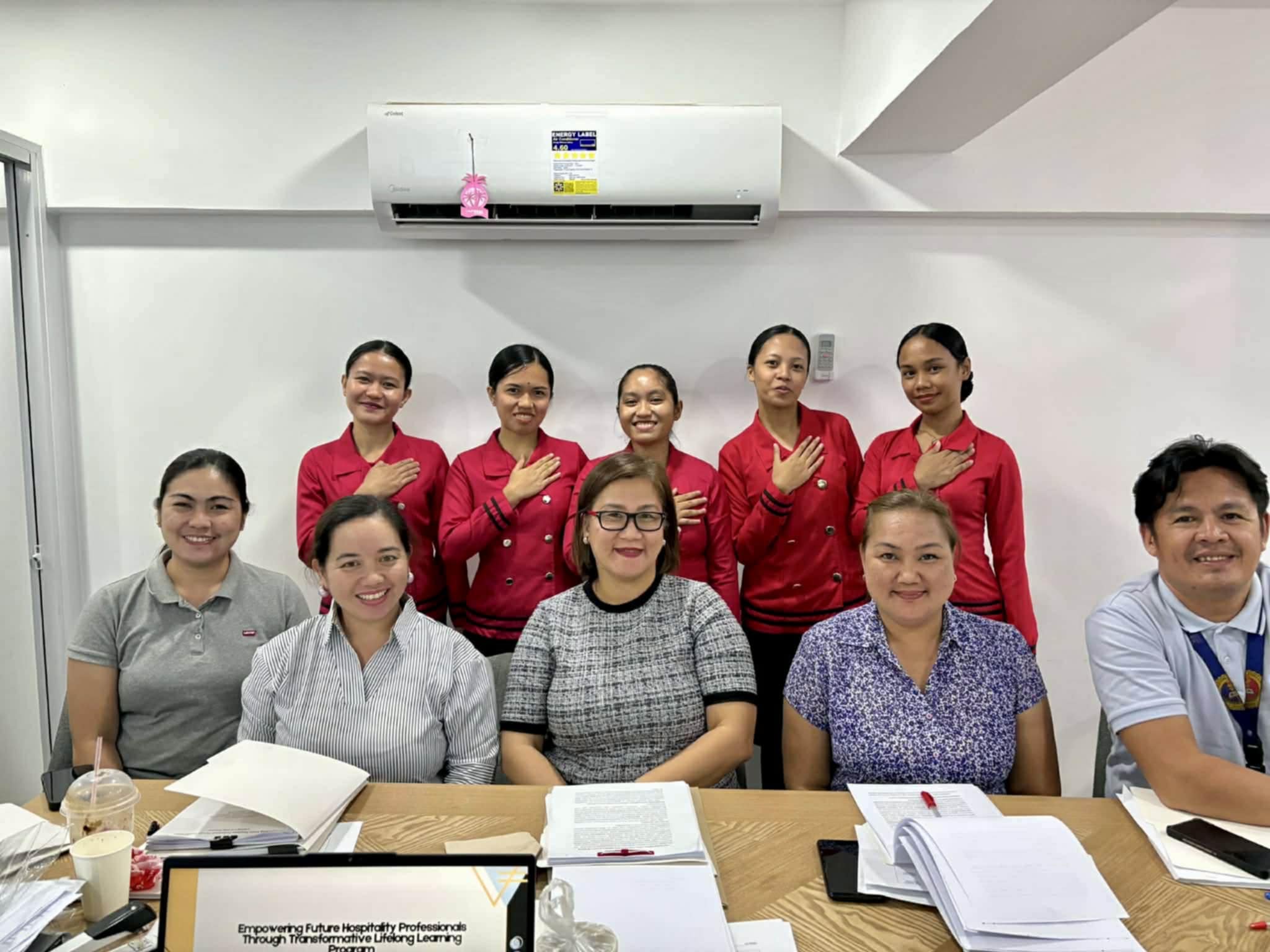
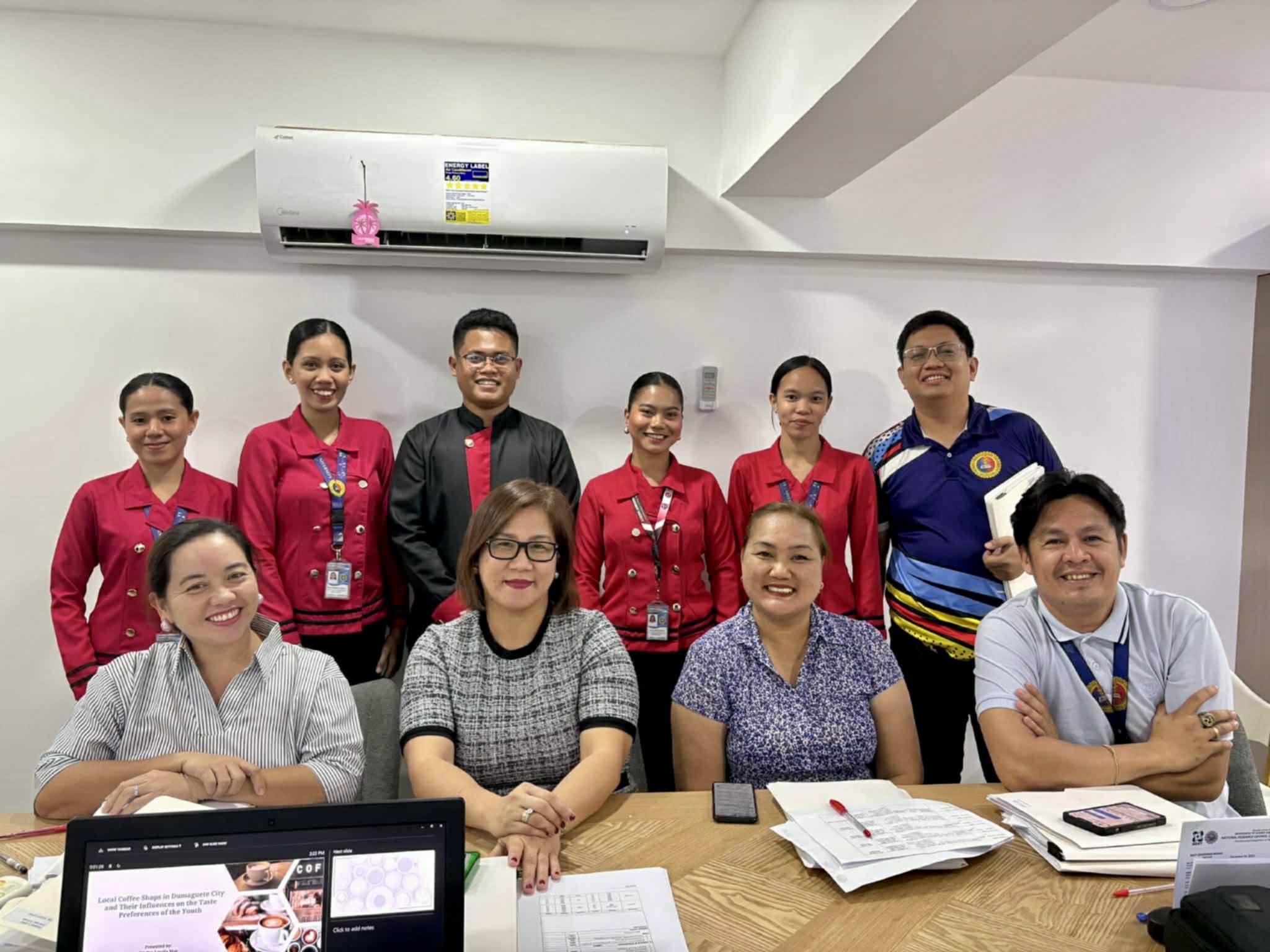
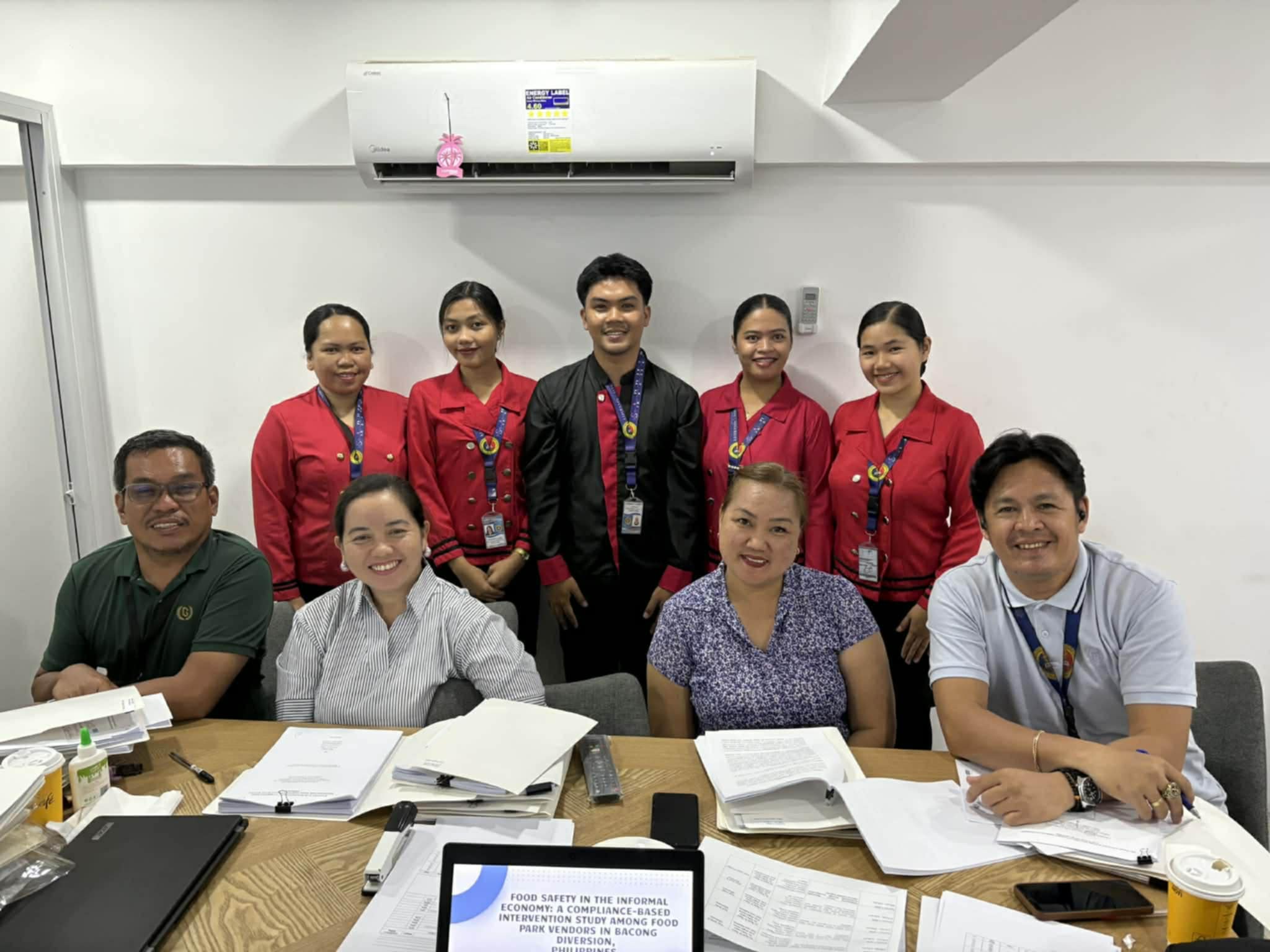
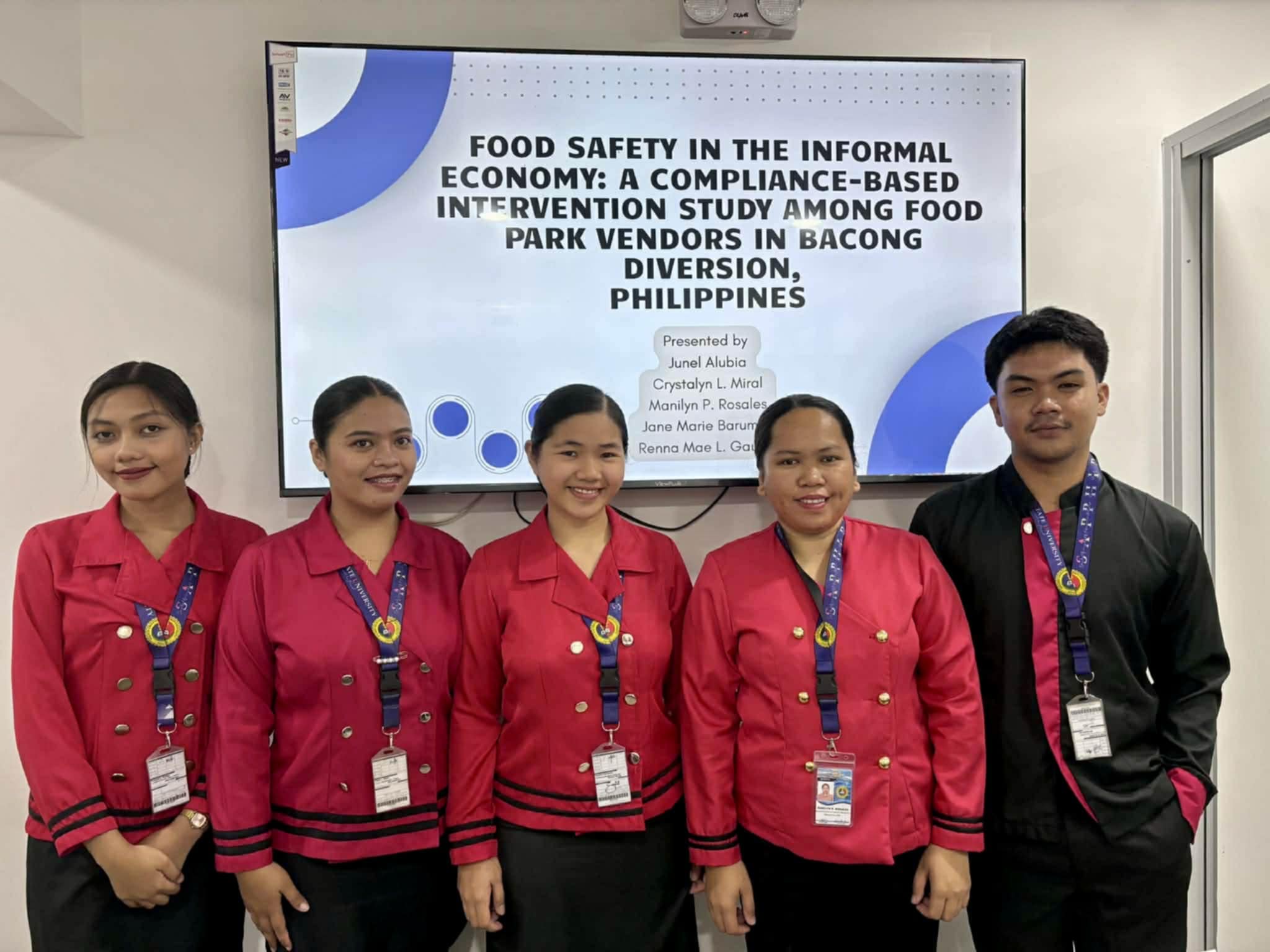
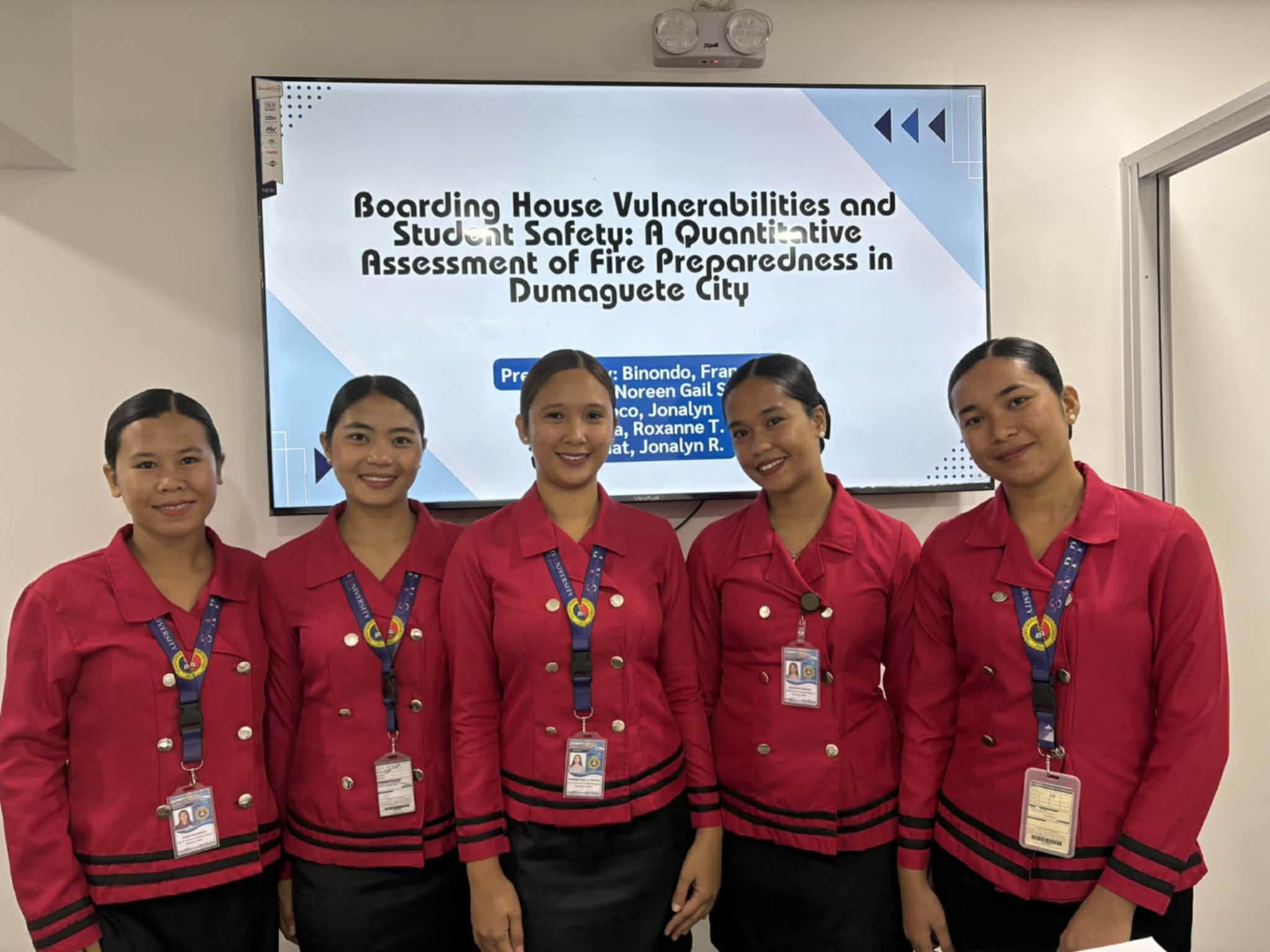
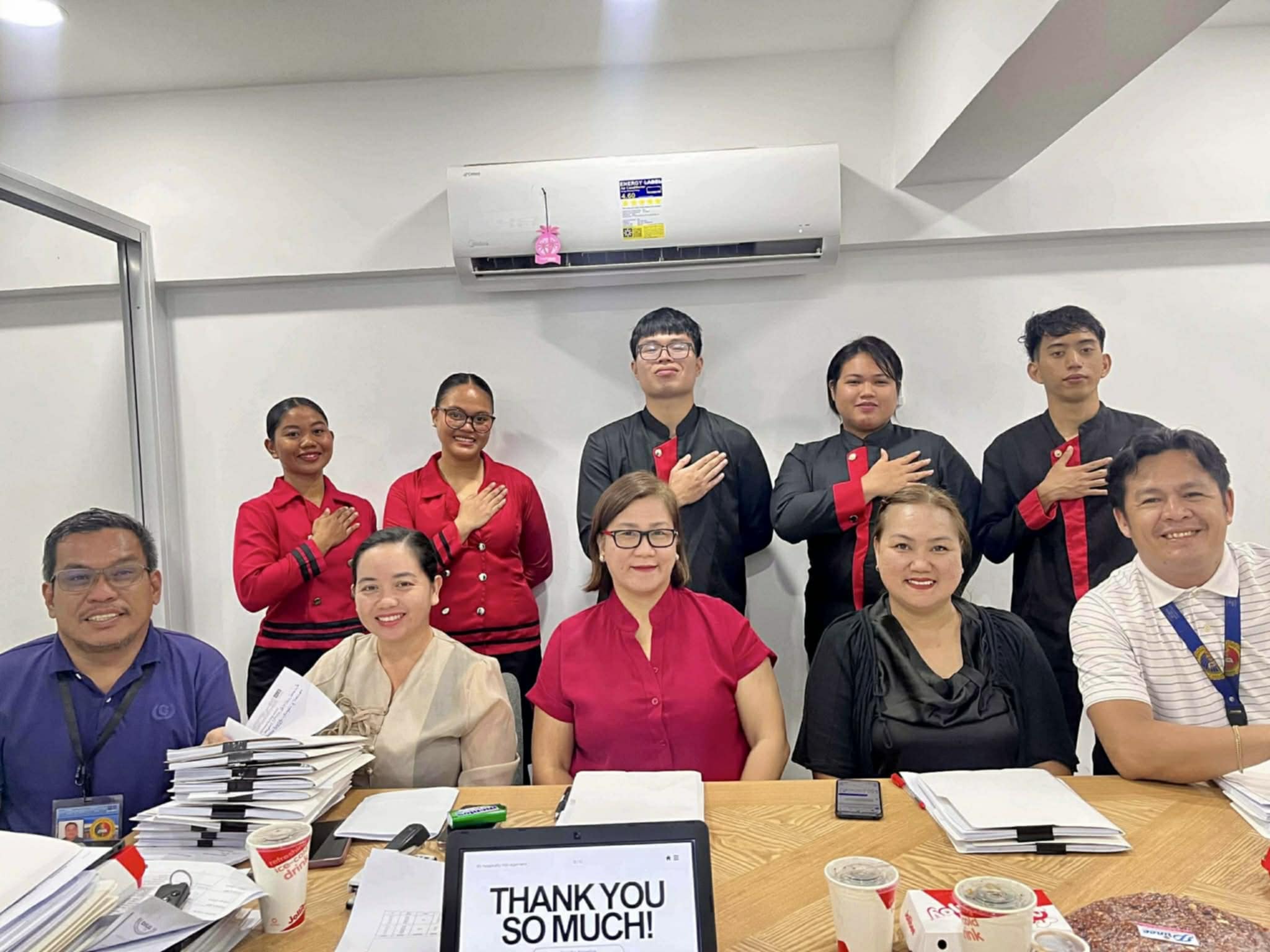
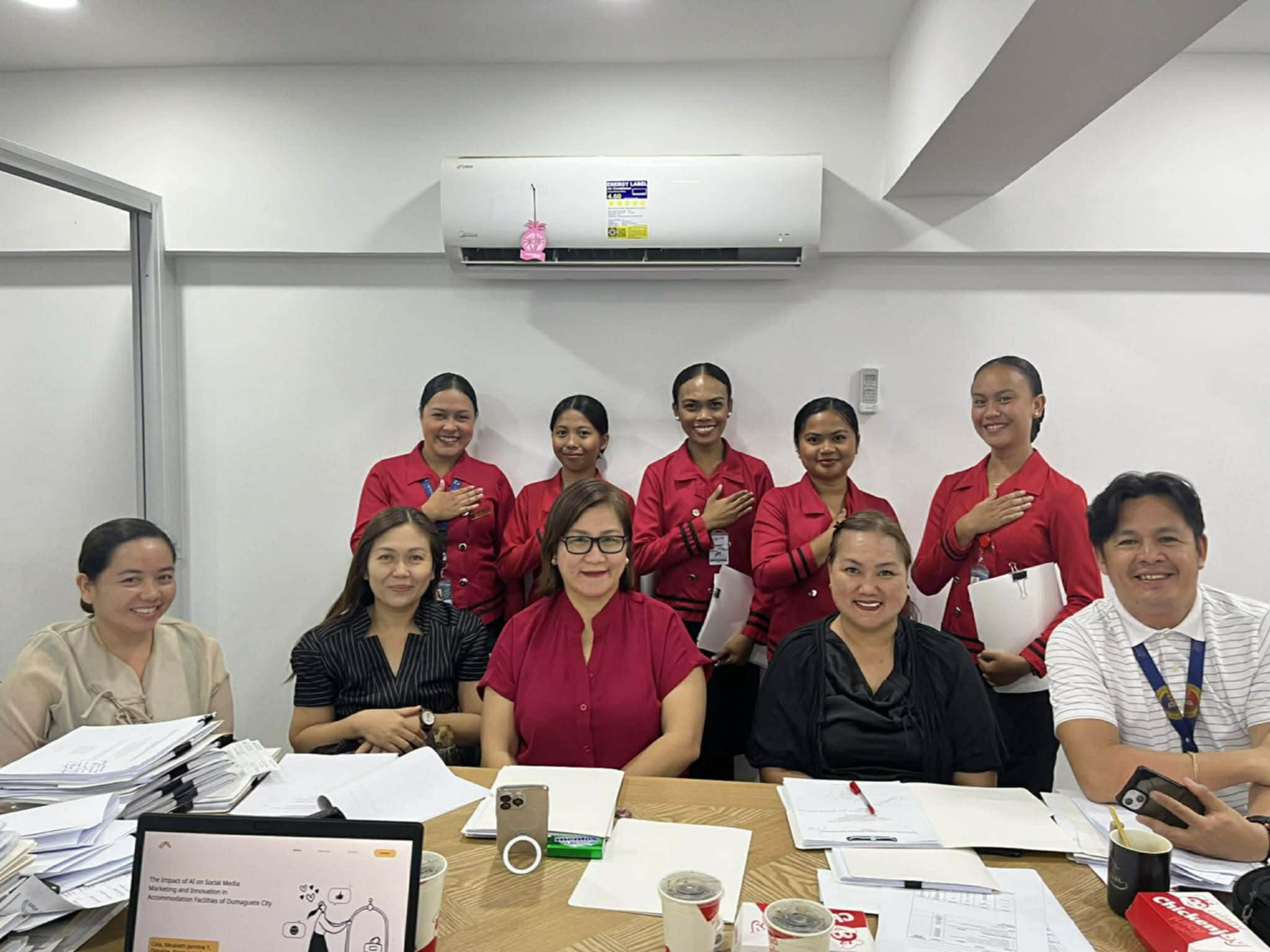
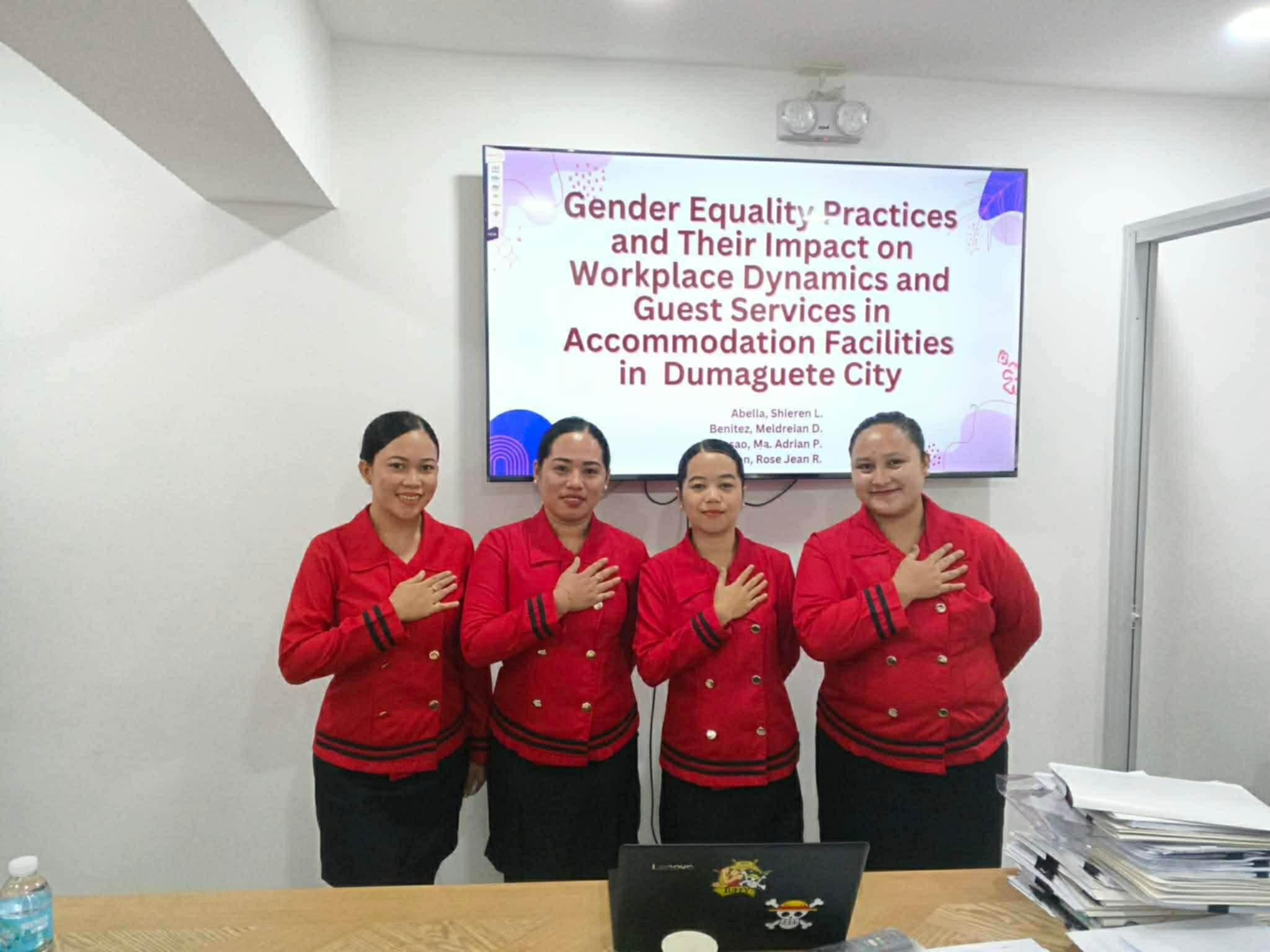
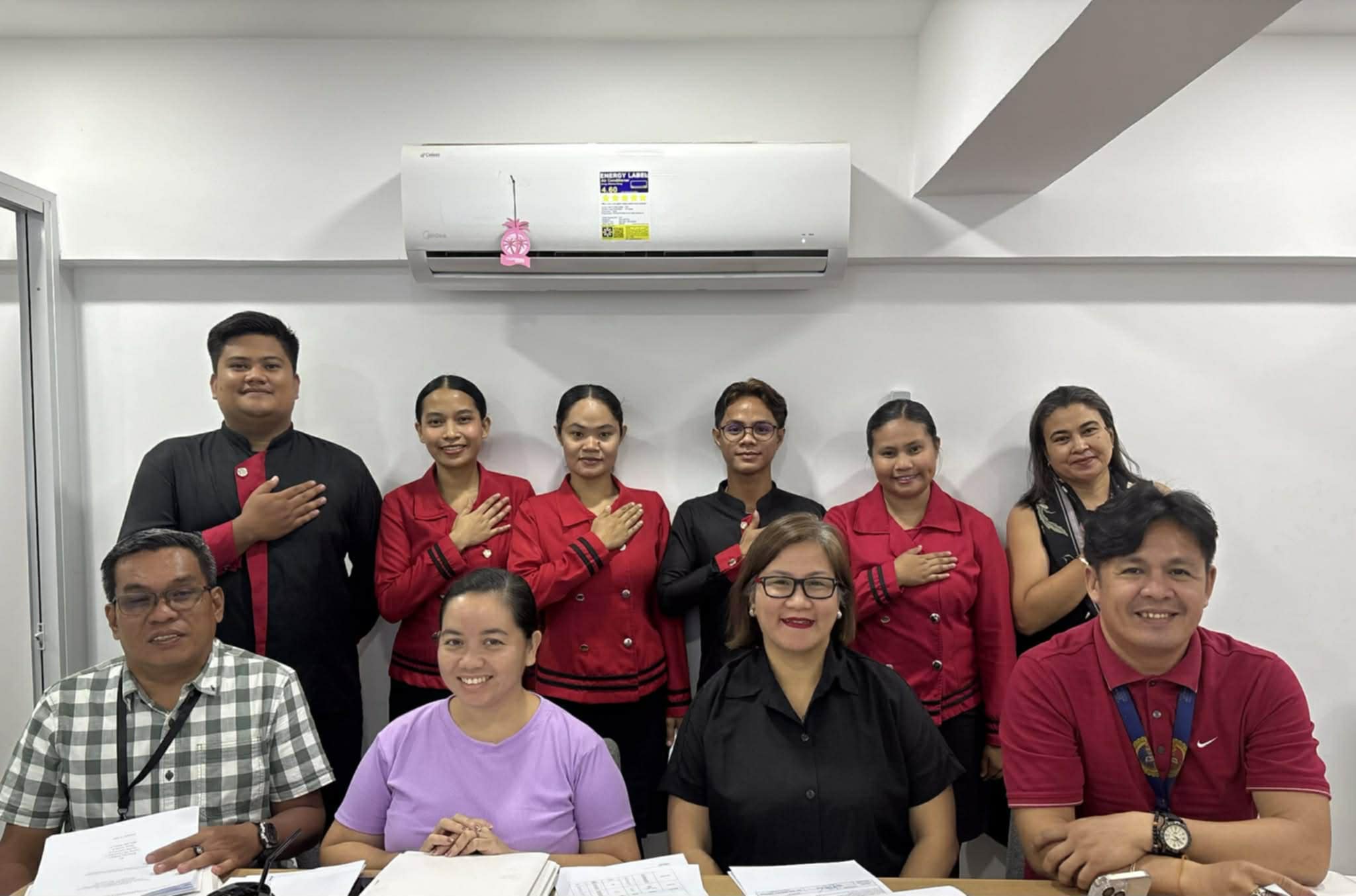
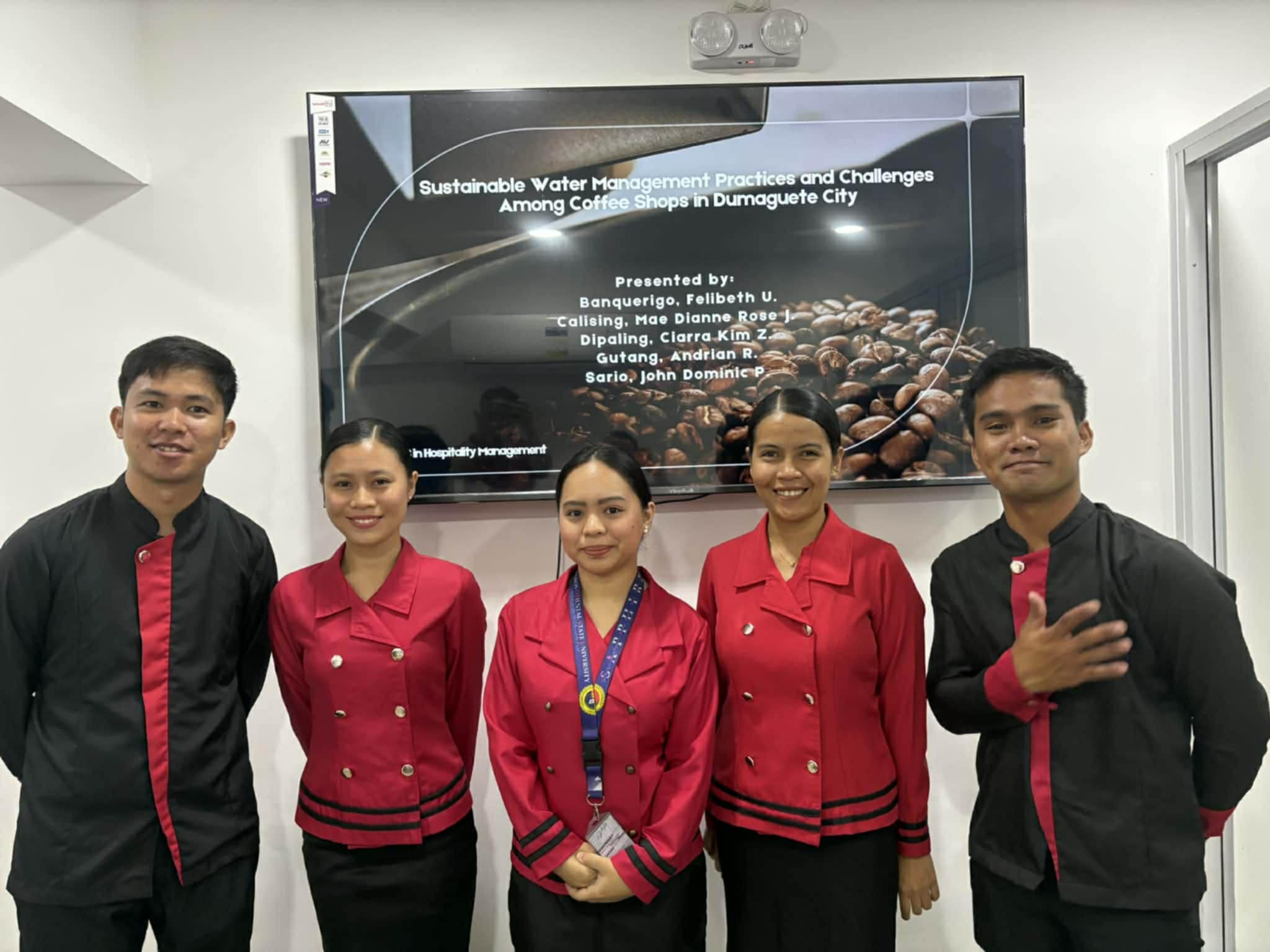
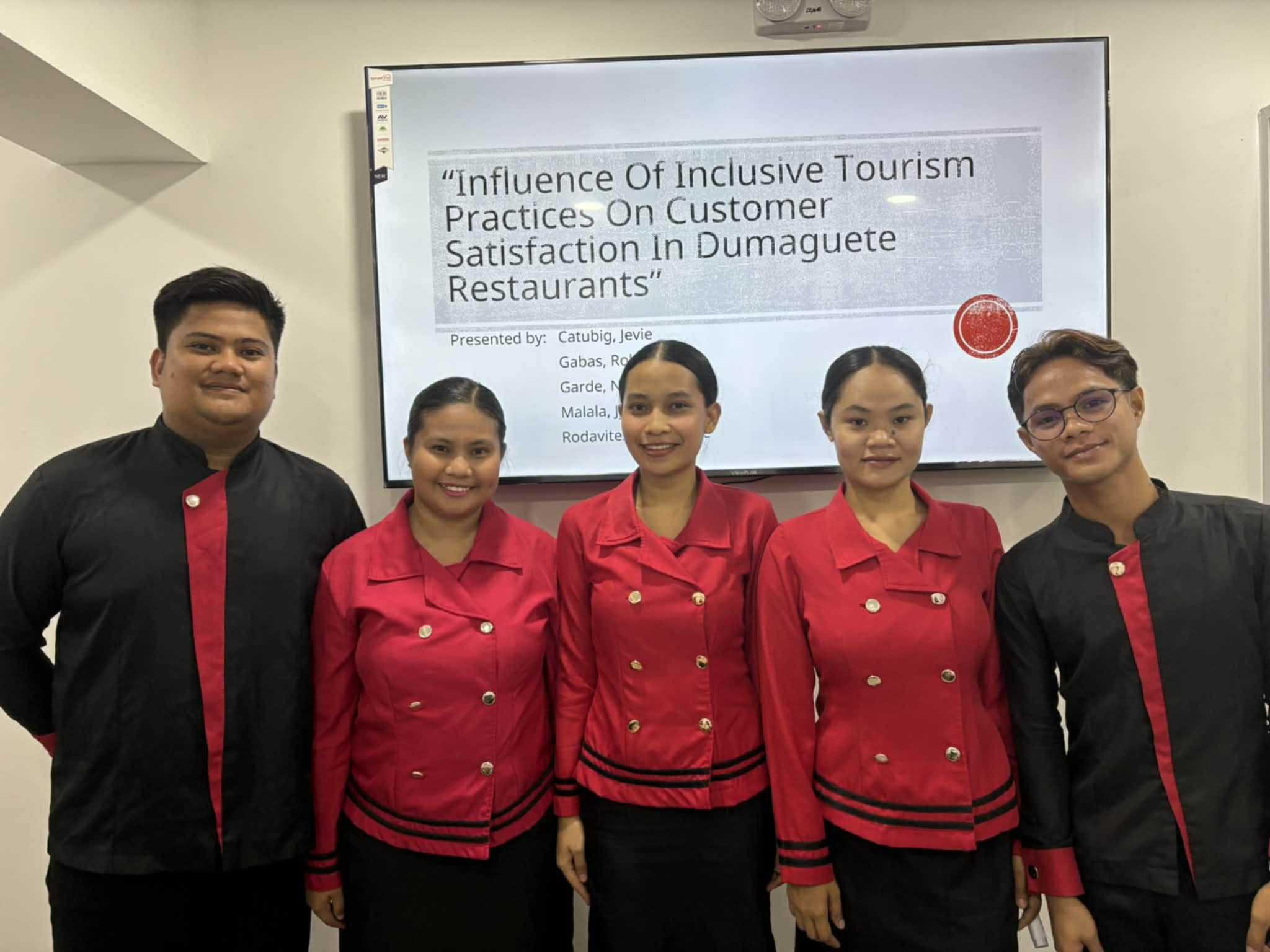
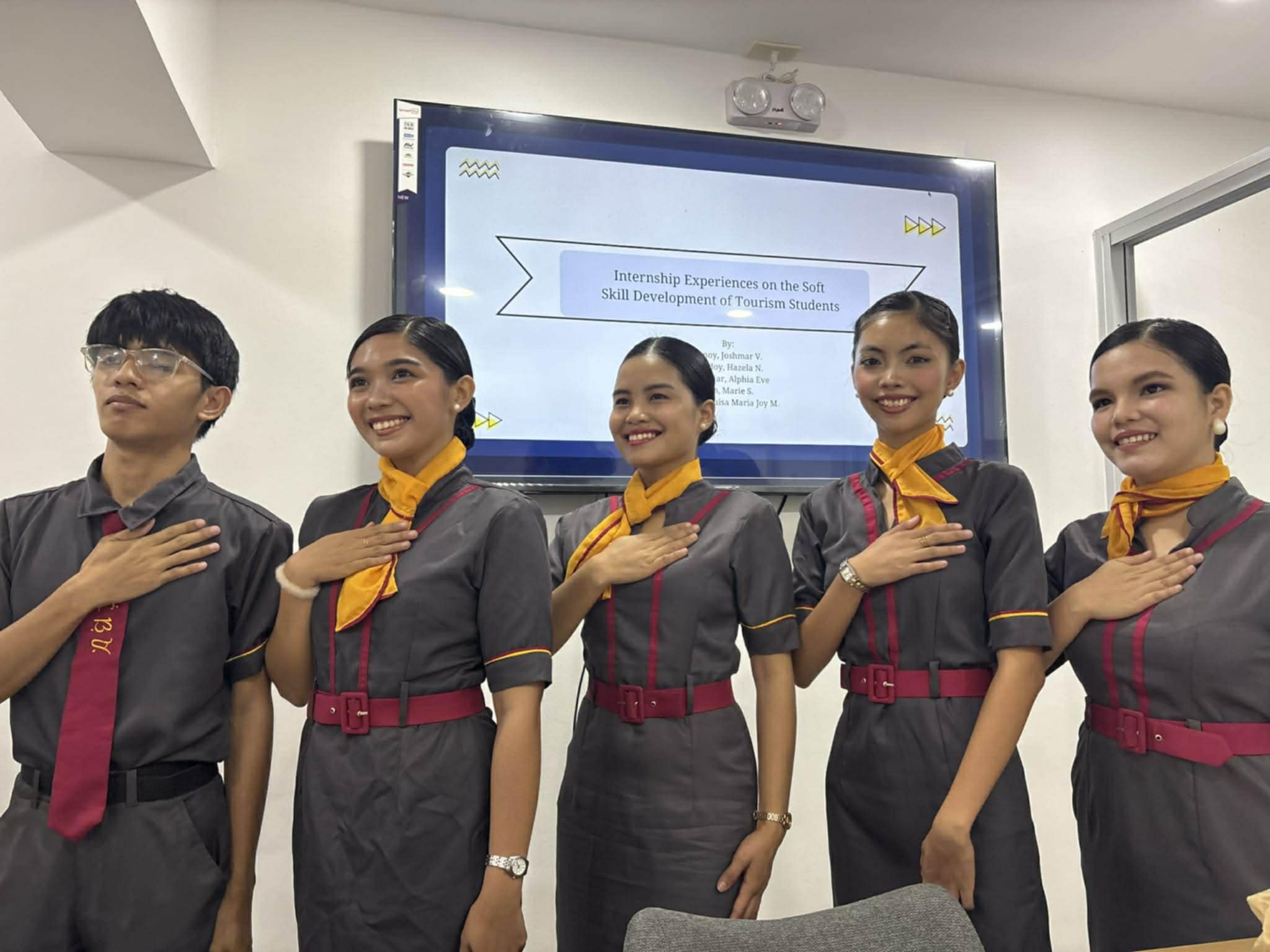
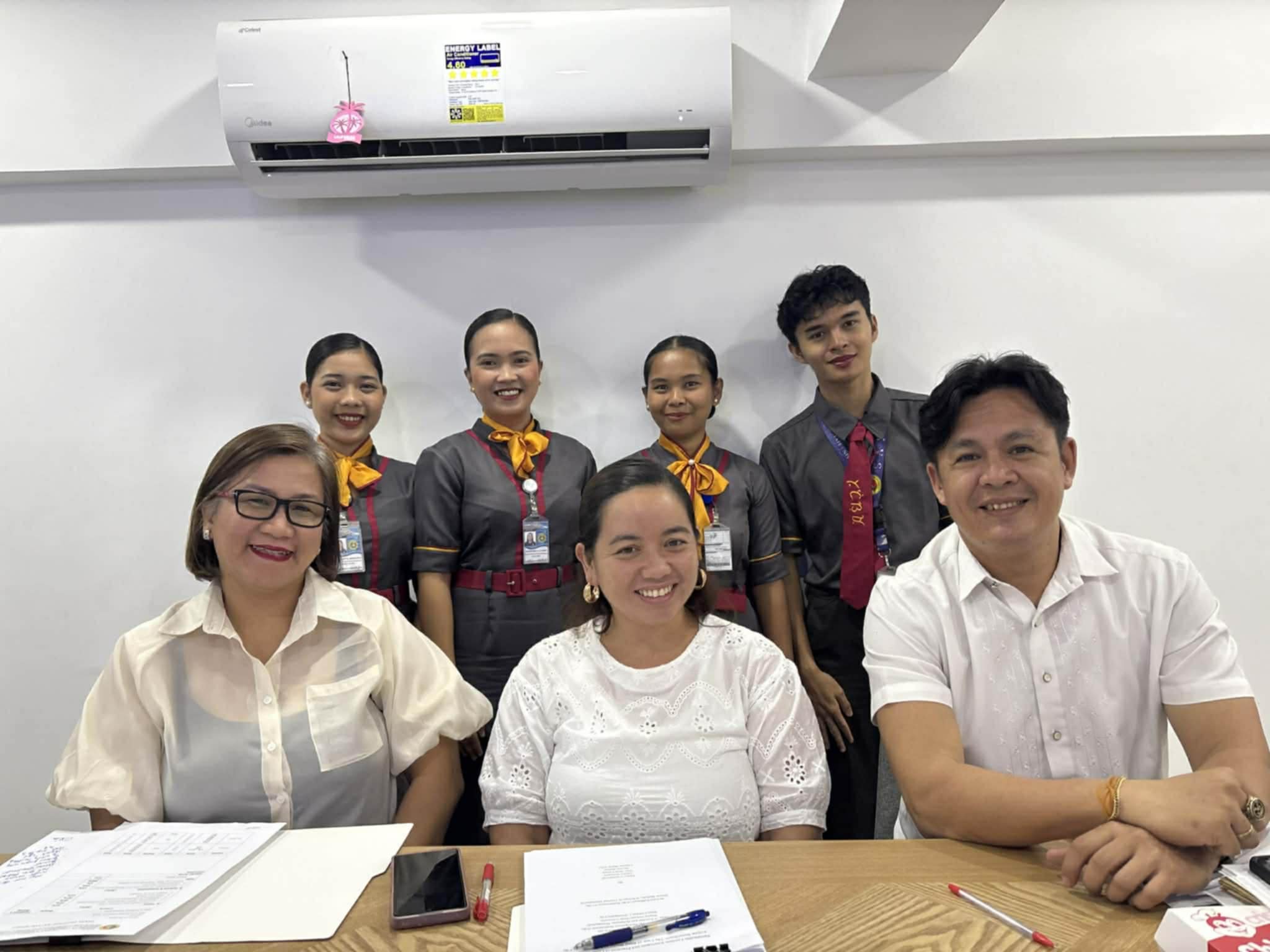
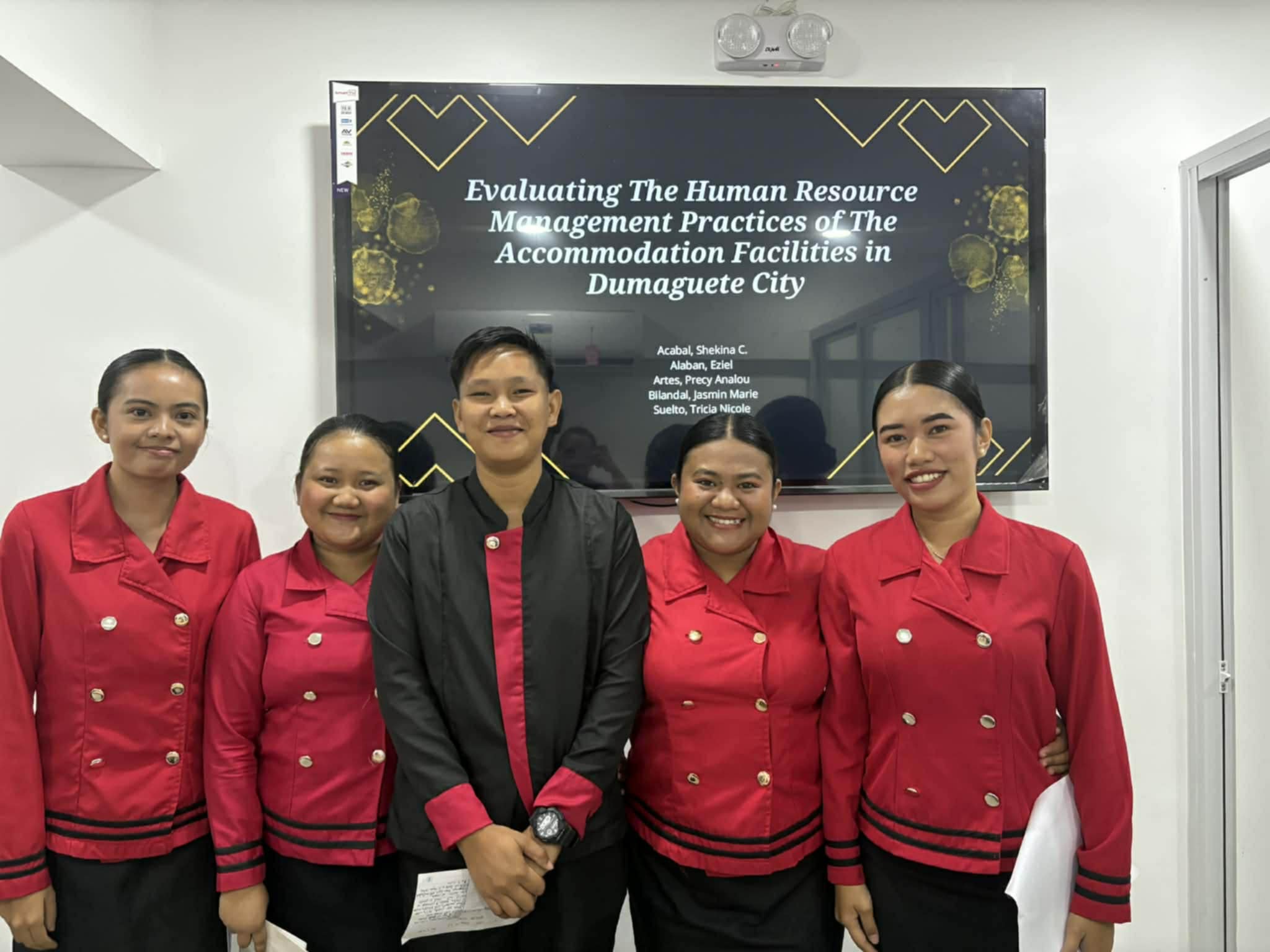
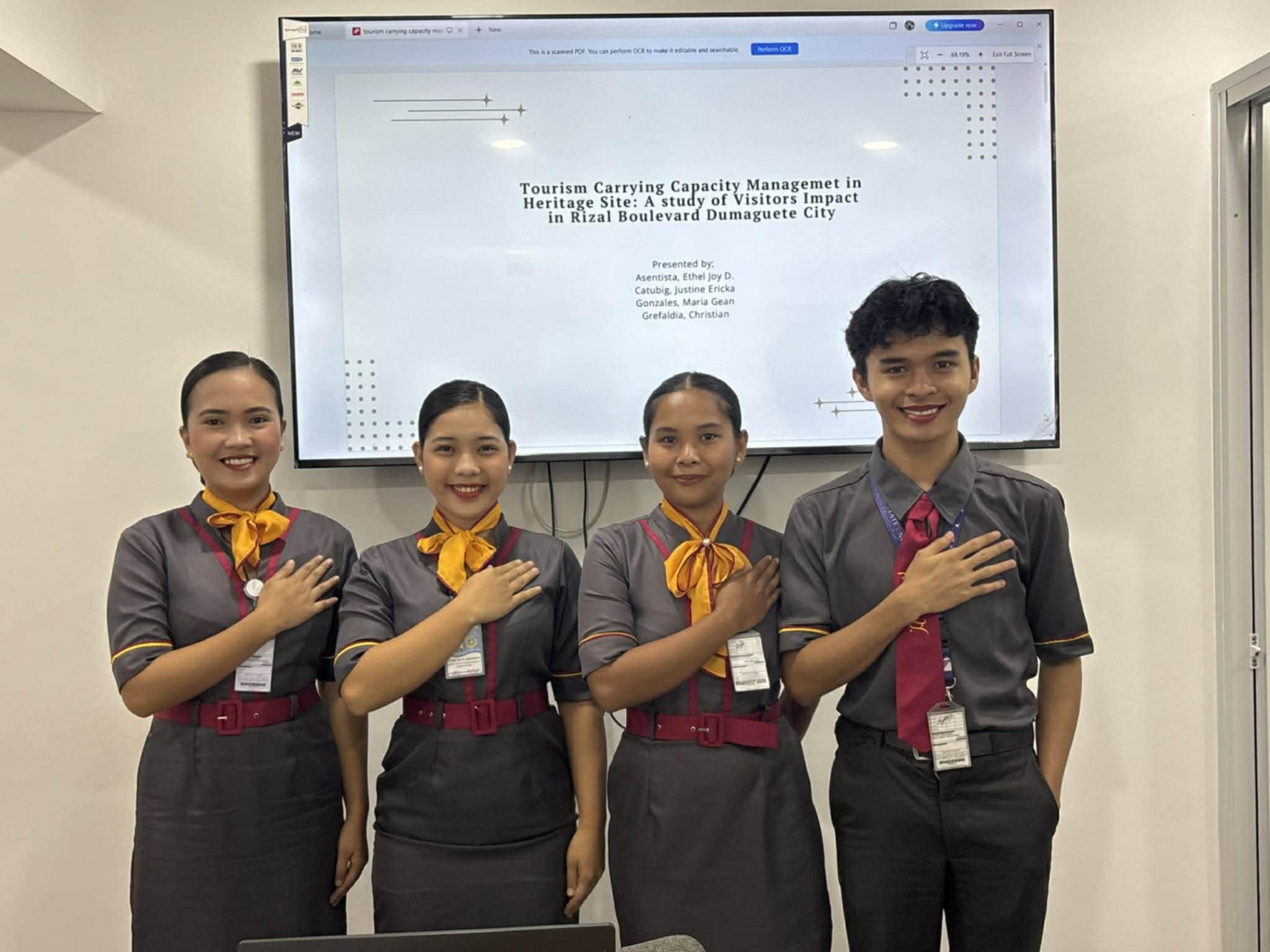
Hospitality Management and Tourism students formally underwent their research oral defense from December 15- January 10, 2025, a critical academic requirement under HM 401 (Research in Hospitality) and TOUR 401 (Research in Tourism) marking a defining milestone in their research journey.
Guiding and evaluating the defenses were the content analysts and panel members: Prof. Lyra Espinosa, Prof. Millard Vaughn Tubog, Prof. Angeline Torres, Prof. Jane Leyva, Dr. Ryan Tayco, and Dr. Tulip Lopez.
Special recognition is also given to the students’ statisticians: Dr. Junklein Teves, Dr. Regidor Carafe, and Dr. Marra Gaer whose expertise strengthened the rigor and credibility of the studies.
More than a requirement, the oral defense stood as a testament to critical thinking, scholarly discipline, and the readiness of future hospitality and tourism professionals to contribute meaningful research to the industry.
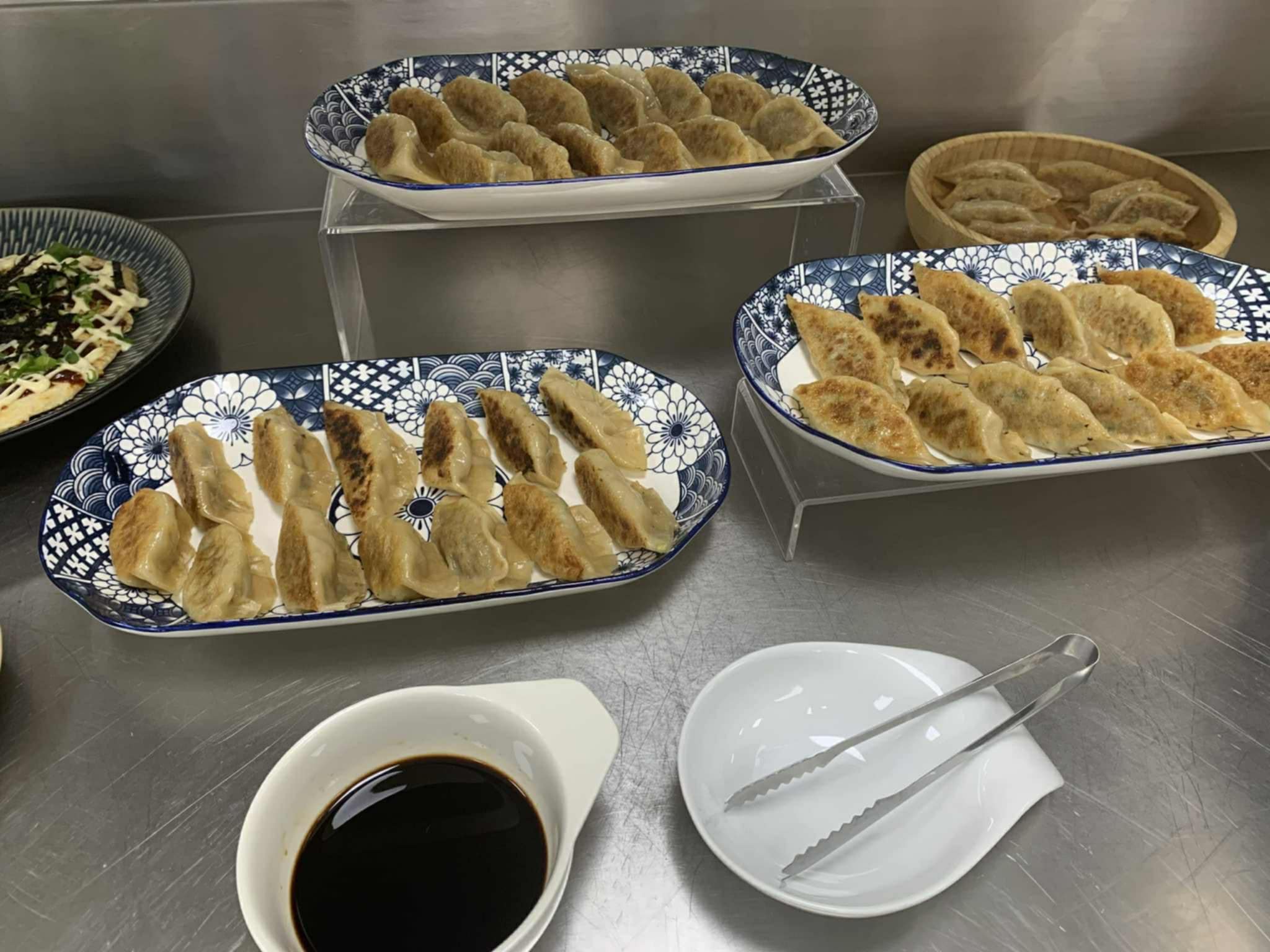
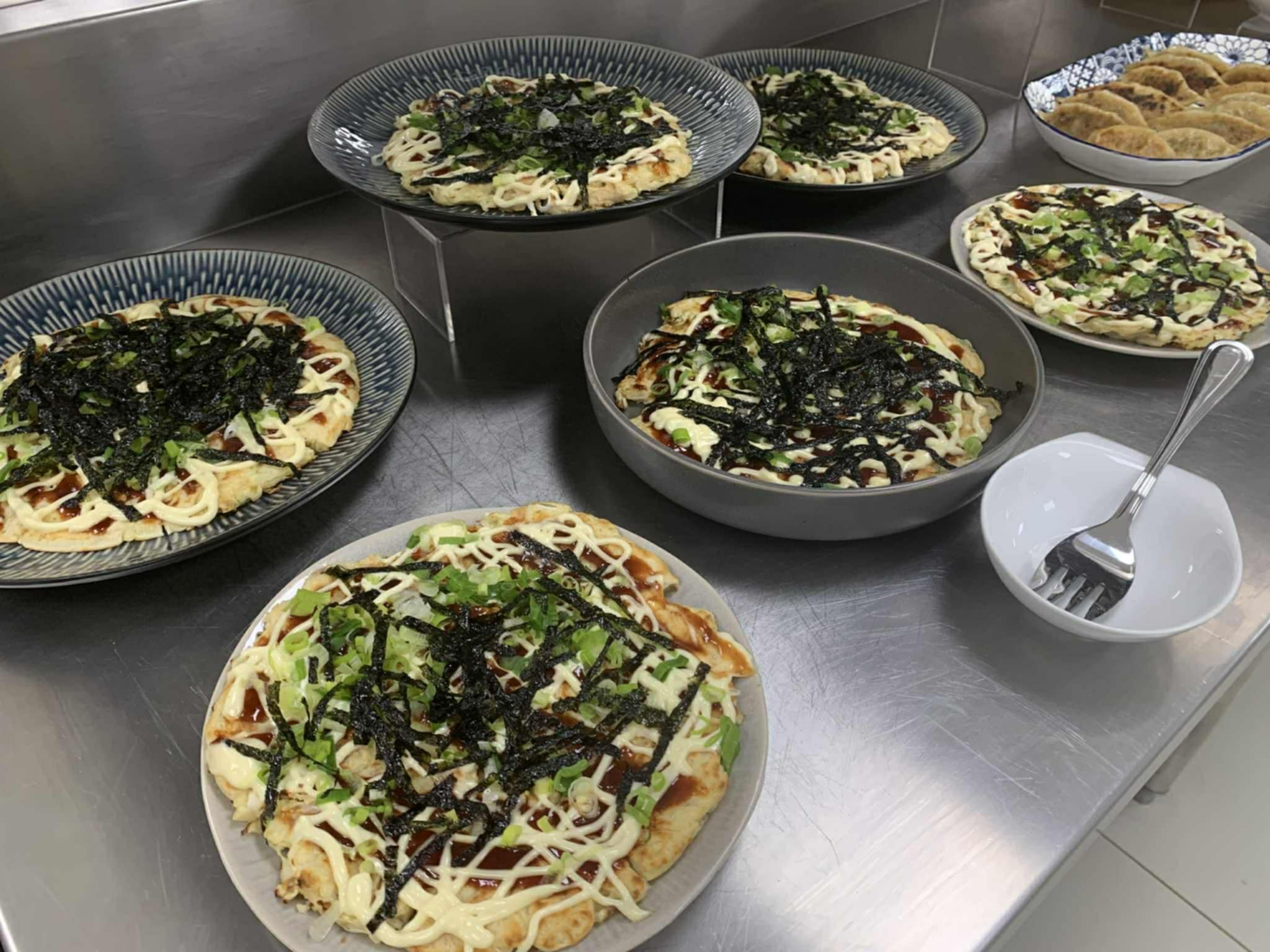


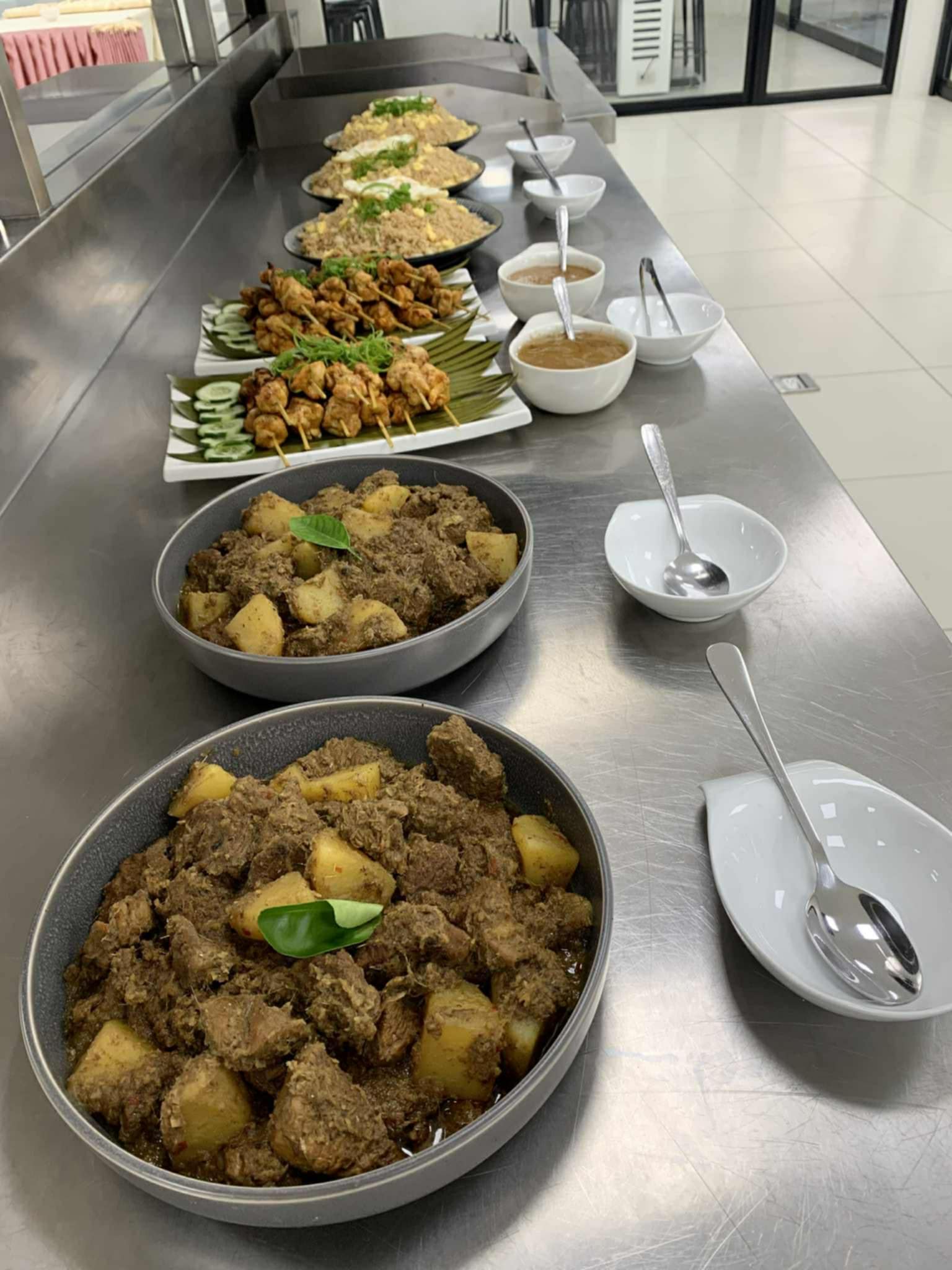
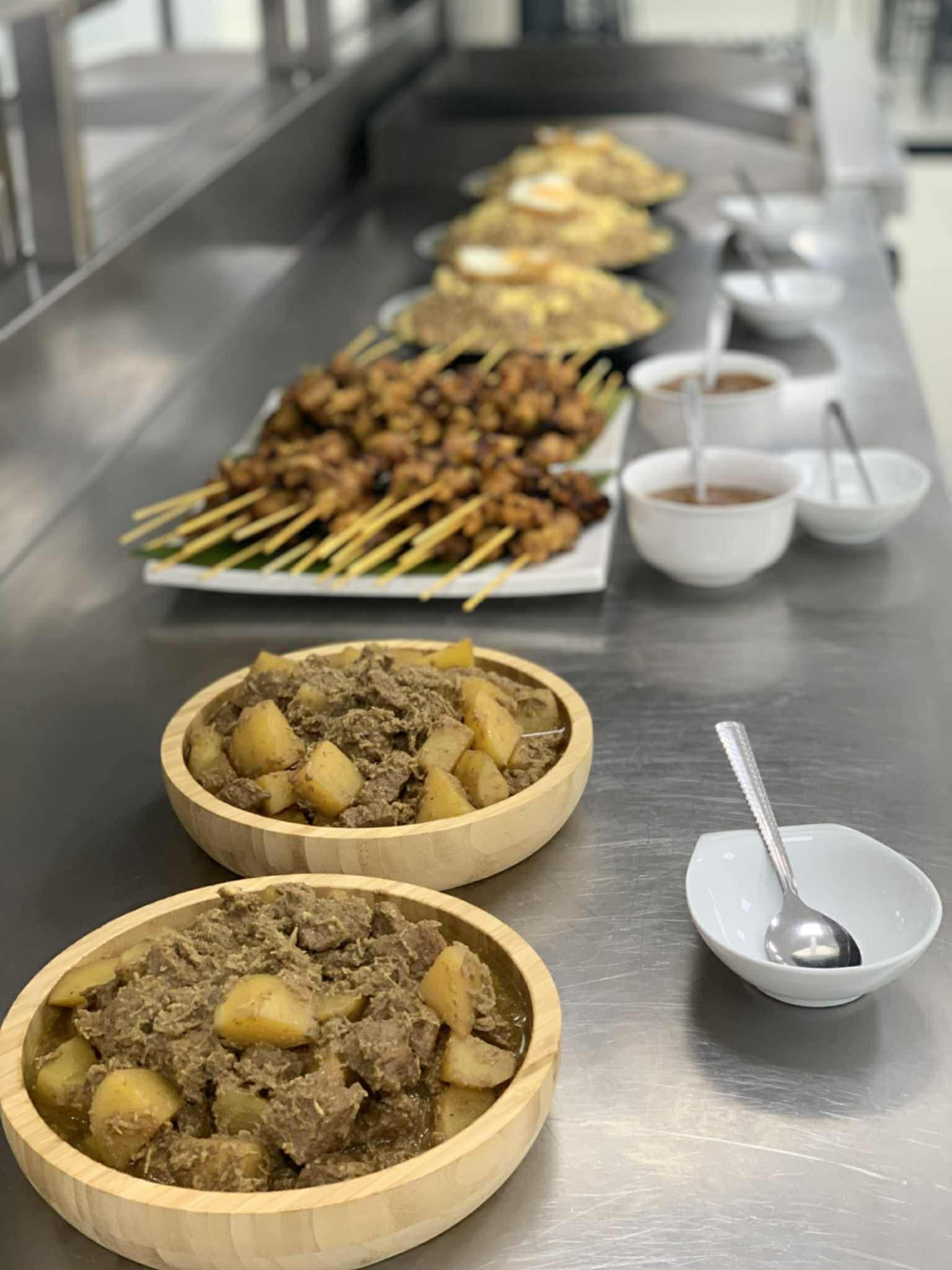
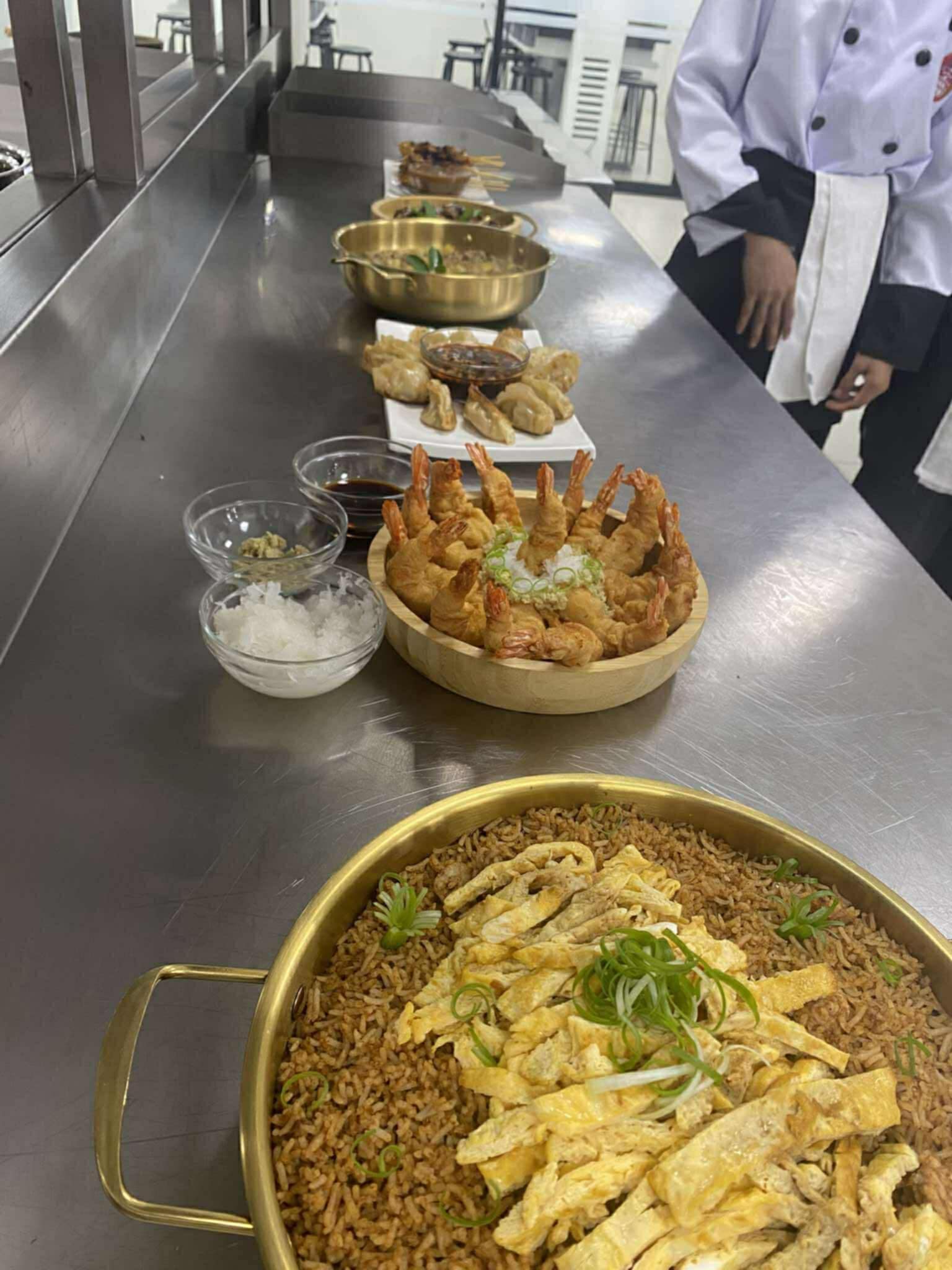

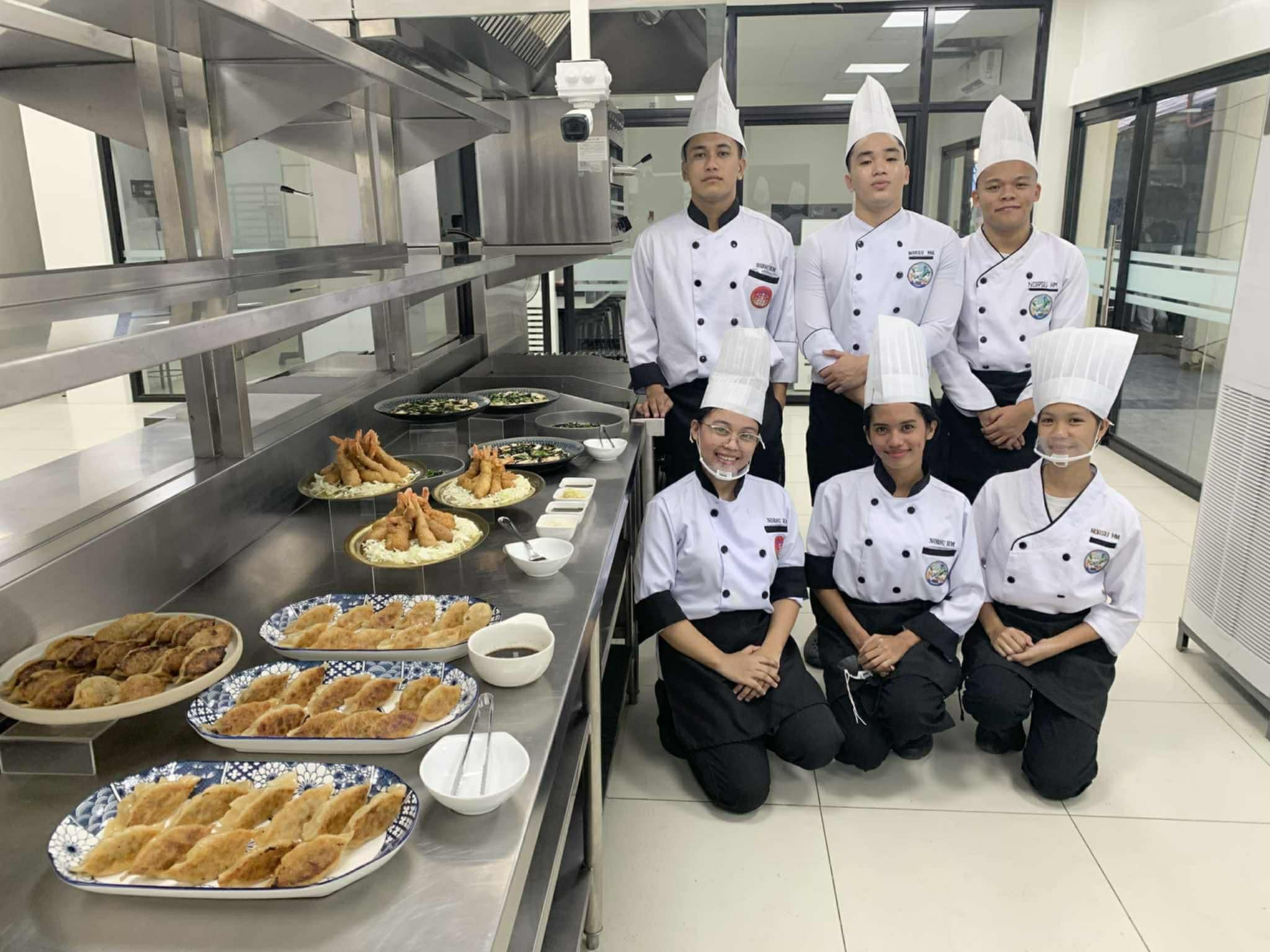
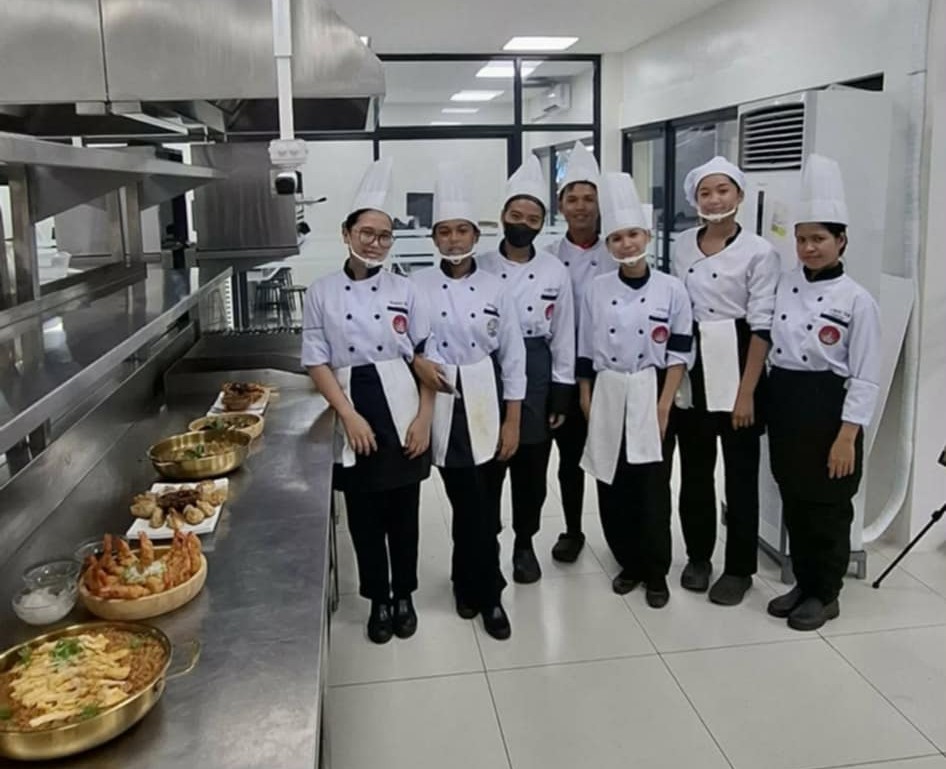
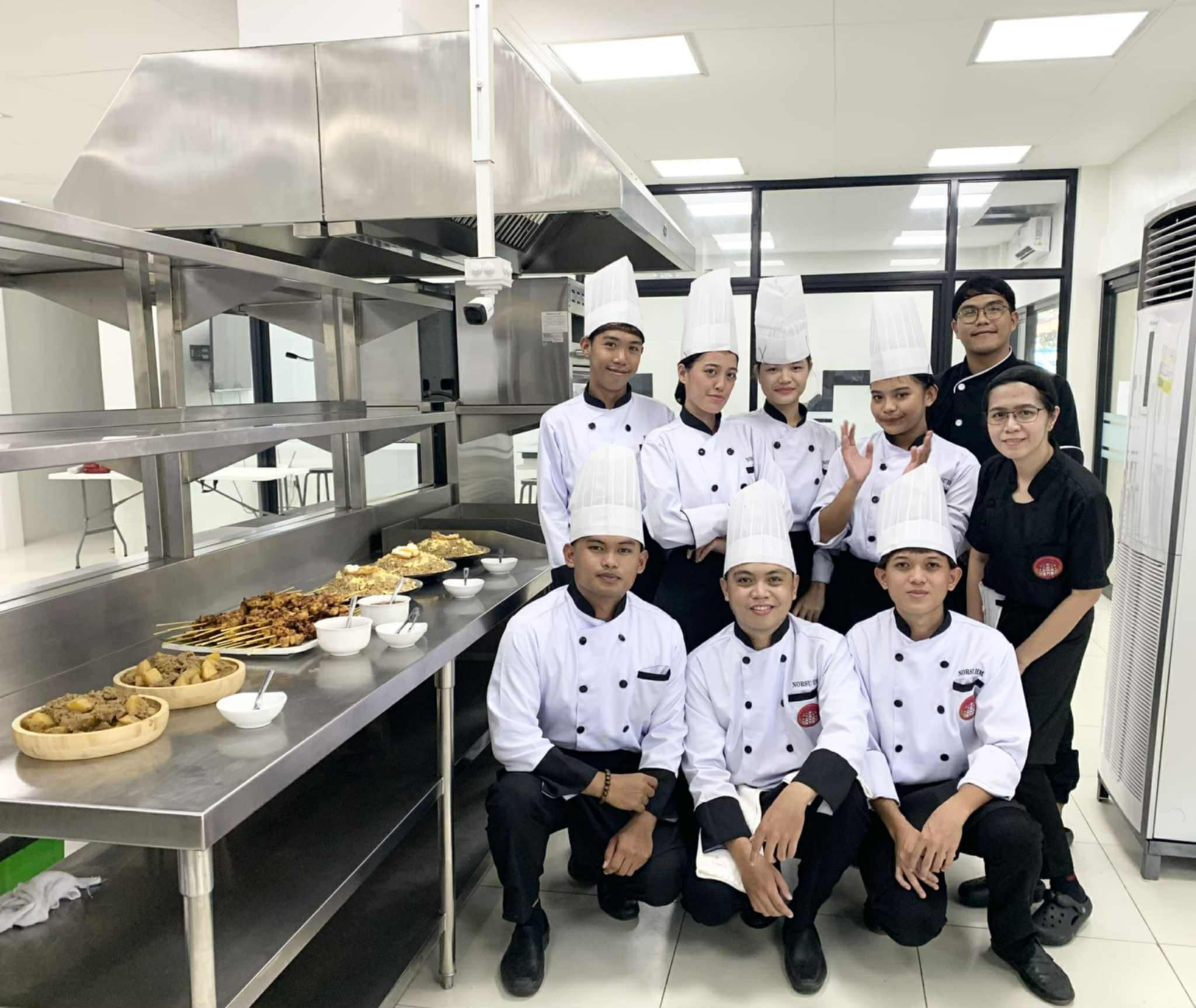
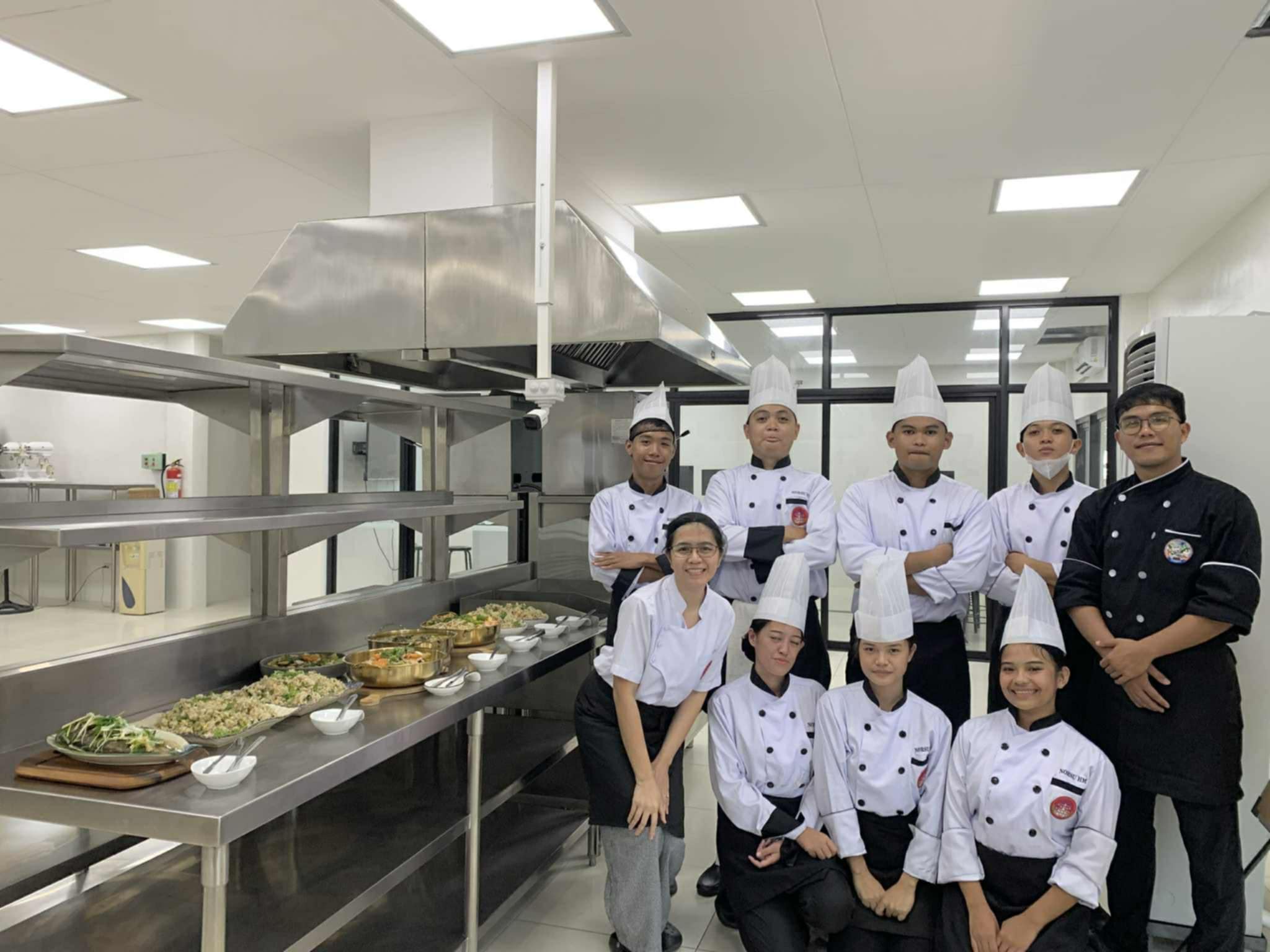
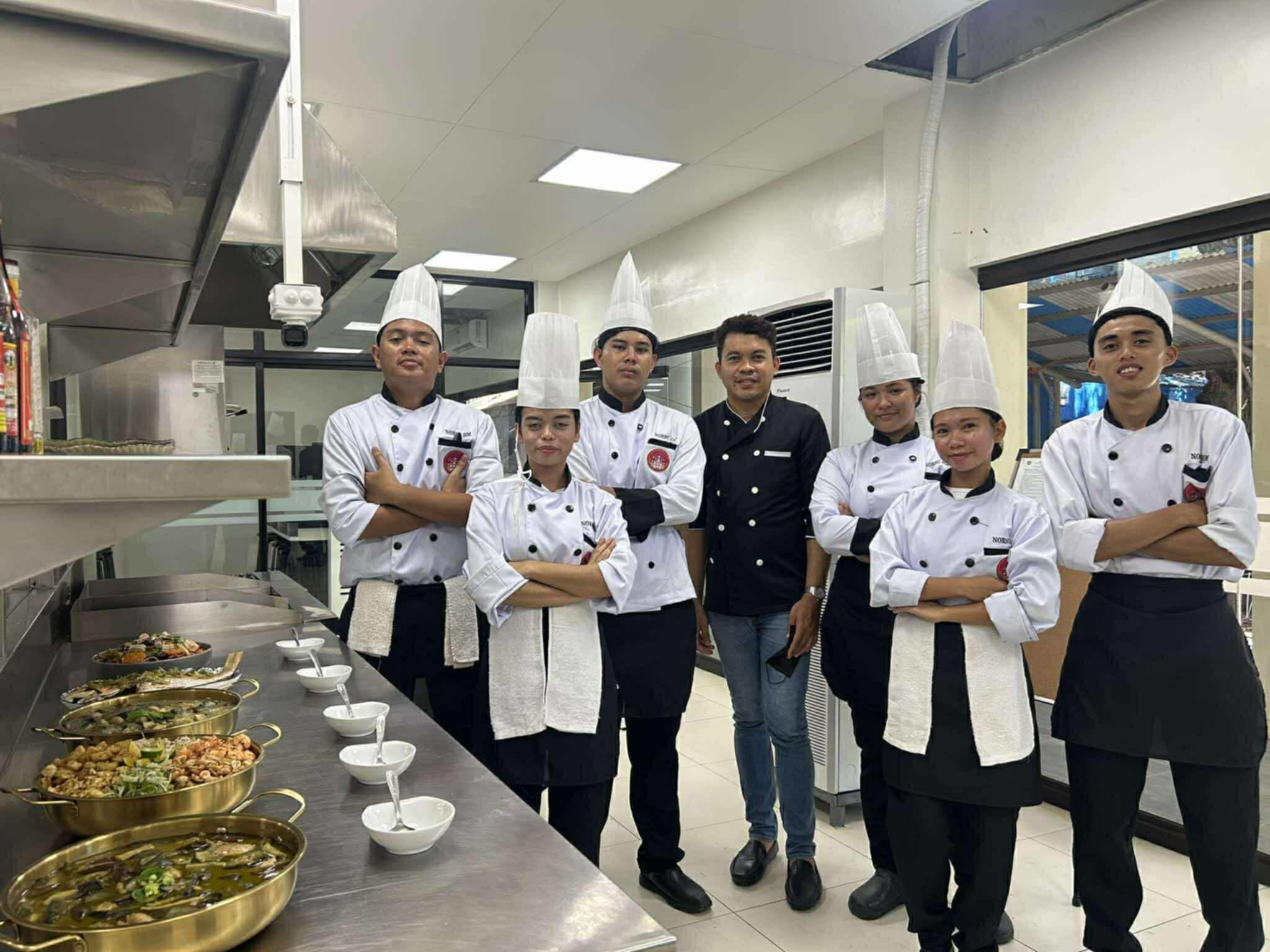
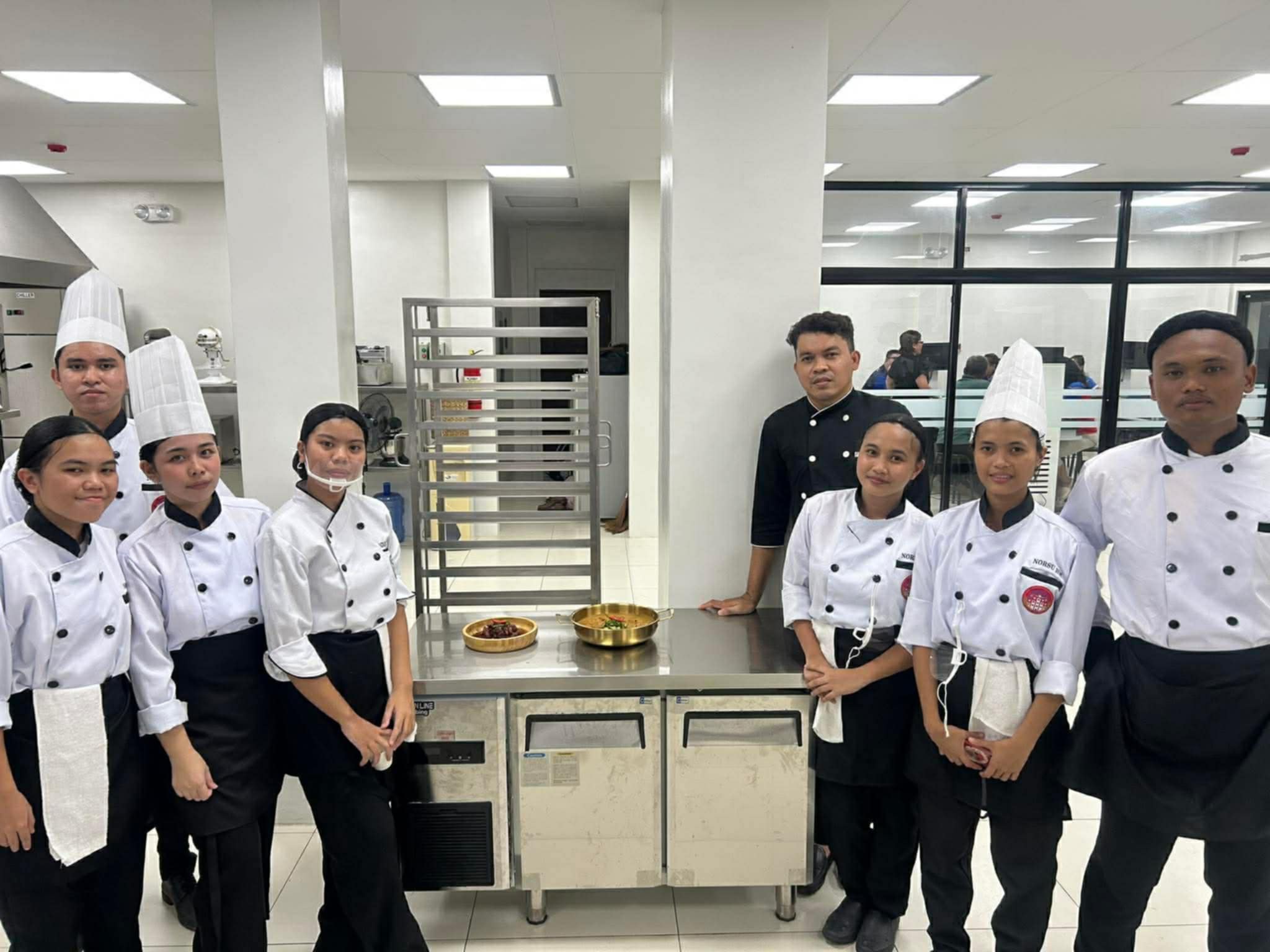
The College of Tourism and Hospitality Management (CTHM) of Negros Oriental State University (NORSU) successfully wrapped up Phase 1 of the Skills Enhancement Program for the Lipayo Farmers’ Association (LipFarA) on October 5, 2024, at the Lipayo Gymnasium in Barangay Lipayo, Dauin, Negros Oriental. The gathering brought together local farmers, community leaders, and educators in a warm and collaborative setting focused on sharing knowledge, building practical skills, and strengthening the community.
Present during the activity were Dr. Edwin F. Romano, Vice President for Research, Innovation, and Development Extension; Dr. Guilbert Nicanor Atillo, NORSU Extension Director; Dr. Tulip F. Lopez, CTHM Dean; Dr. Benjamin Villagonzalo, CBA Dean; and Prof. Millard Vaughn Tubog, CTHM Extension Coordinator, along with trainers and participants from CTHM and CBA who actively engaged with the farmers throughout the program.
As the first step in CTHM’s broader community extension efforts, the program reflects NORSU’s continuing commitment to uplifting local farmers through education, skills training, and strong partnerships. With Phase 1 completed, both the university and the community look forward to future activities that will build on this foundation and support long-term, inclusive growth.
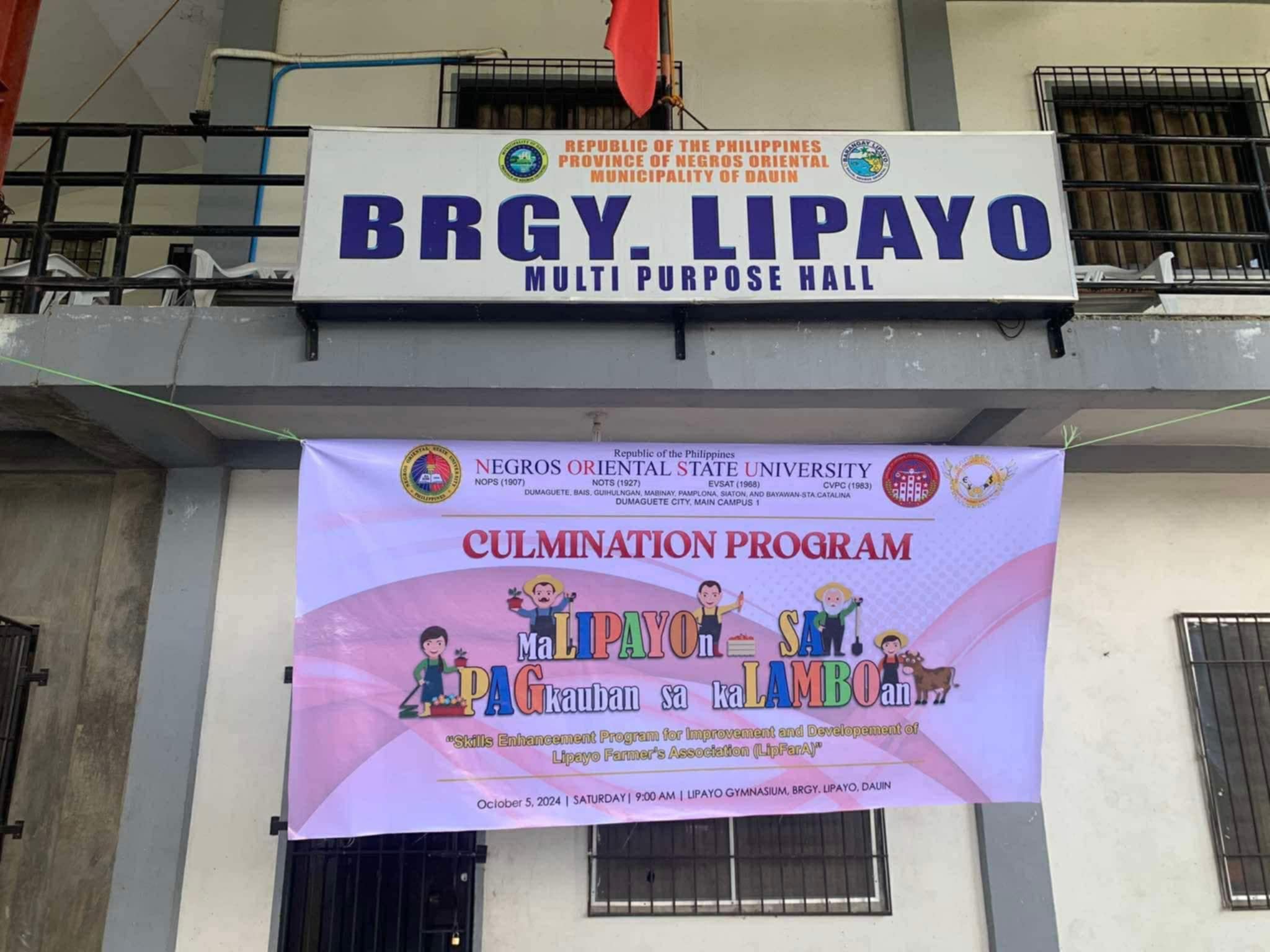
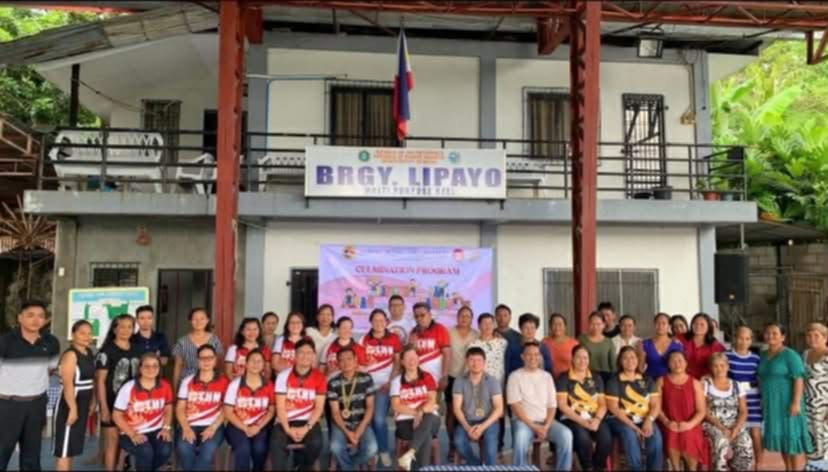
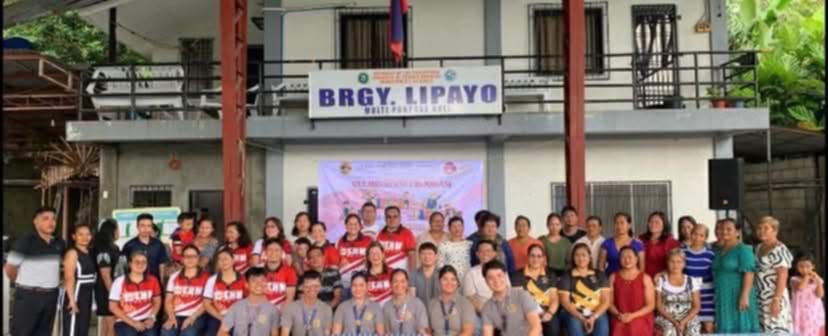
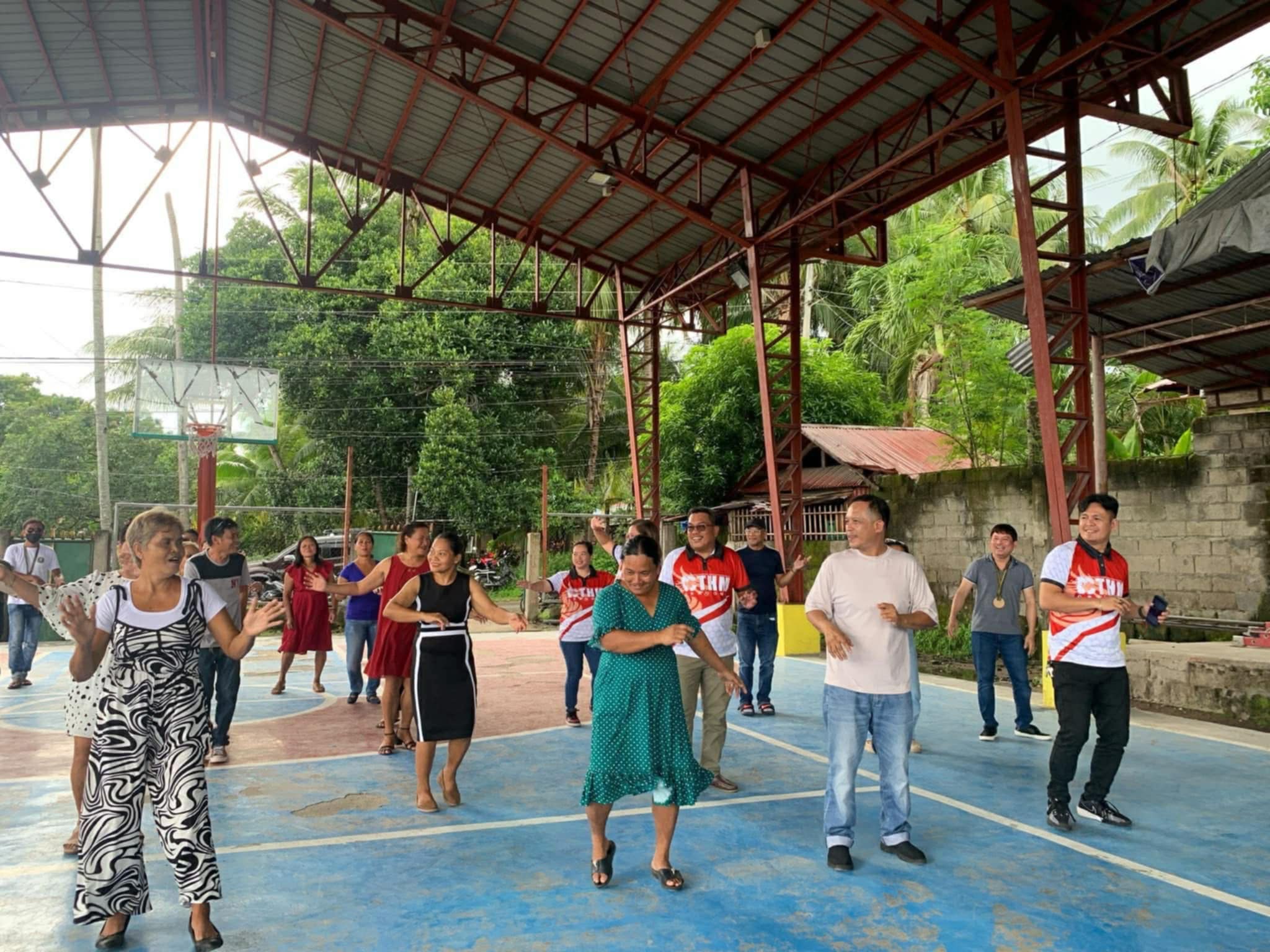
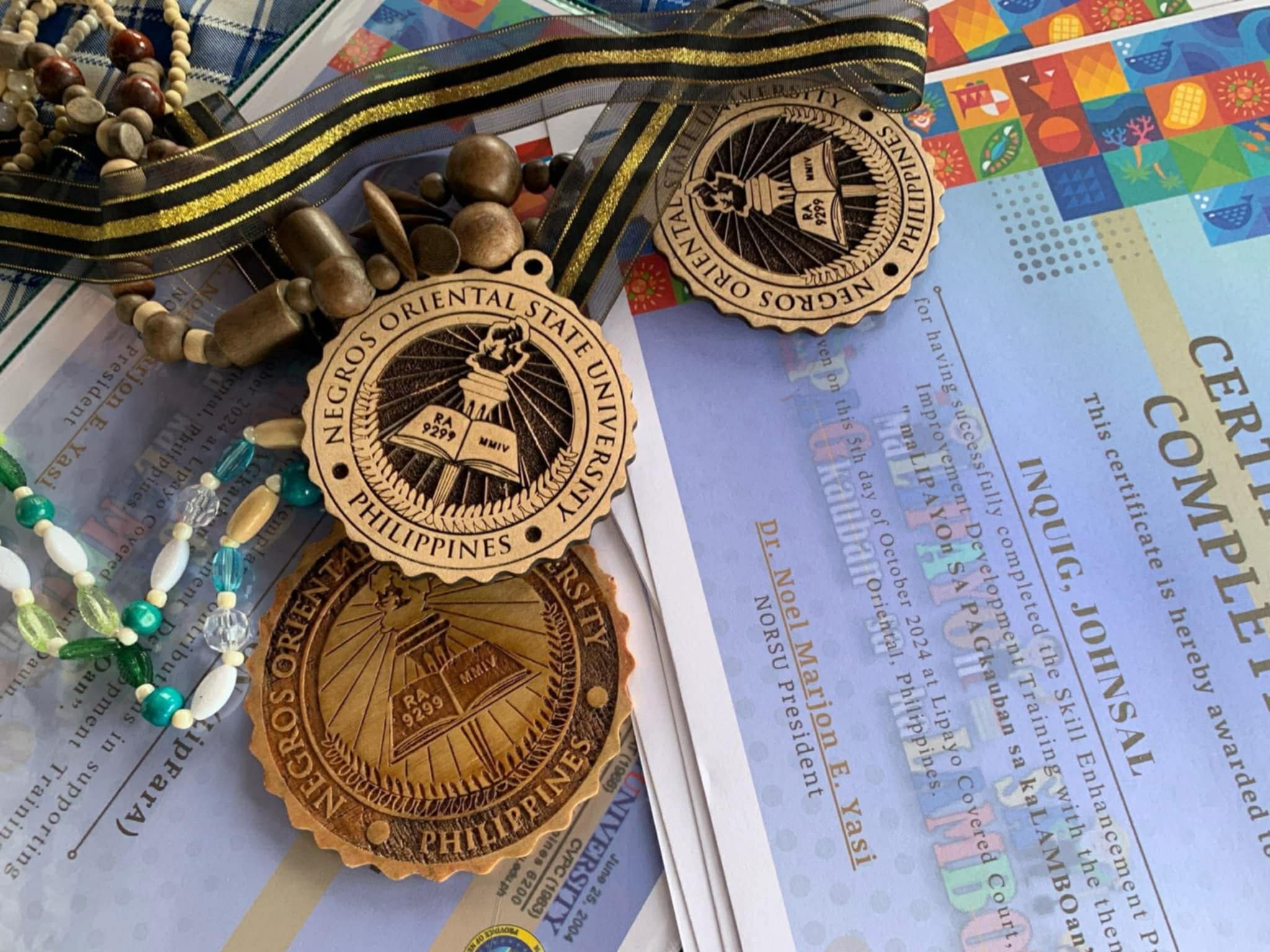

The Negros Oriental State University – College of Tourism and Hospitality Management (NORSU CTHM), in partnership with the Negros Oriental Hotel, Resort, and Restaurant Association, Inc. (NOHRRA), marked a meaningful milestone as it held the culmination ceremony of its Community Advancement, Resilience, and Empowerment through Skills, Sustainability, and Social Outreach (CARES) Extension Program on August 8, 2025, at NORSU, Dumaguete City.
The event celebrated the dedication and achievements of over 60 hotel and restaurant personnel who completed the four-month training-workshop, designed to strengthen professional skills and promote sustainable practices in the local tourism and hospitality sector. What began as a series of learning sessions grew into a shared journey of growth, collaboration, and service.
This partnership forms part of NORSU’s continuing extension mandate to equip community tourism workers with relevant competencies that respond to the evolving needs of the industry while uplifting local communities.
University President Dr. Noel Marjon E. Yasi and NOHRRA President Royani Dy both emphasized the value of the program in enhancing quality customer service, effective communication, and operational efficiency, underscoring the crucial role of well-trained personnel in sustaining excellence in the tourism and hospitality industry.
The culmination stood not only as a recognition of completed training, but as a celebration of partnership, shared purpose, and a collective commitment to raising standards in Negros Oriental’s tourism workforce.
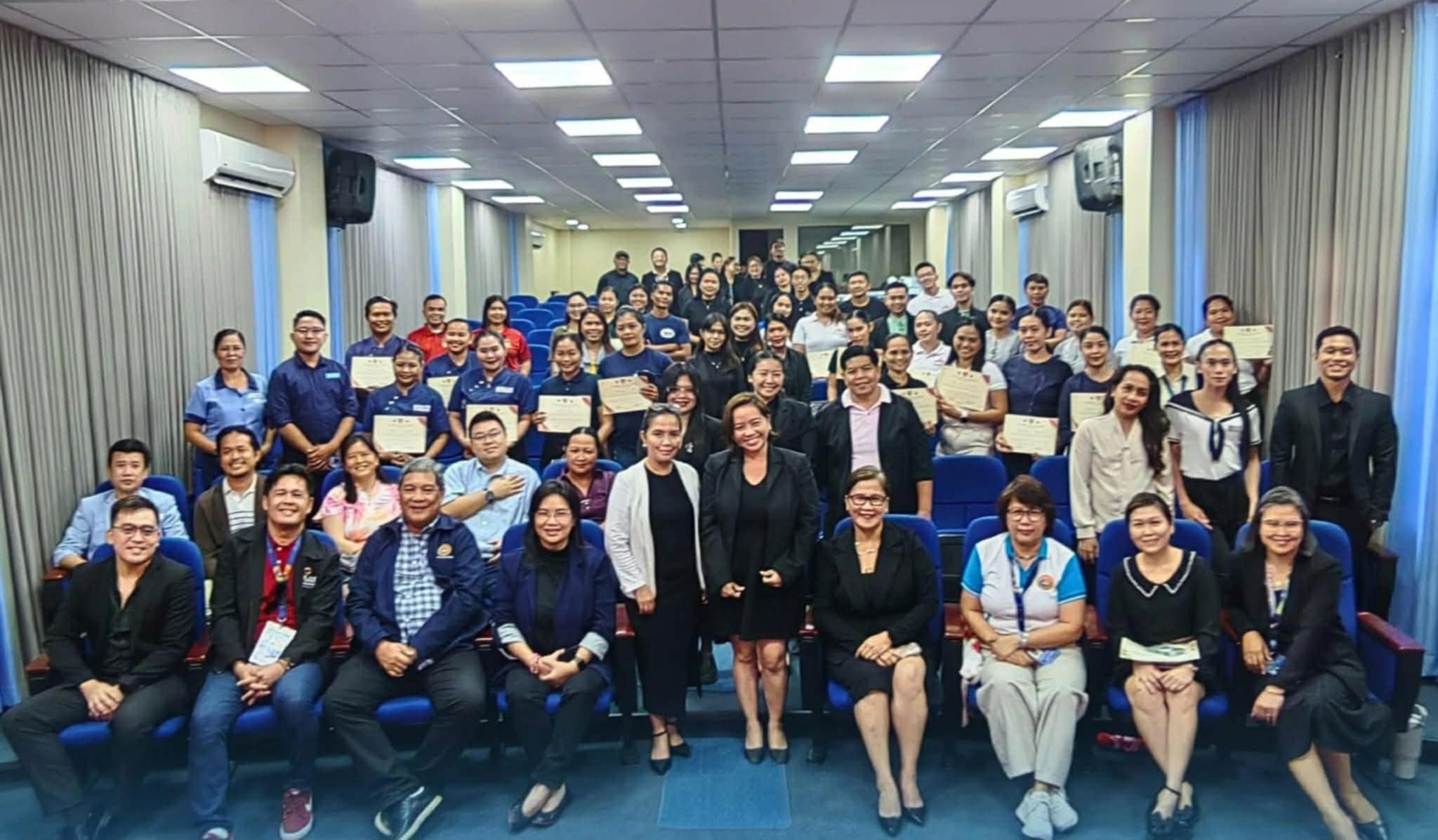
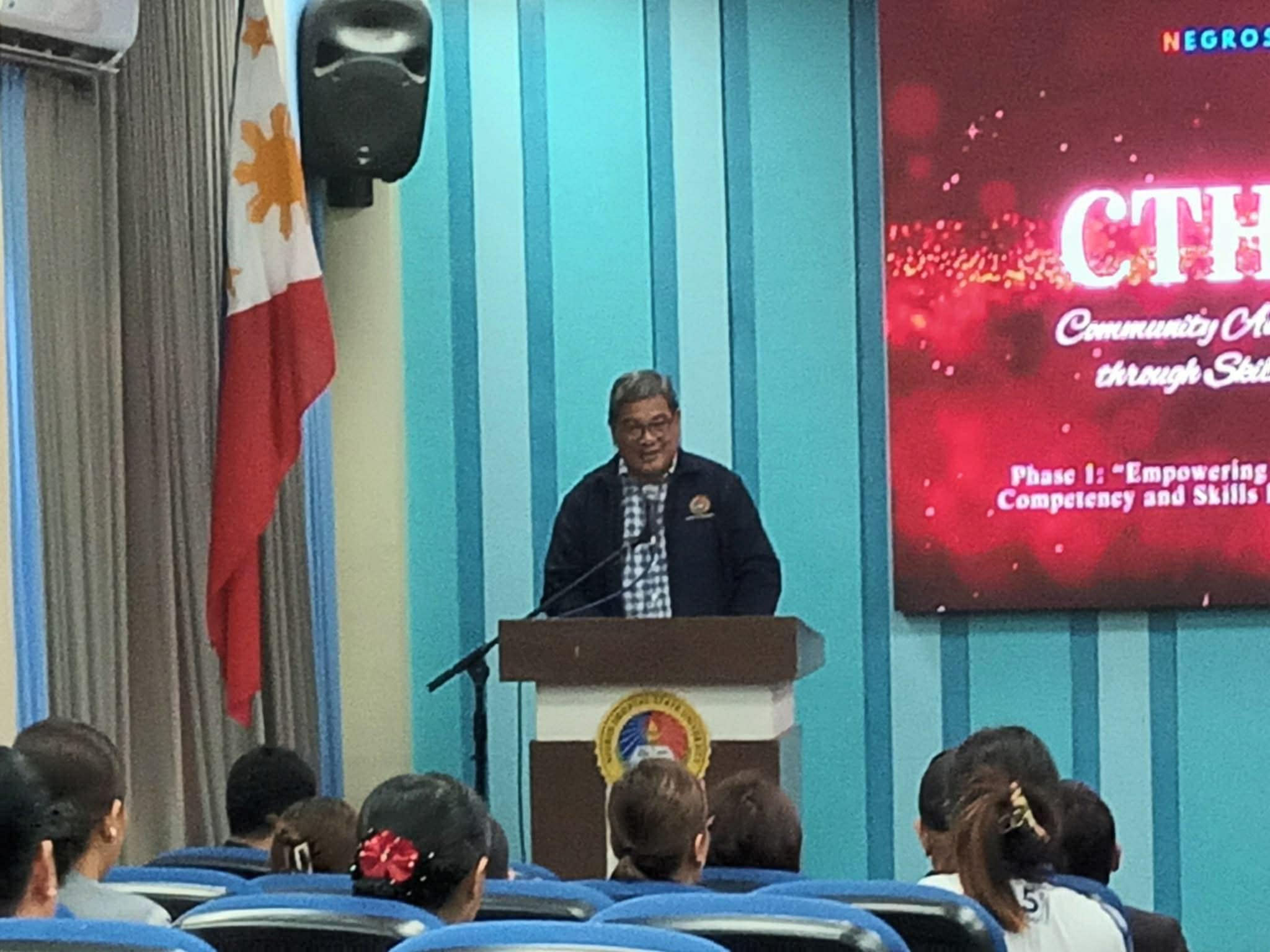
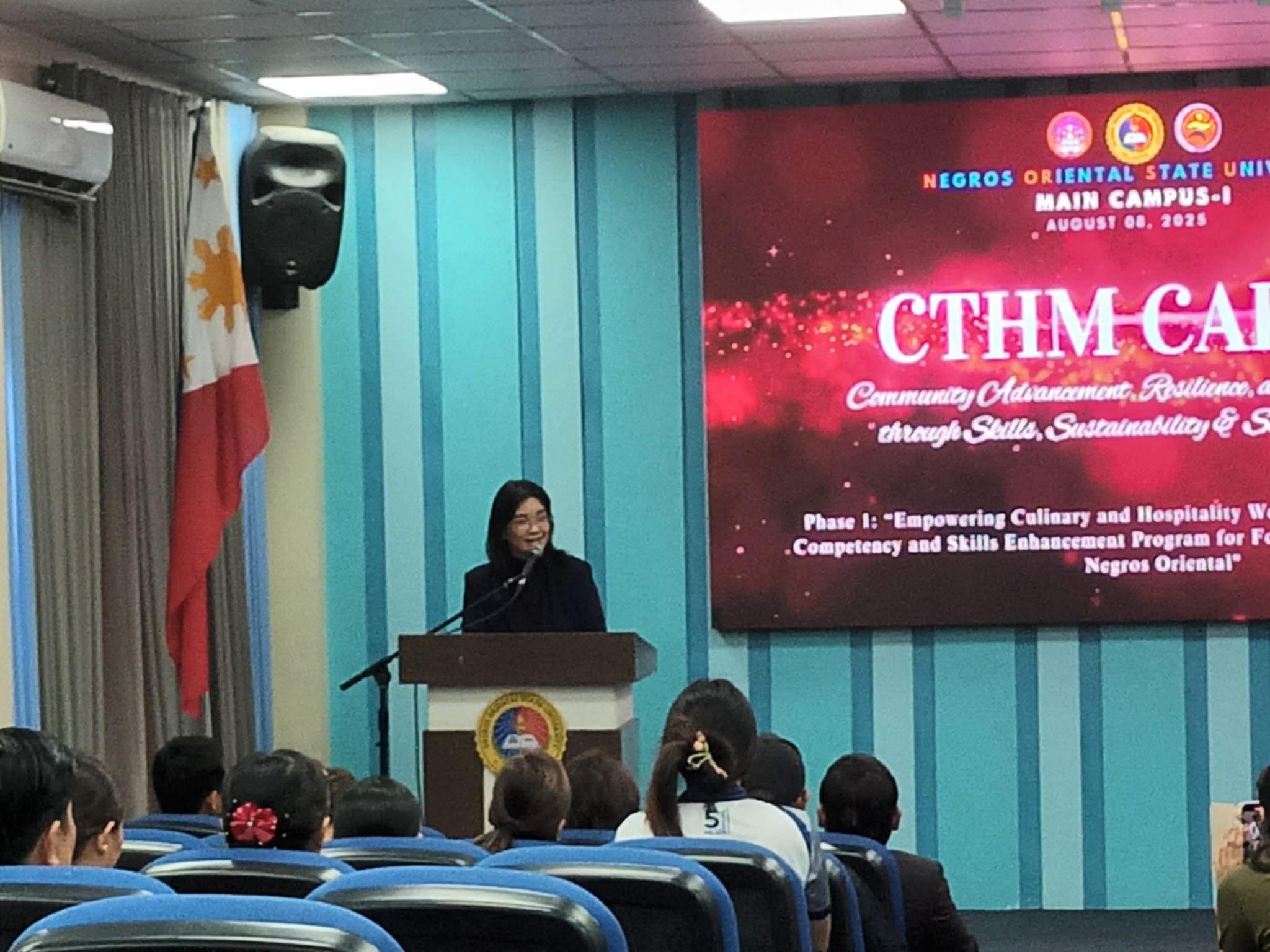
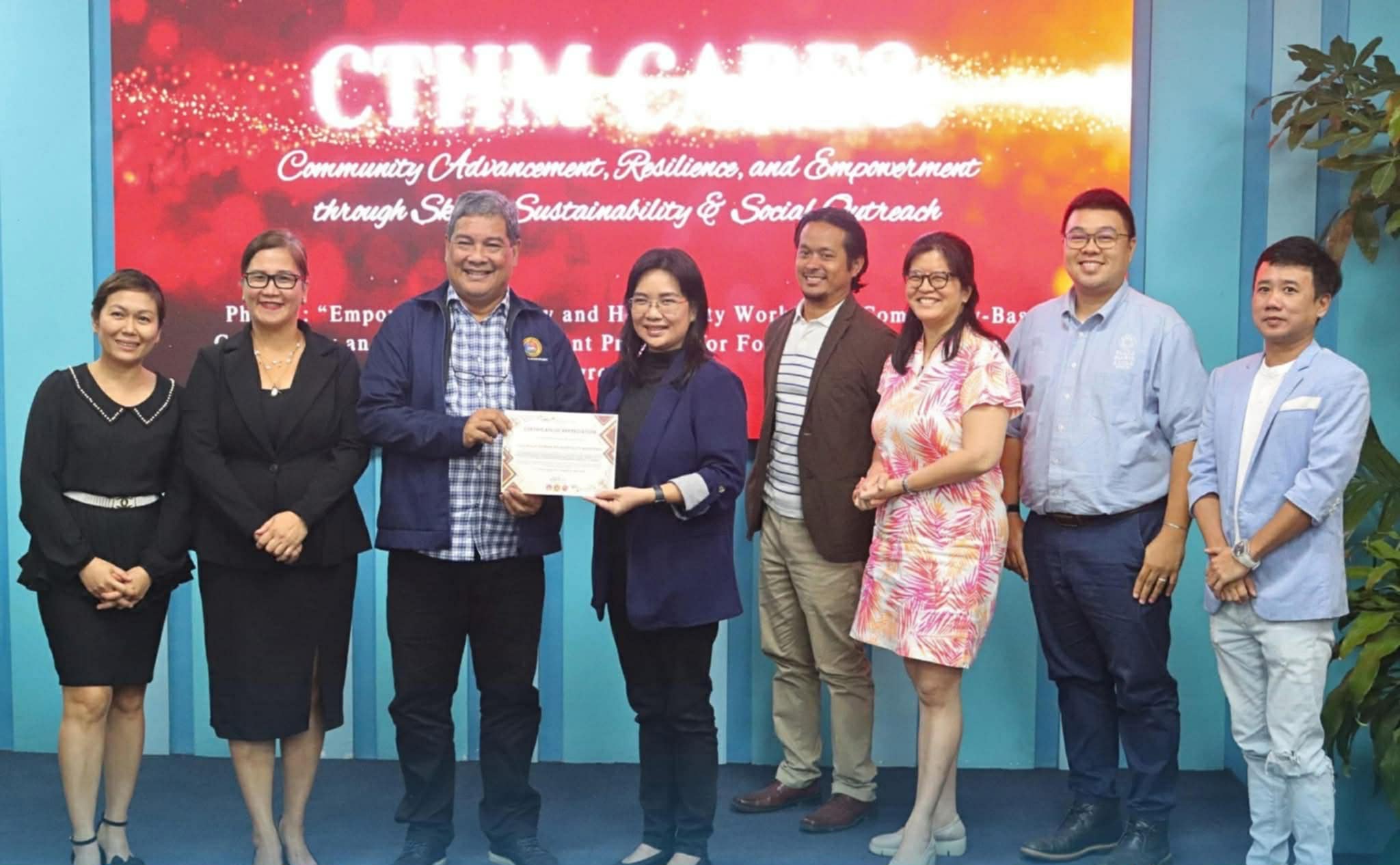
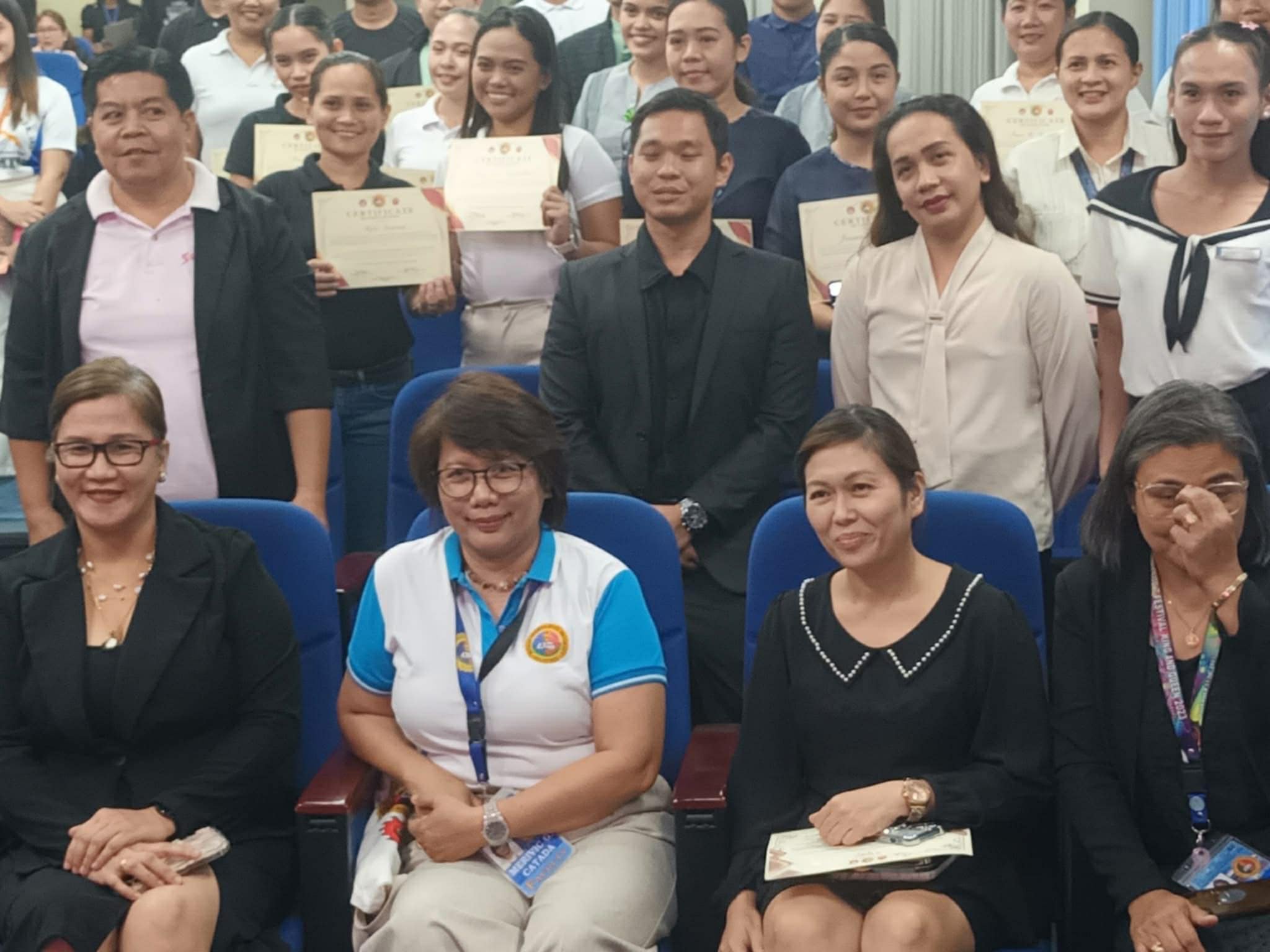
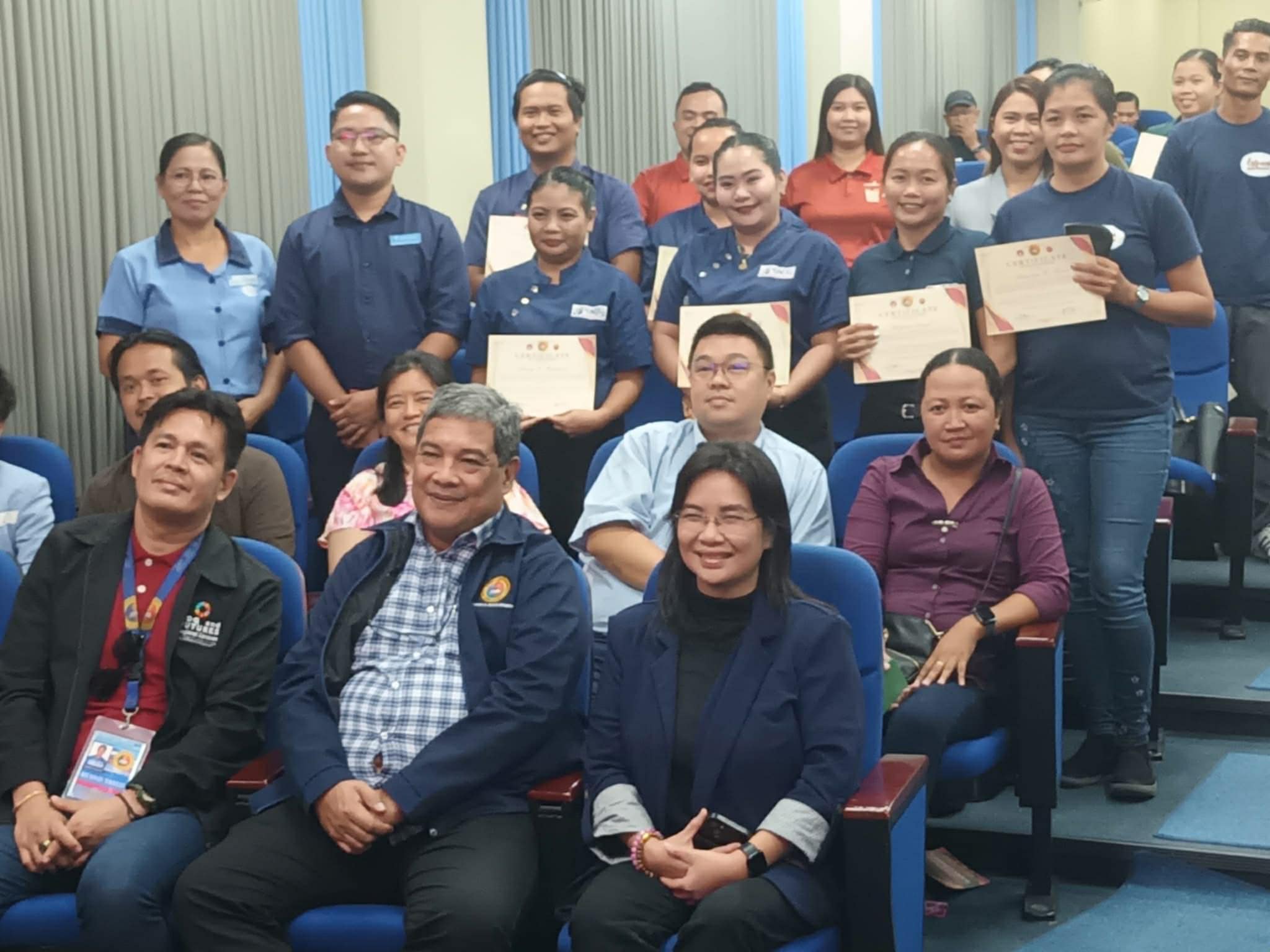
This Christmas season, we shared more than gifts- we shared time, care, and joy as we visited the Upper Part of Dauin and brought smiles to the children. Through the kindness of generous donors, toys, clothes, stars, and food reached young hearts, reminding them that they are seen, valued, and loved.
Together with the CTHM student officers and Ma’am Glennnen Y. Zamora, this outreach became a beautiful reminder of what Christmas truly means—love in action, generosity without expectation, and compassion for one another.
Daghang salamat kaayo to everyone who extended support and shared their blessings. Because of you, the season became brighter, warmer, and more meaningful for many children.
Imong donasyon, ilang kalipay.
May this spirit of giving continue beyond the holidays.
